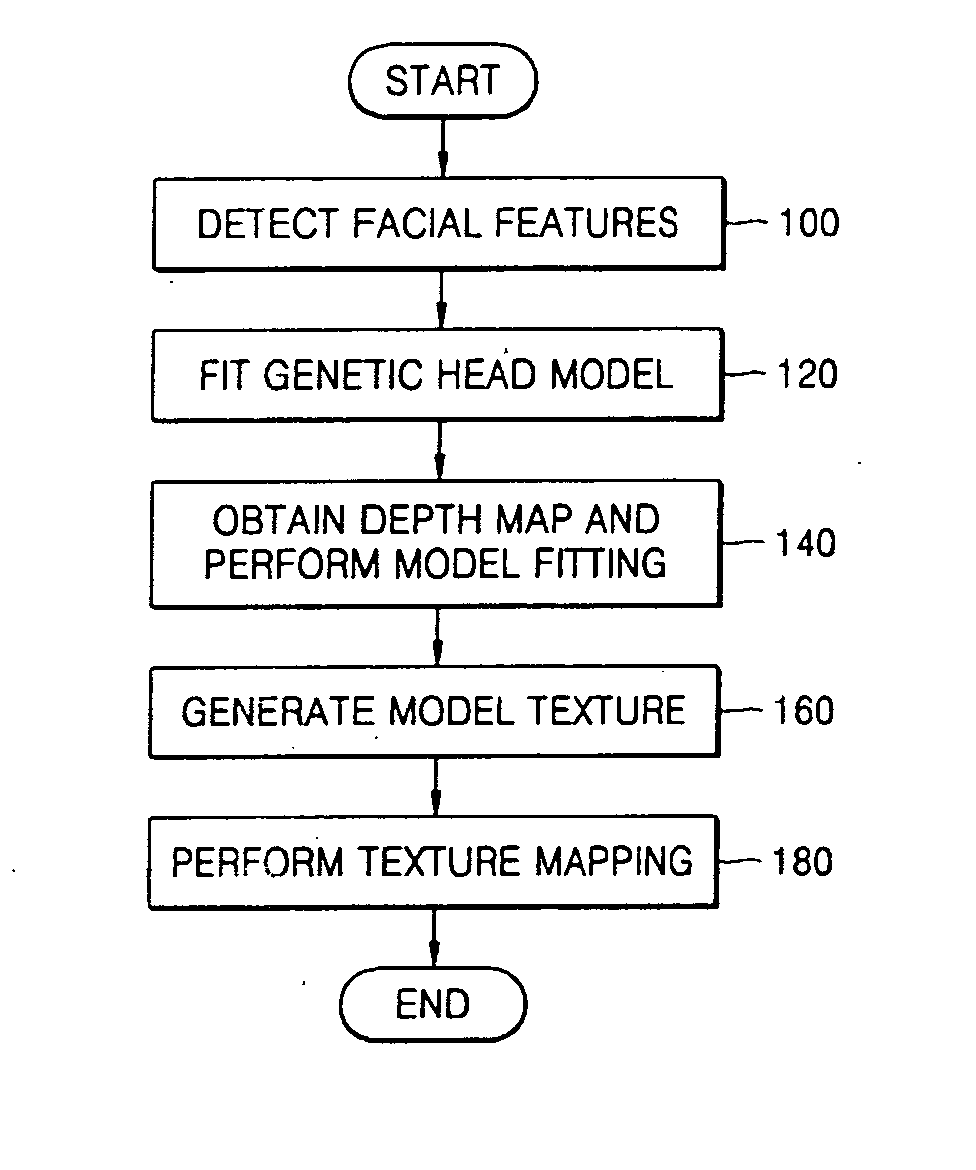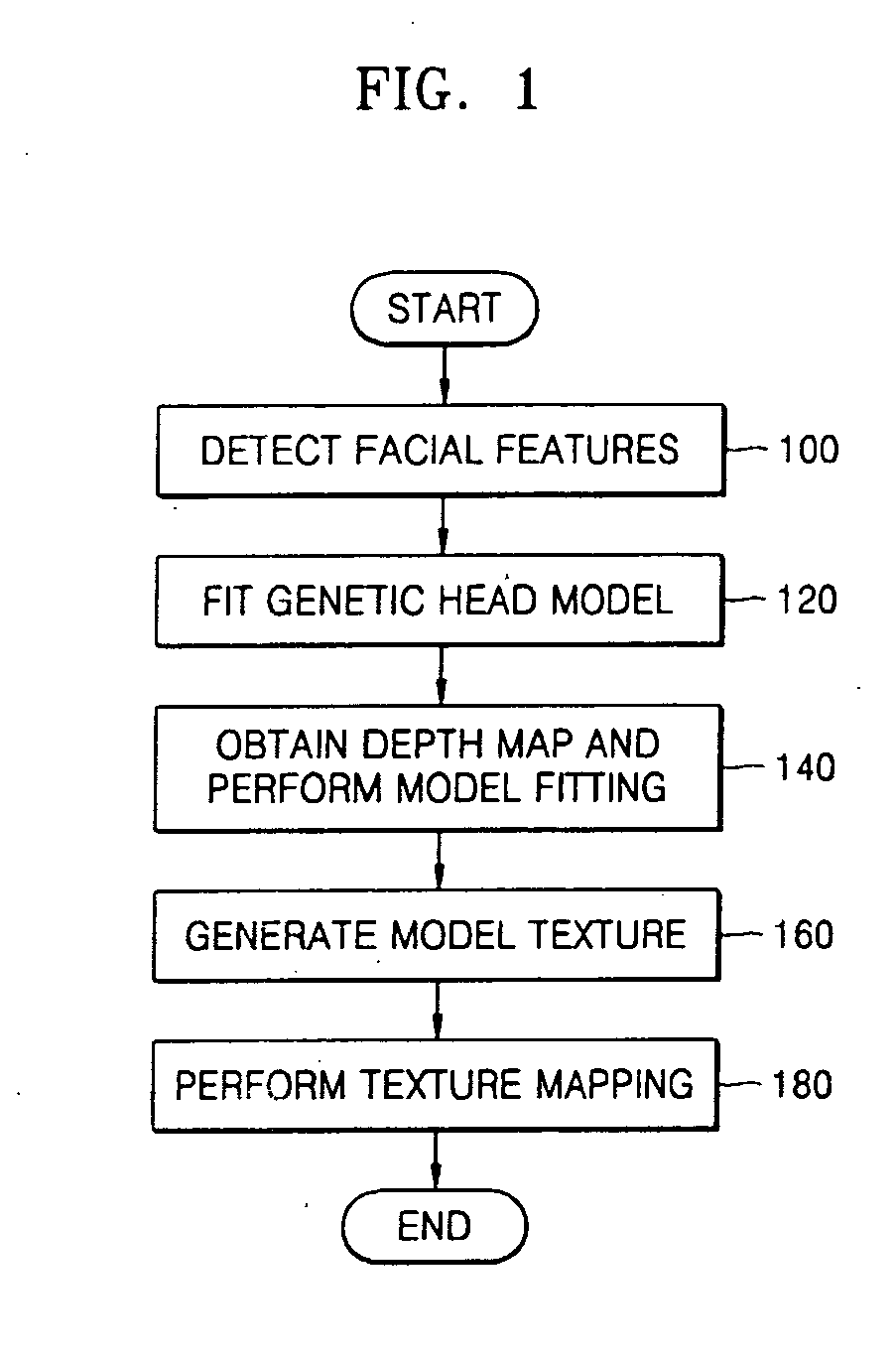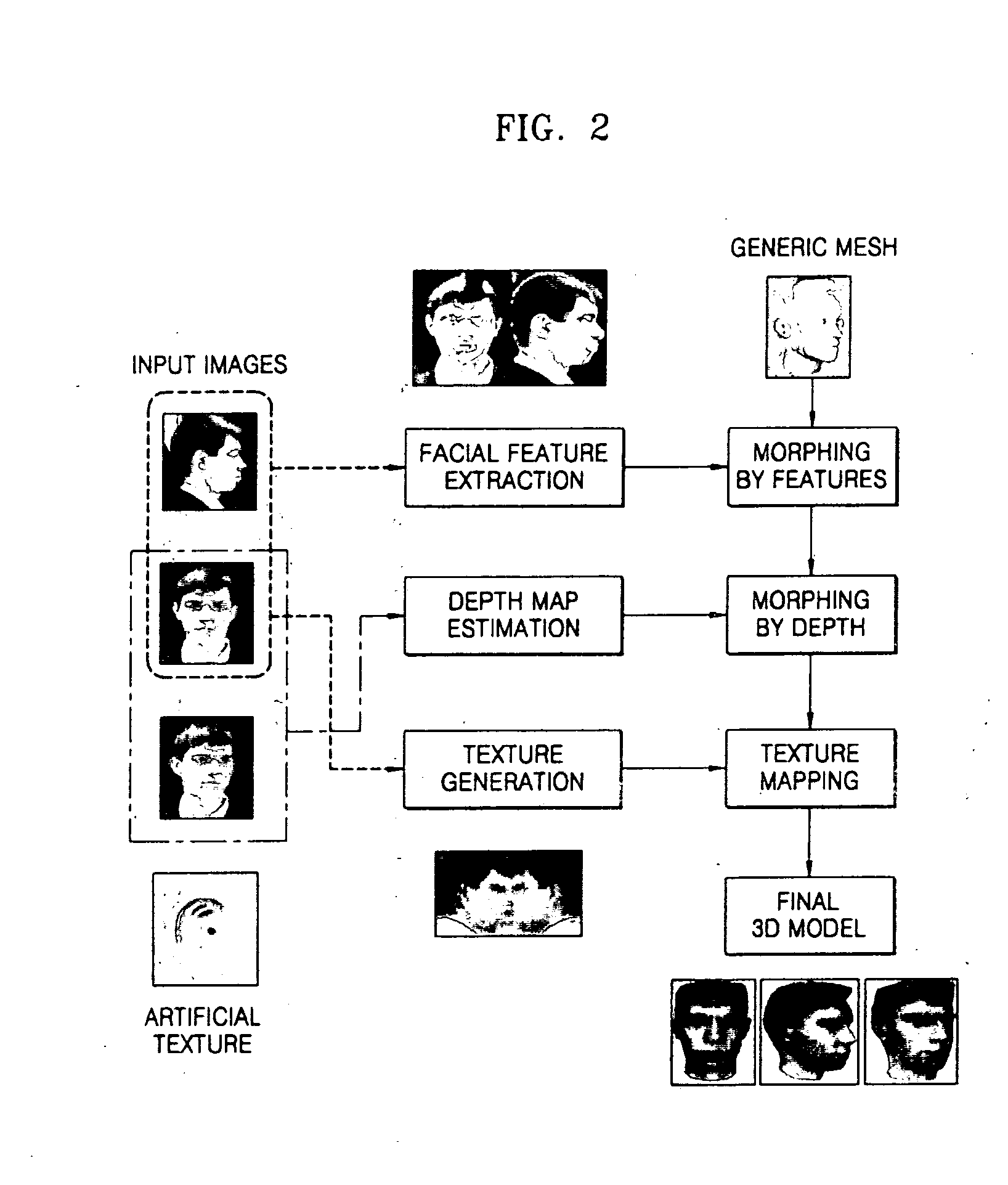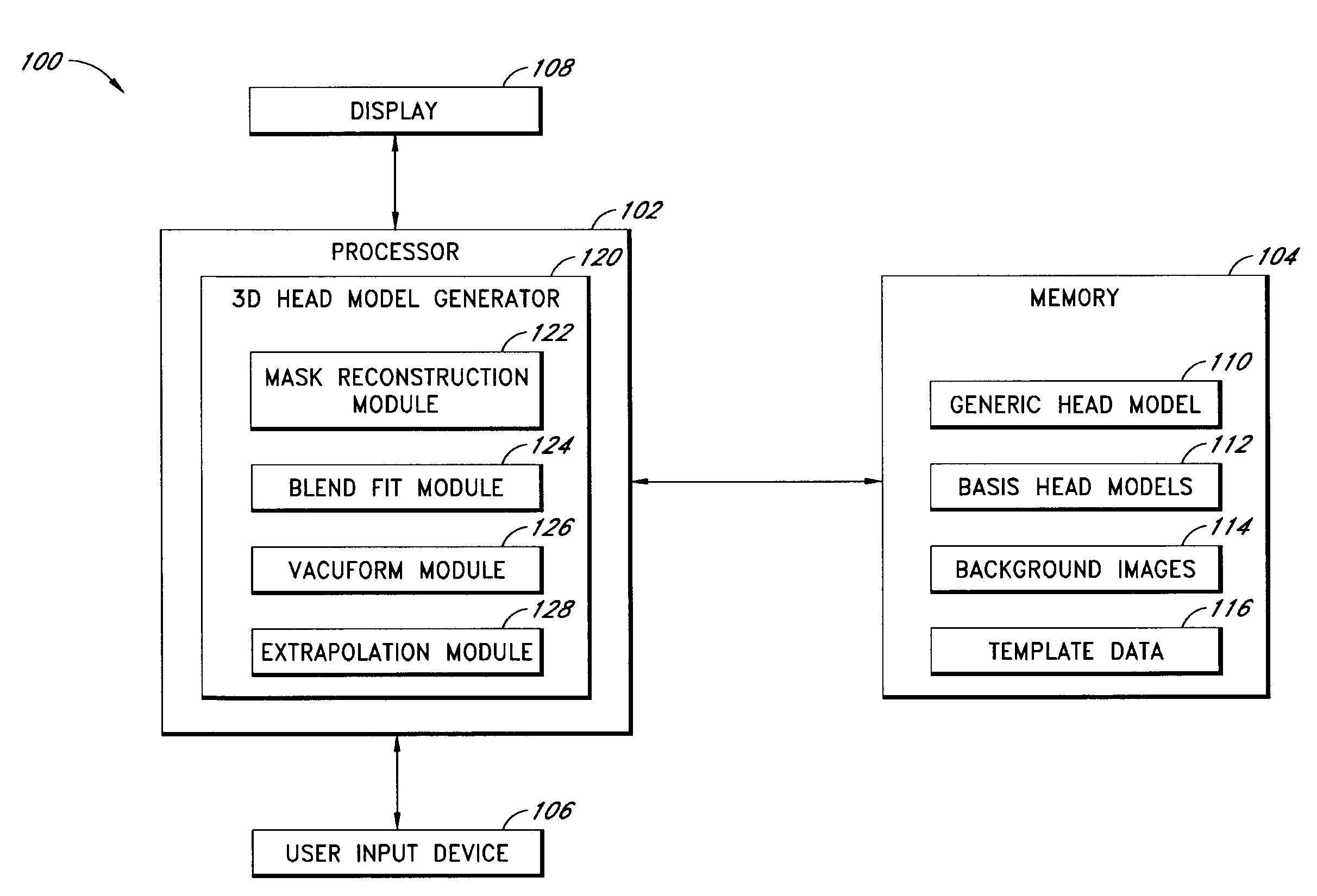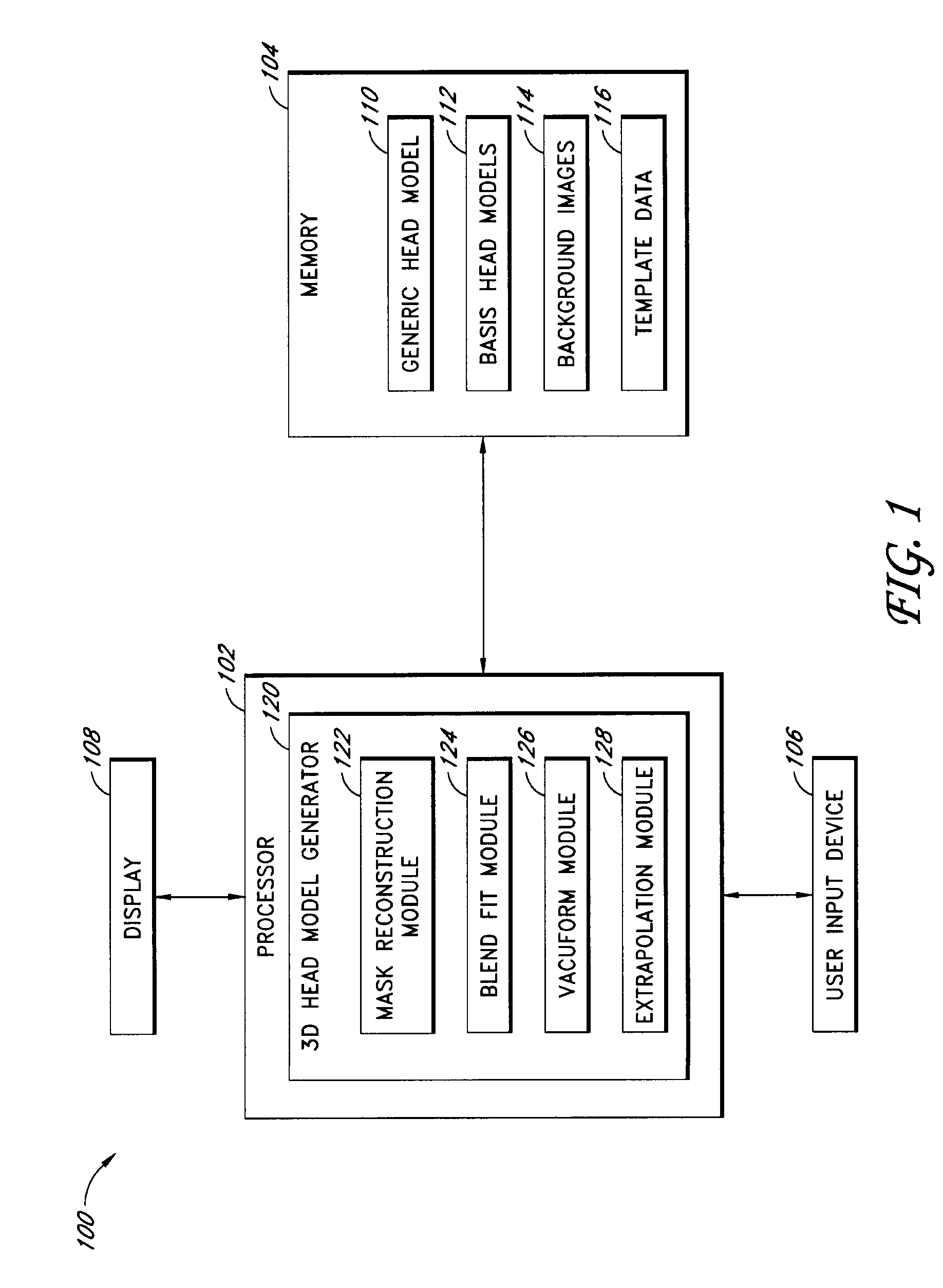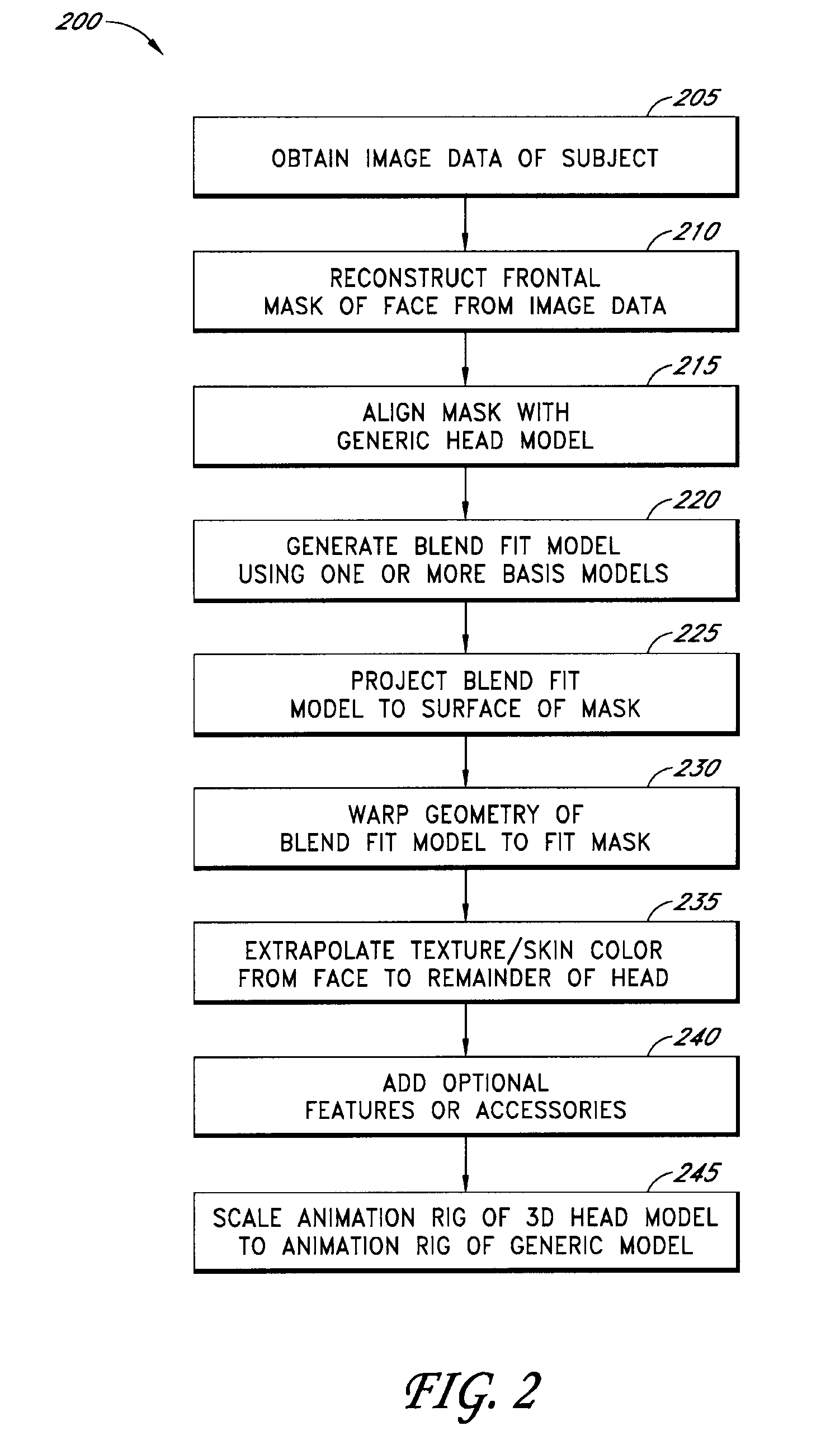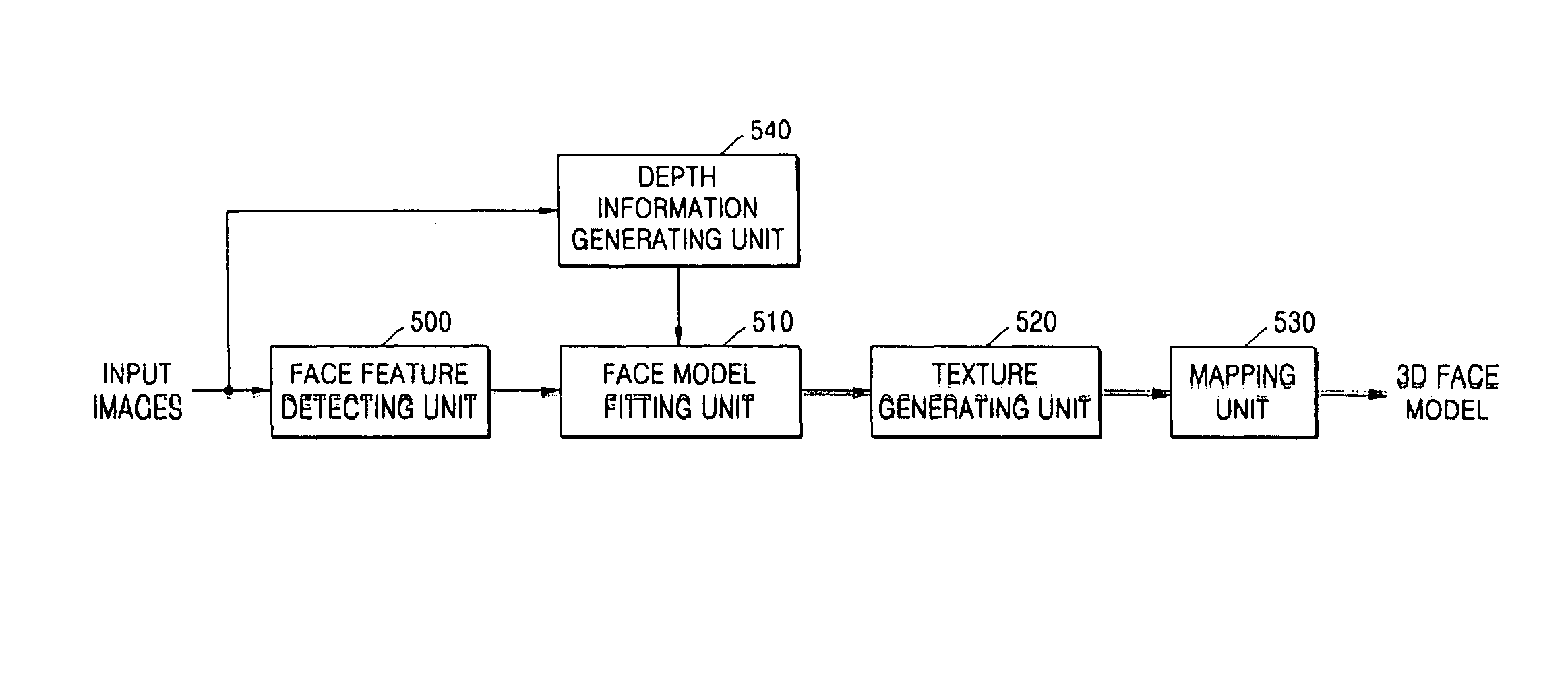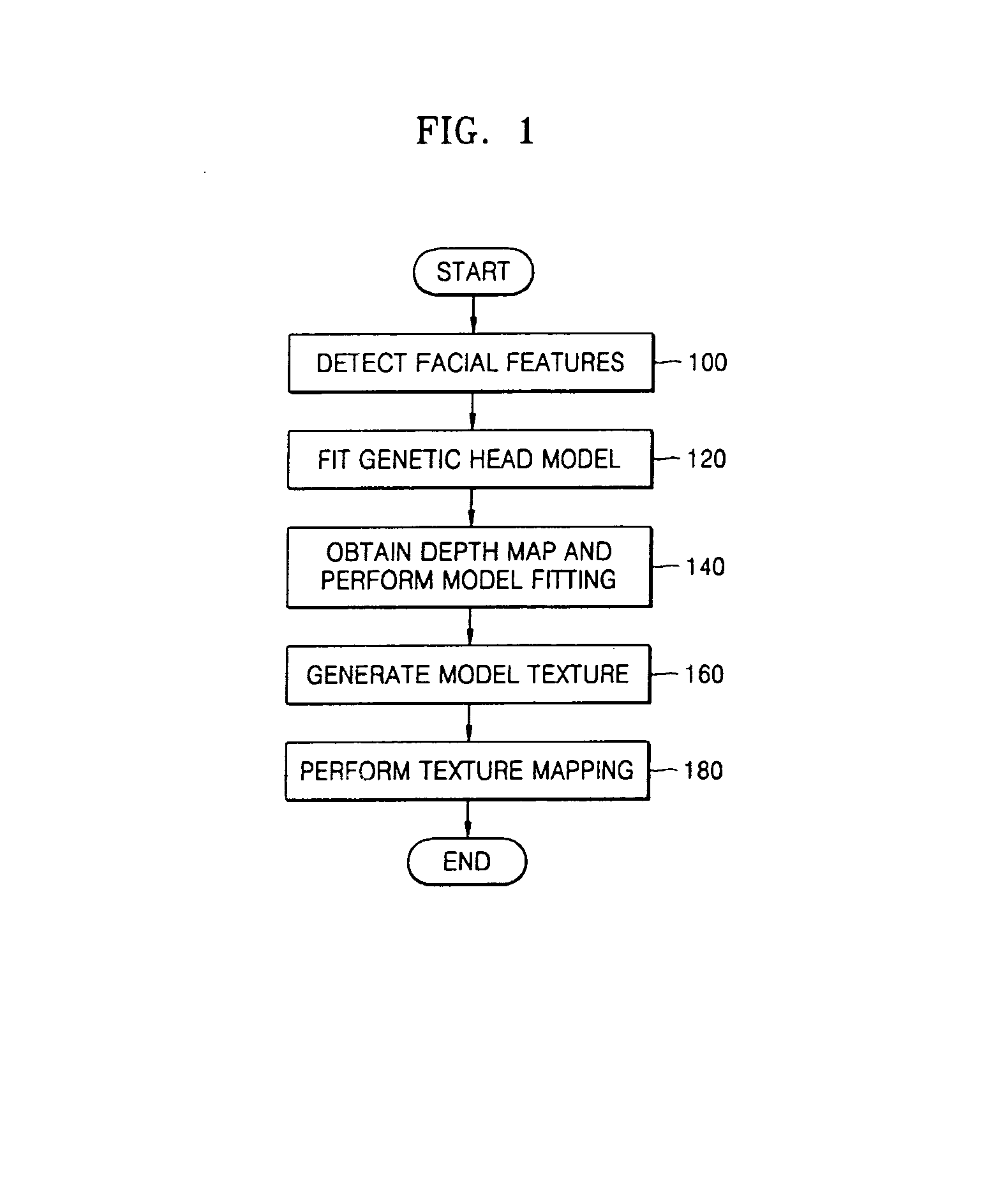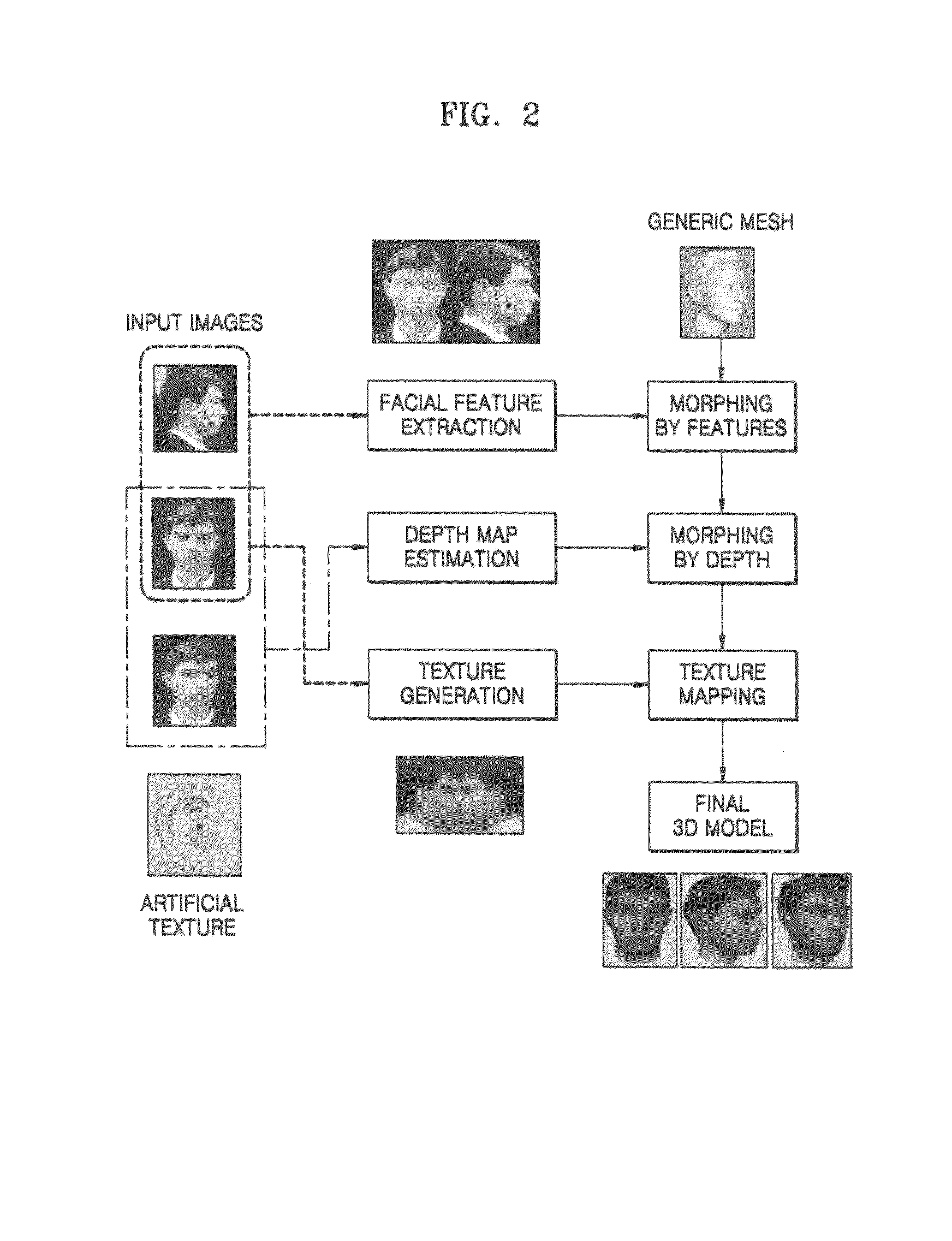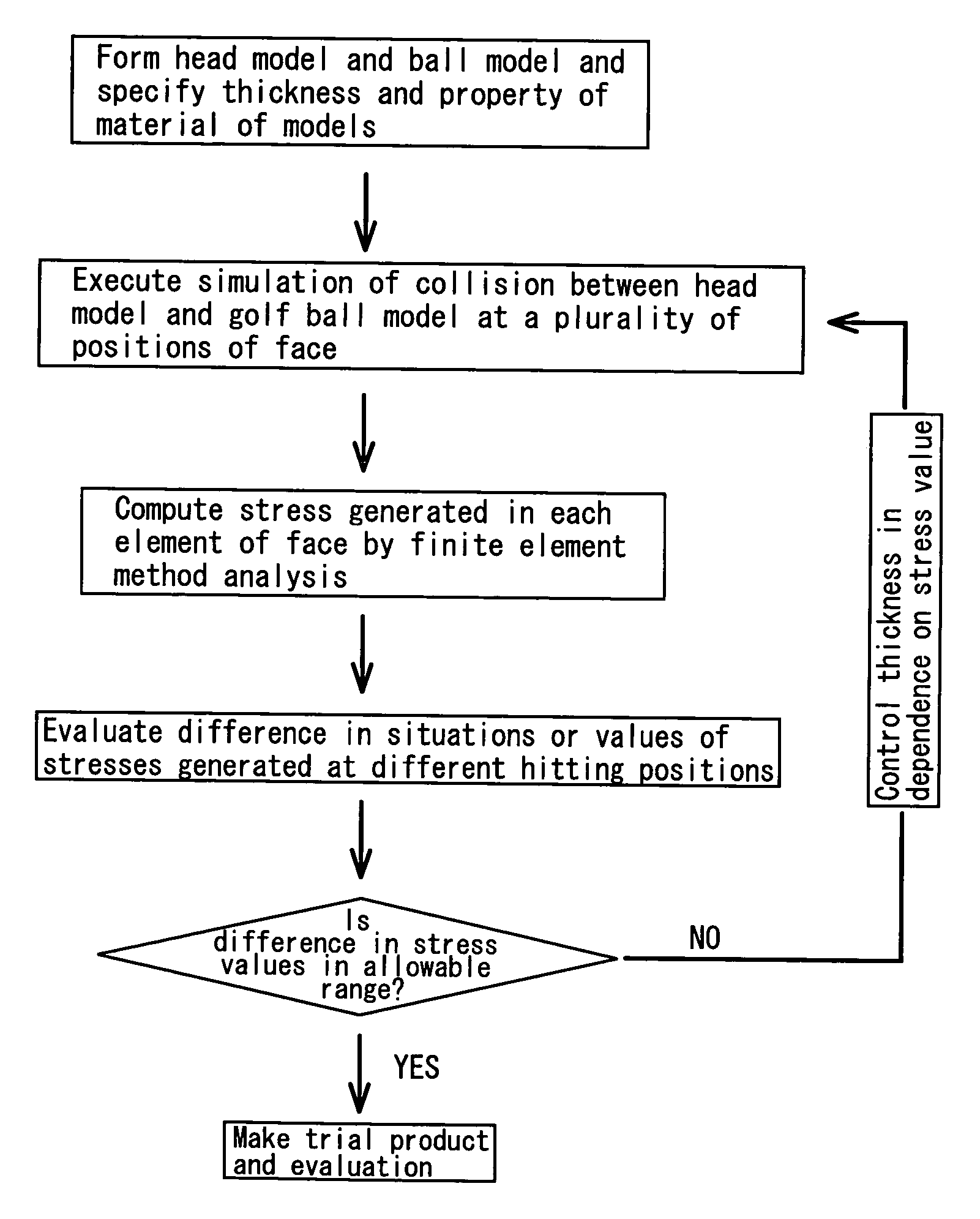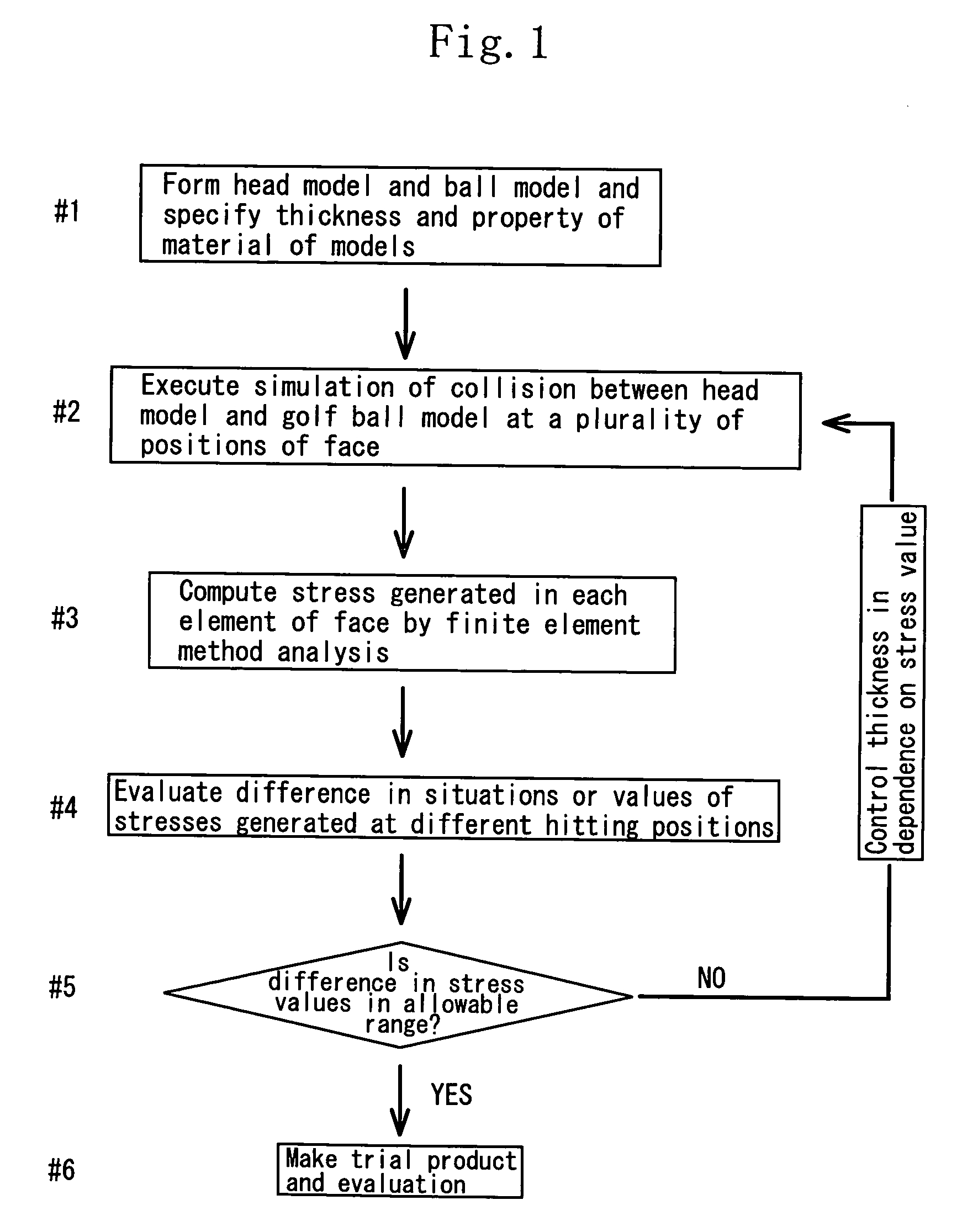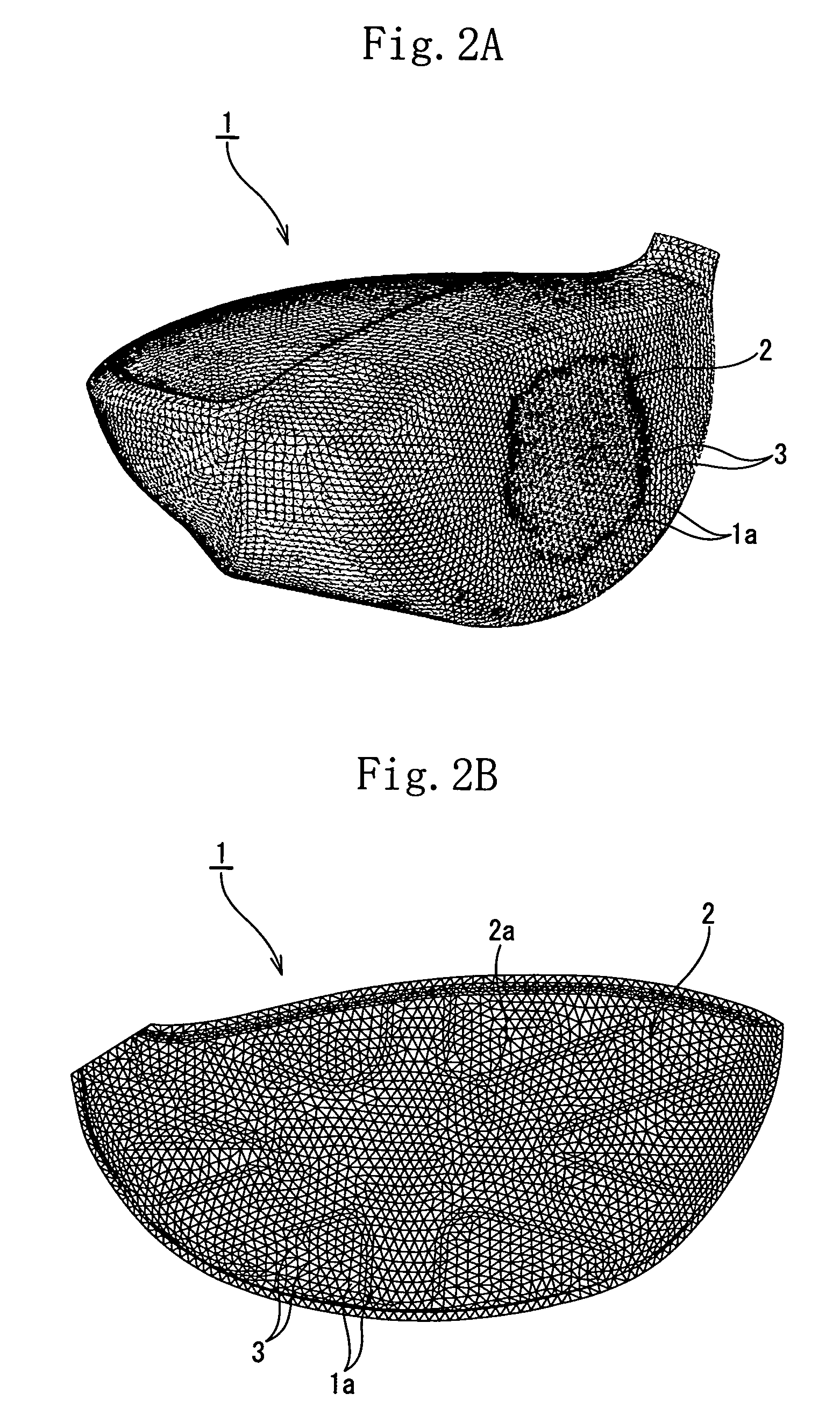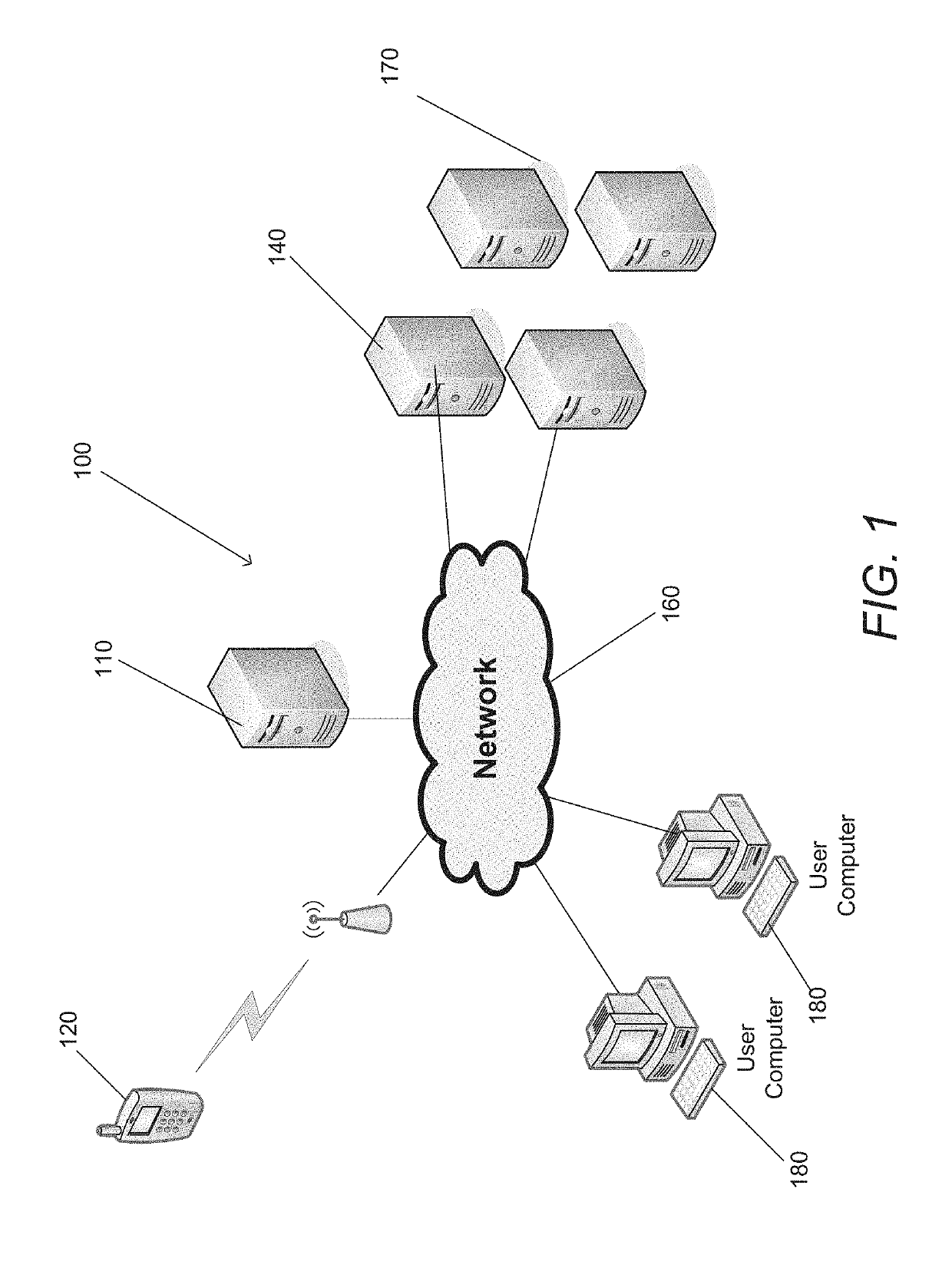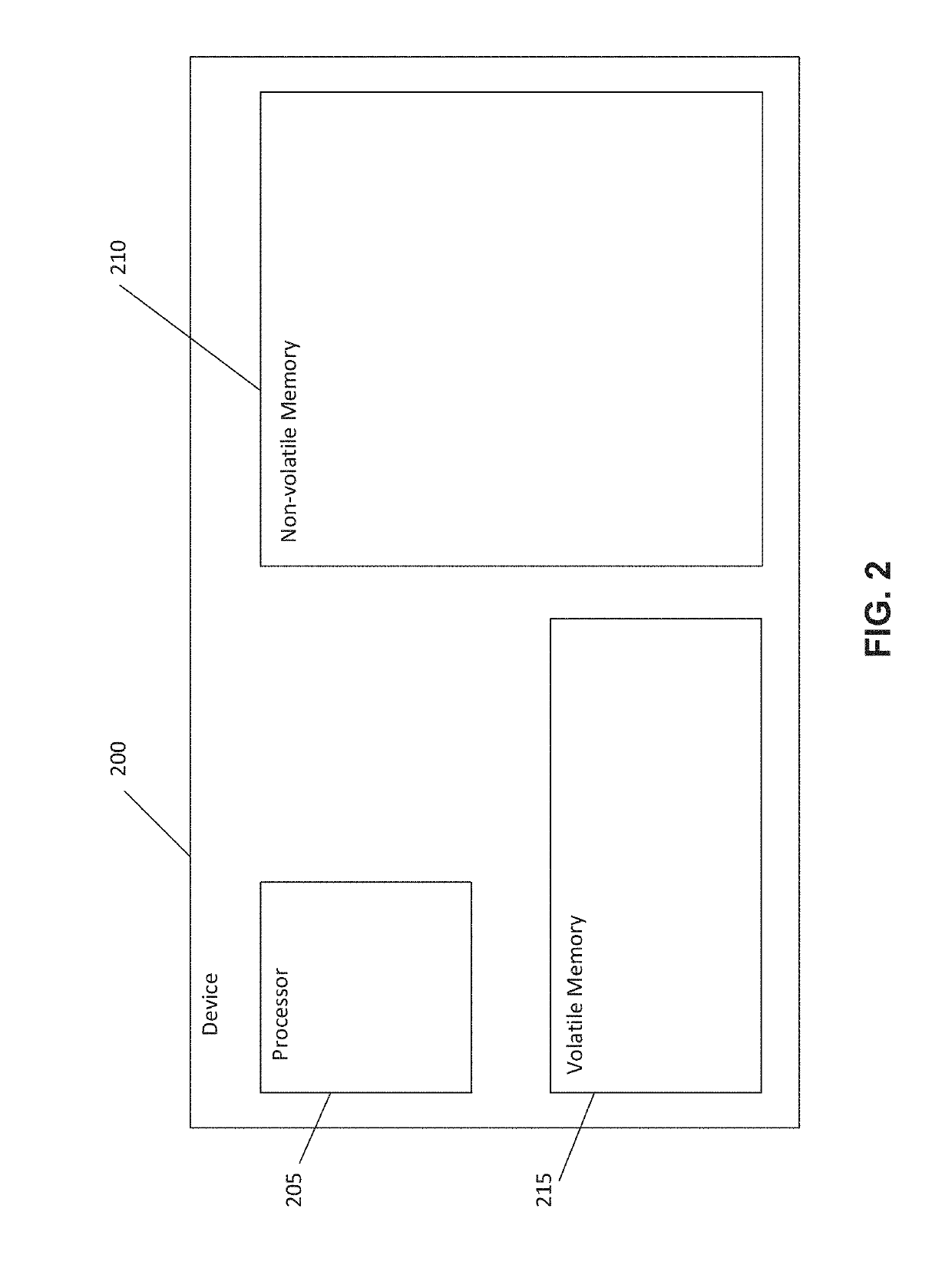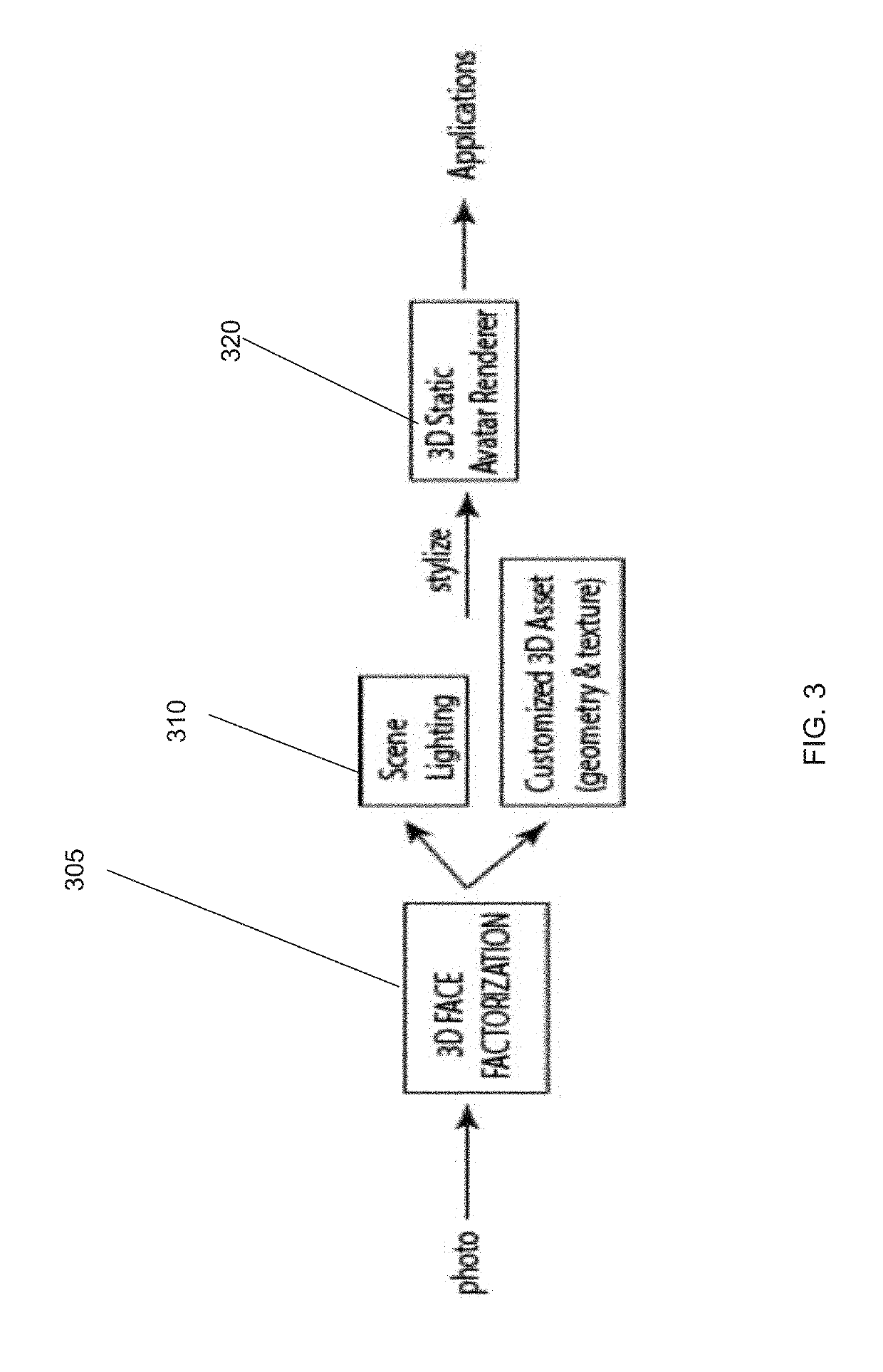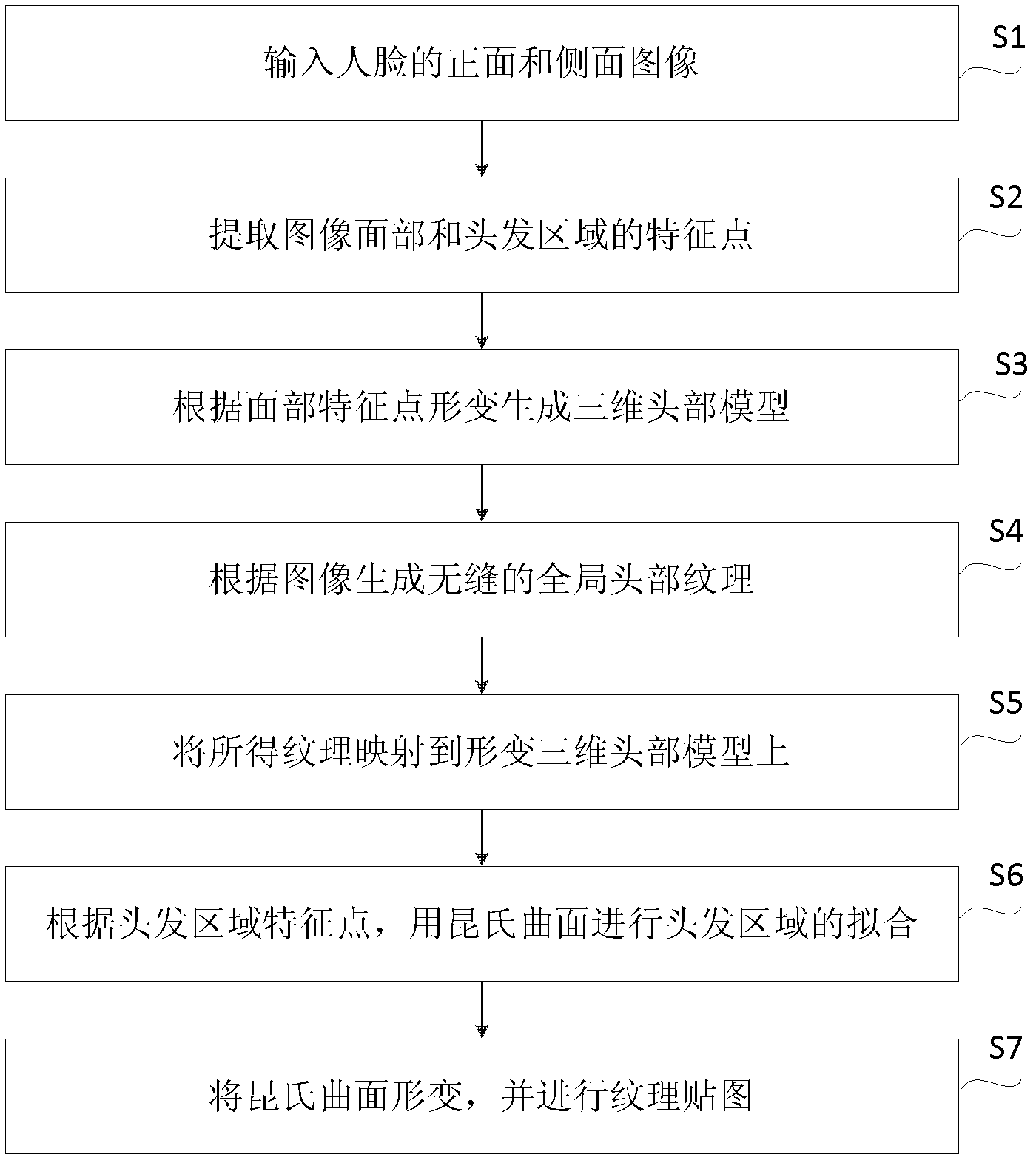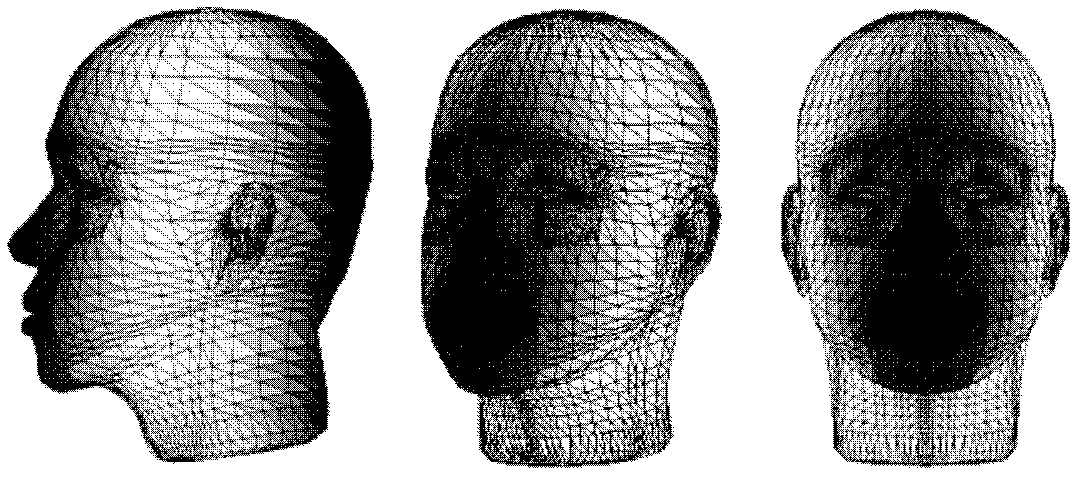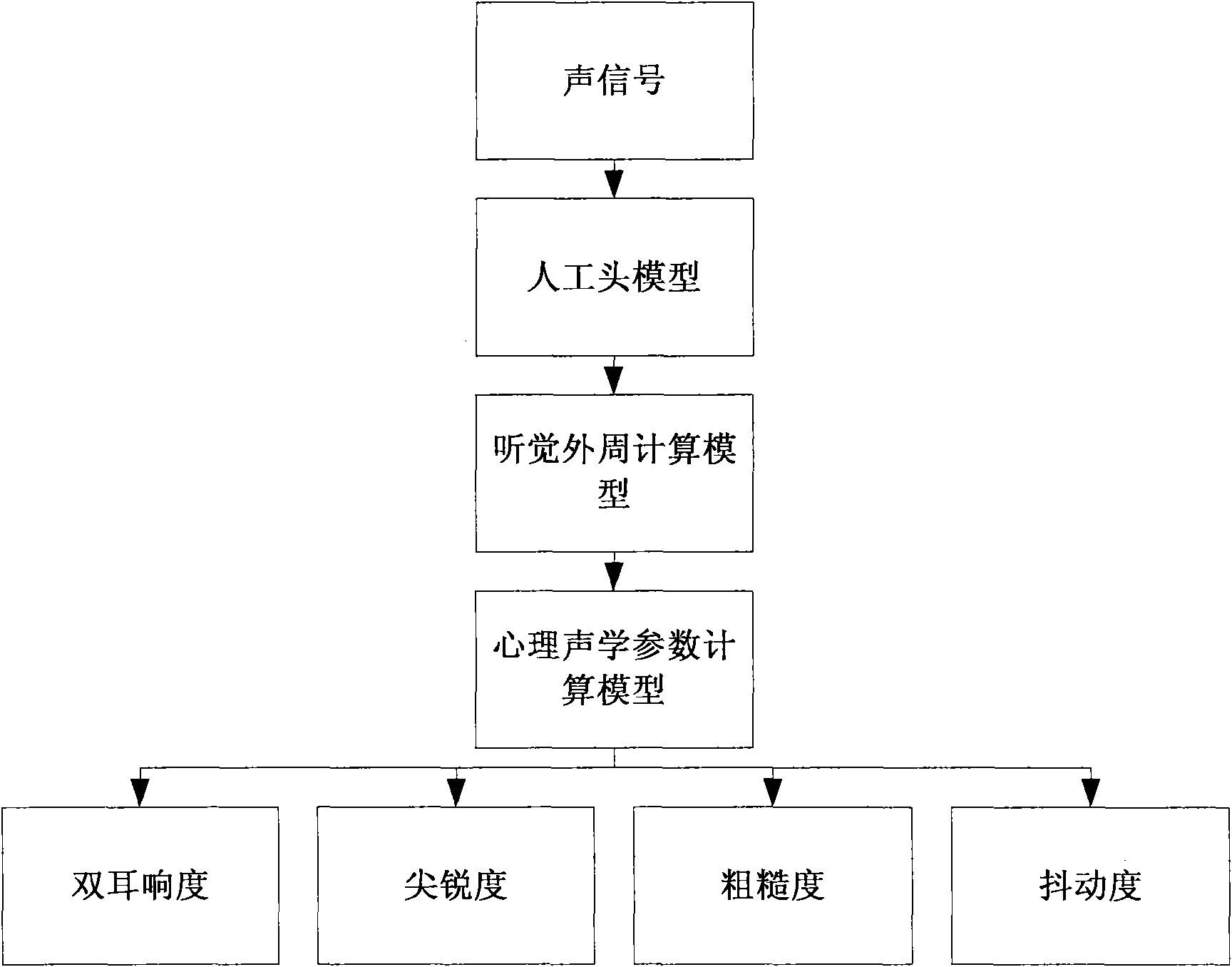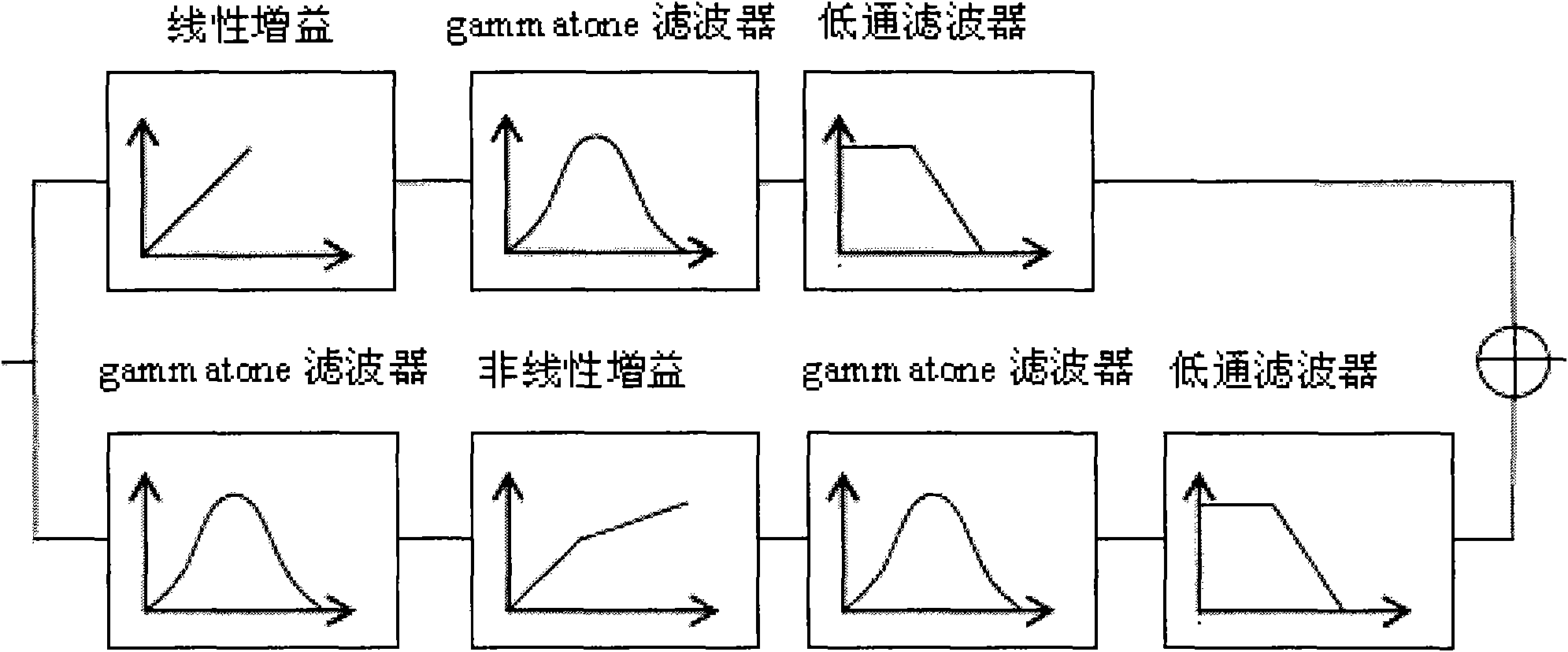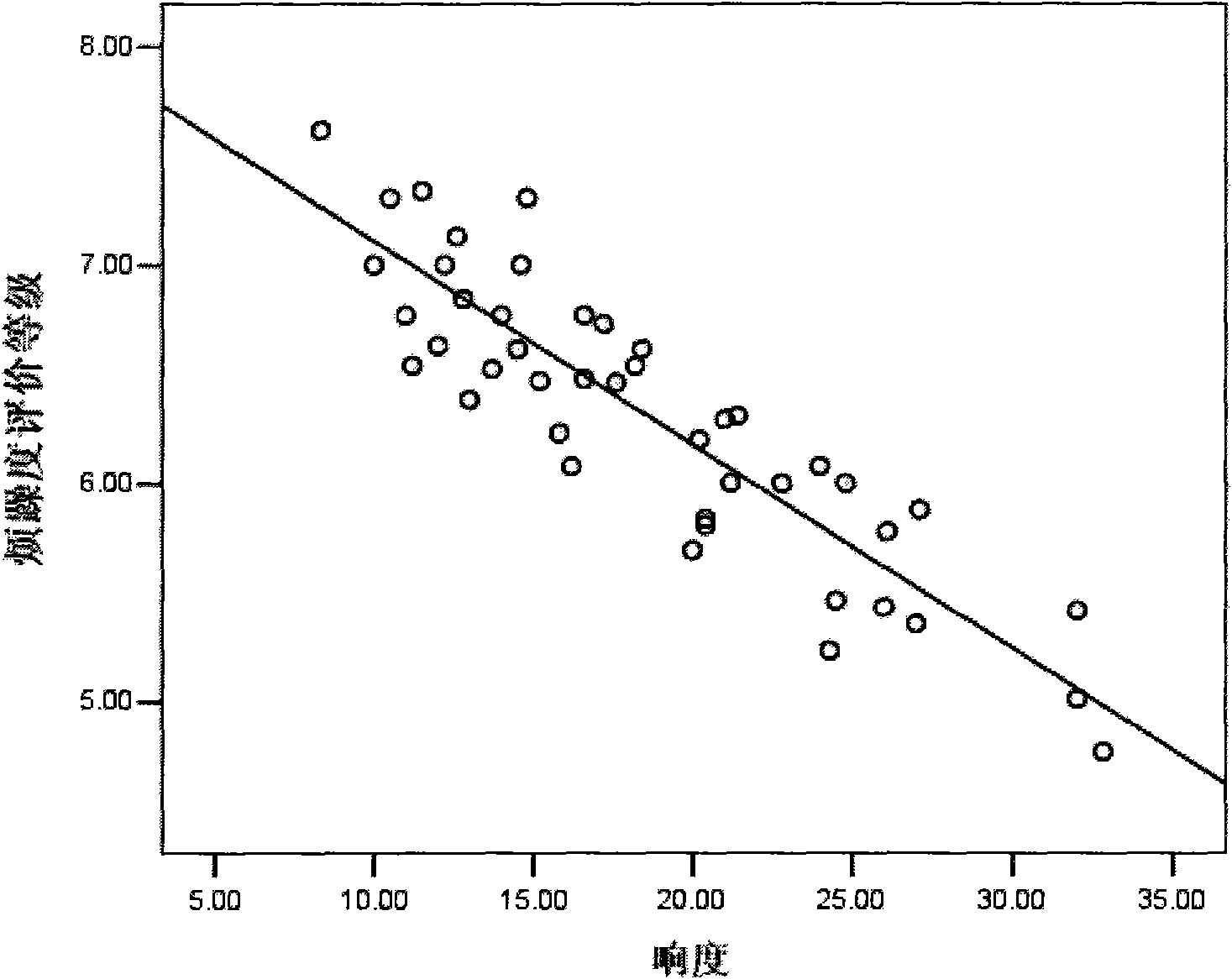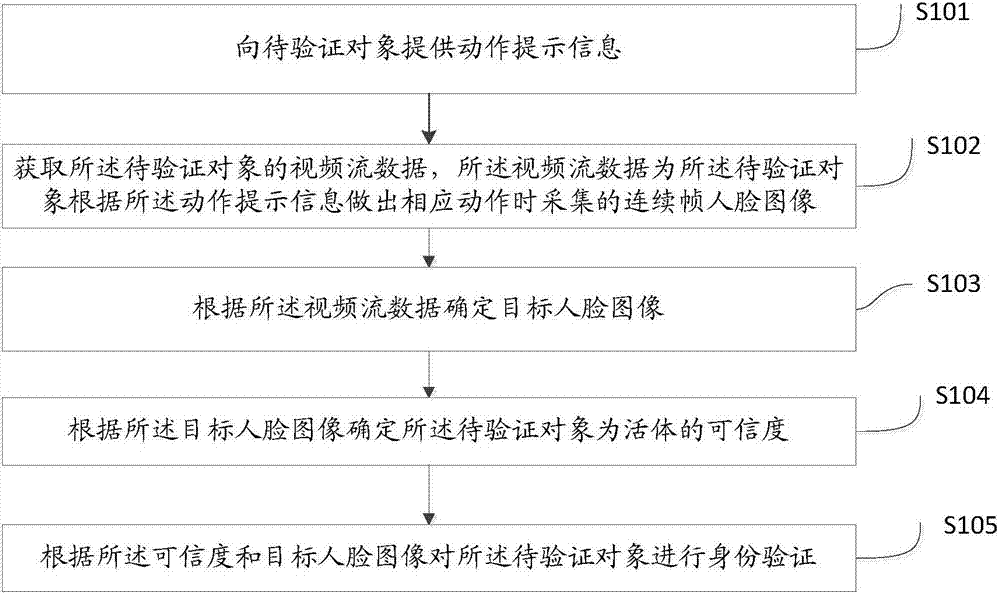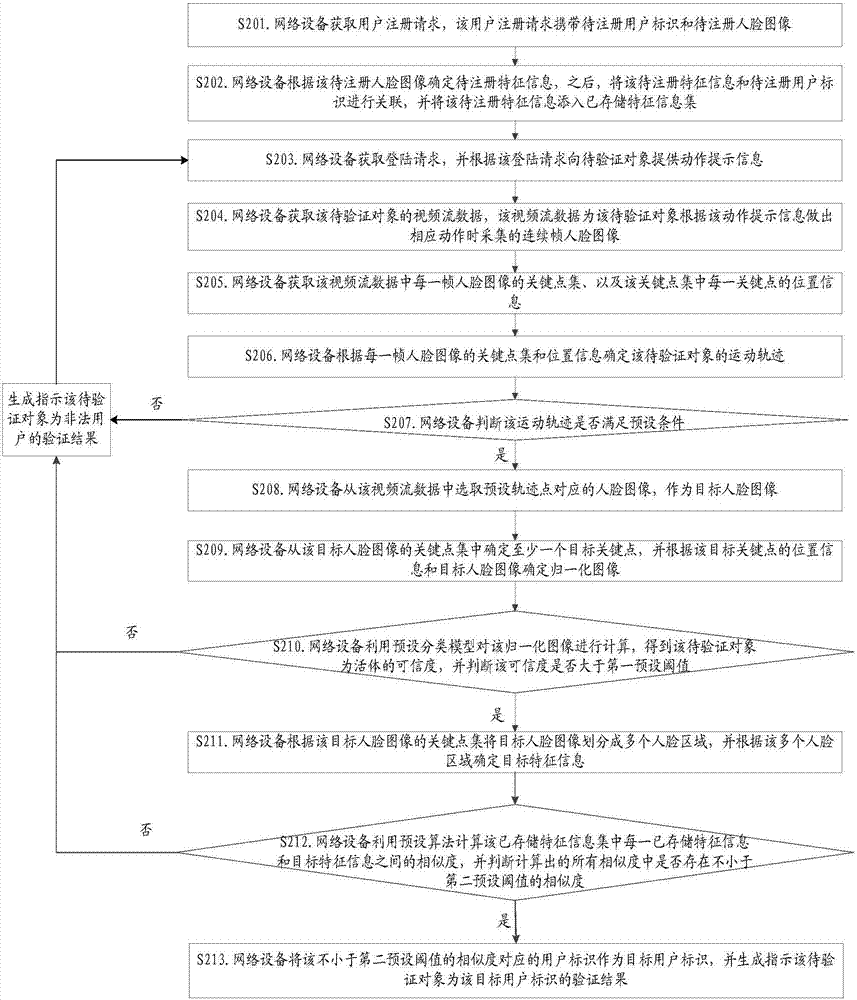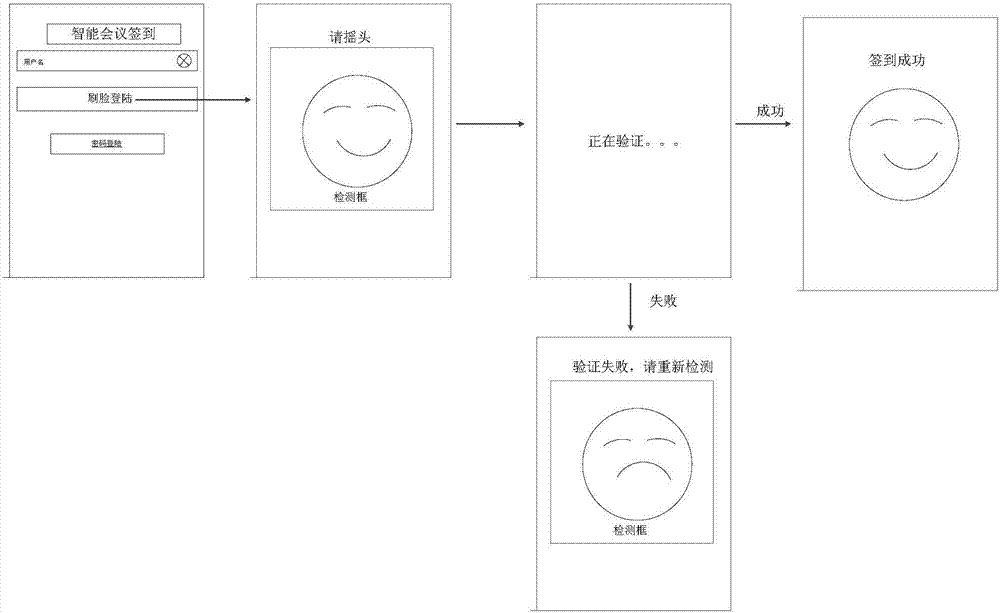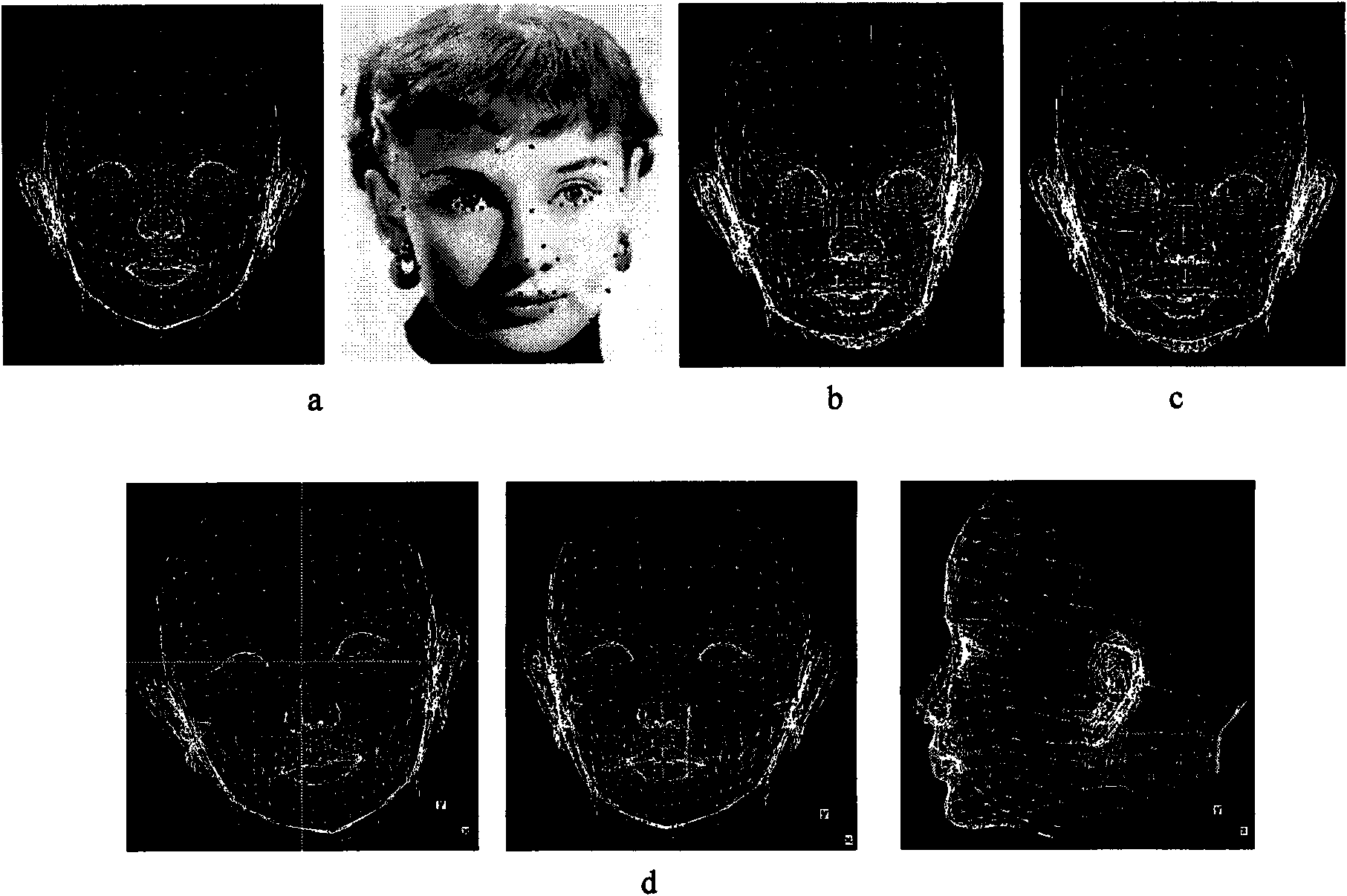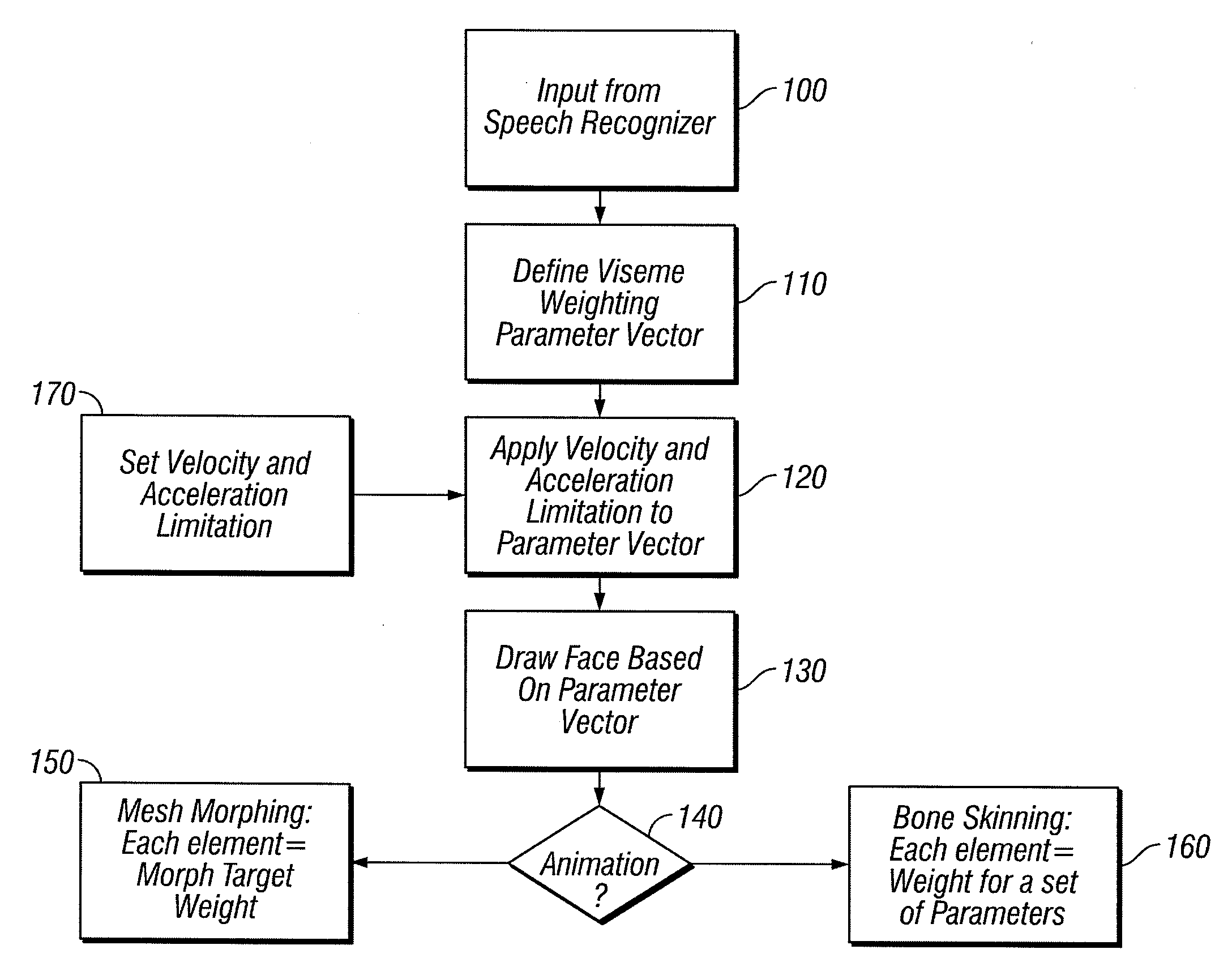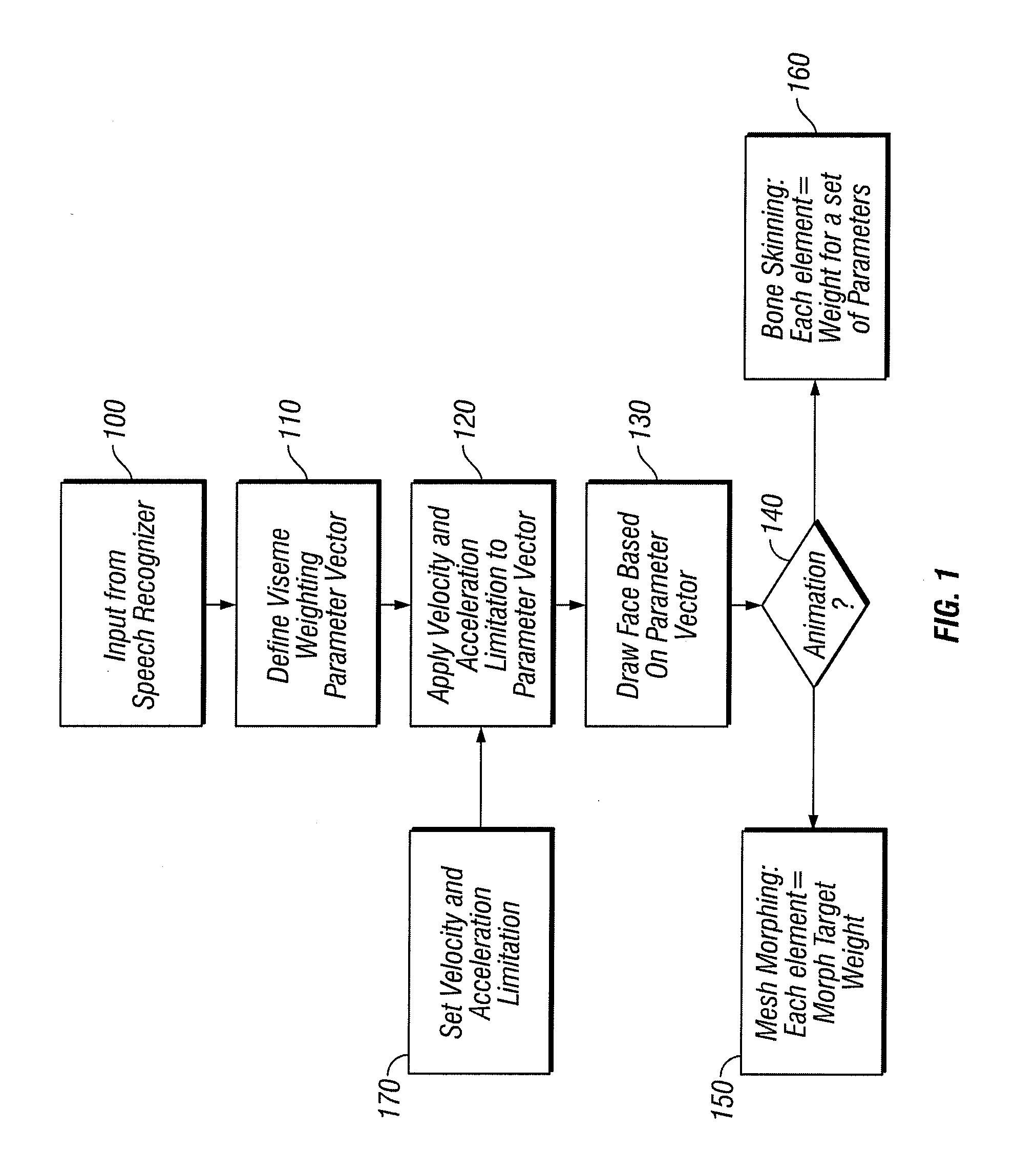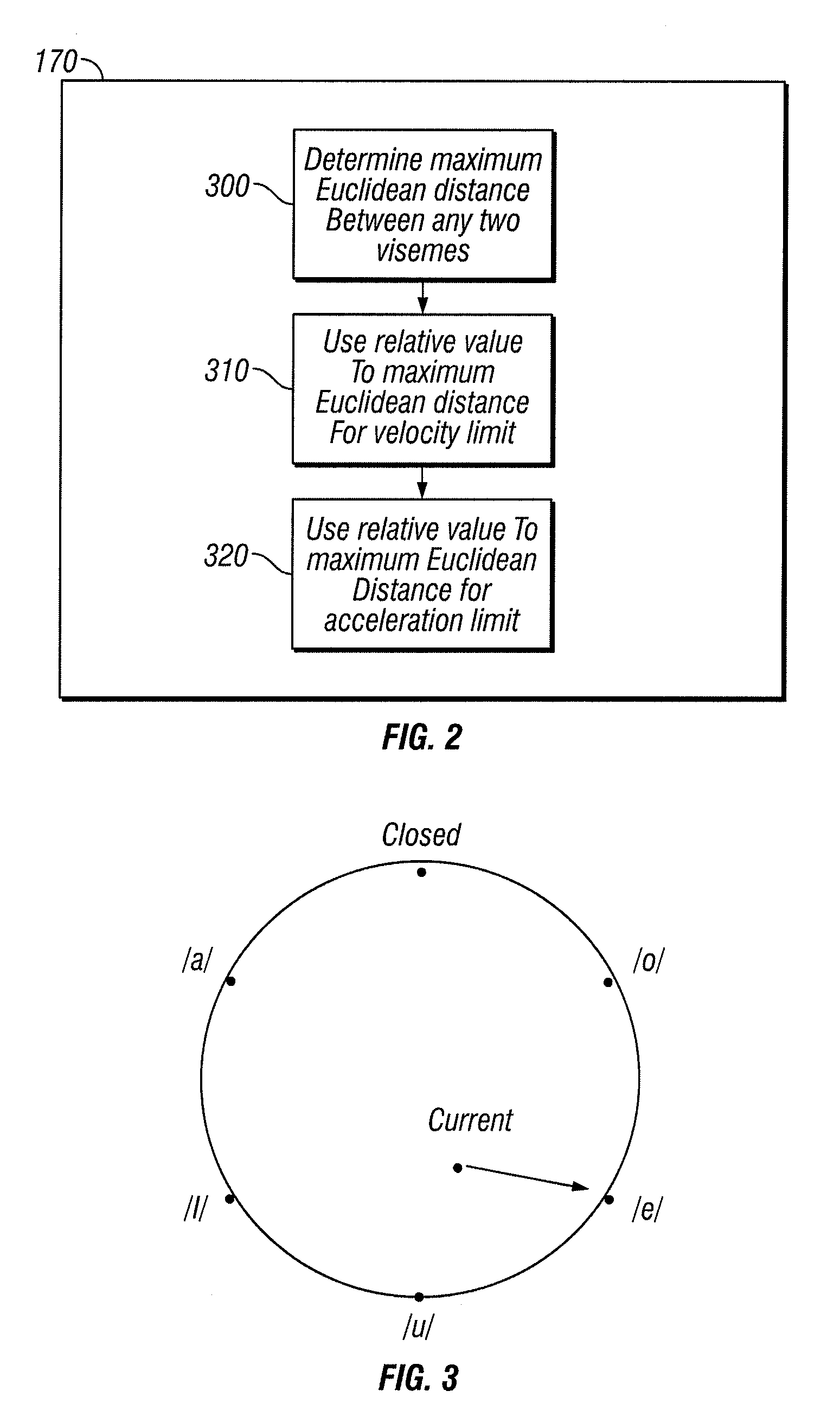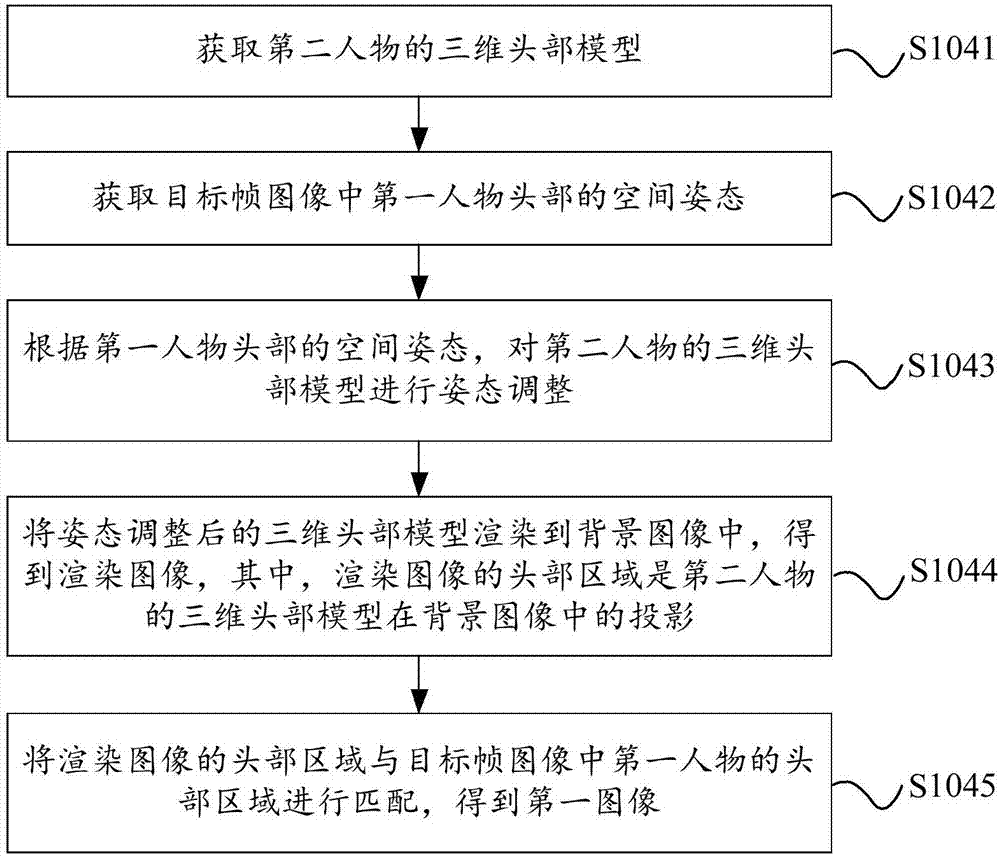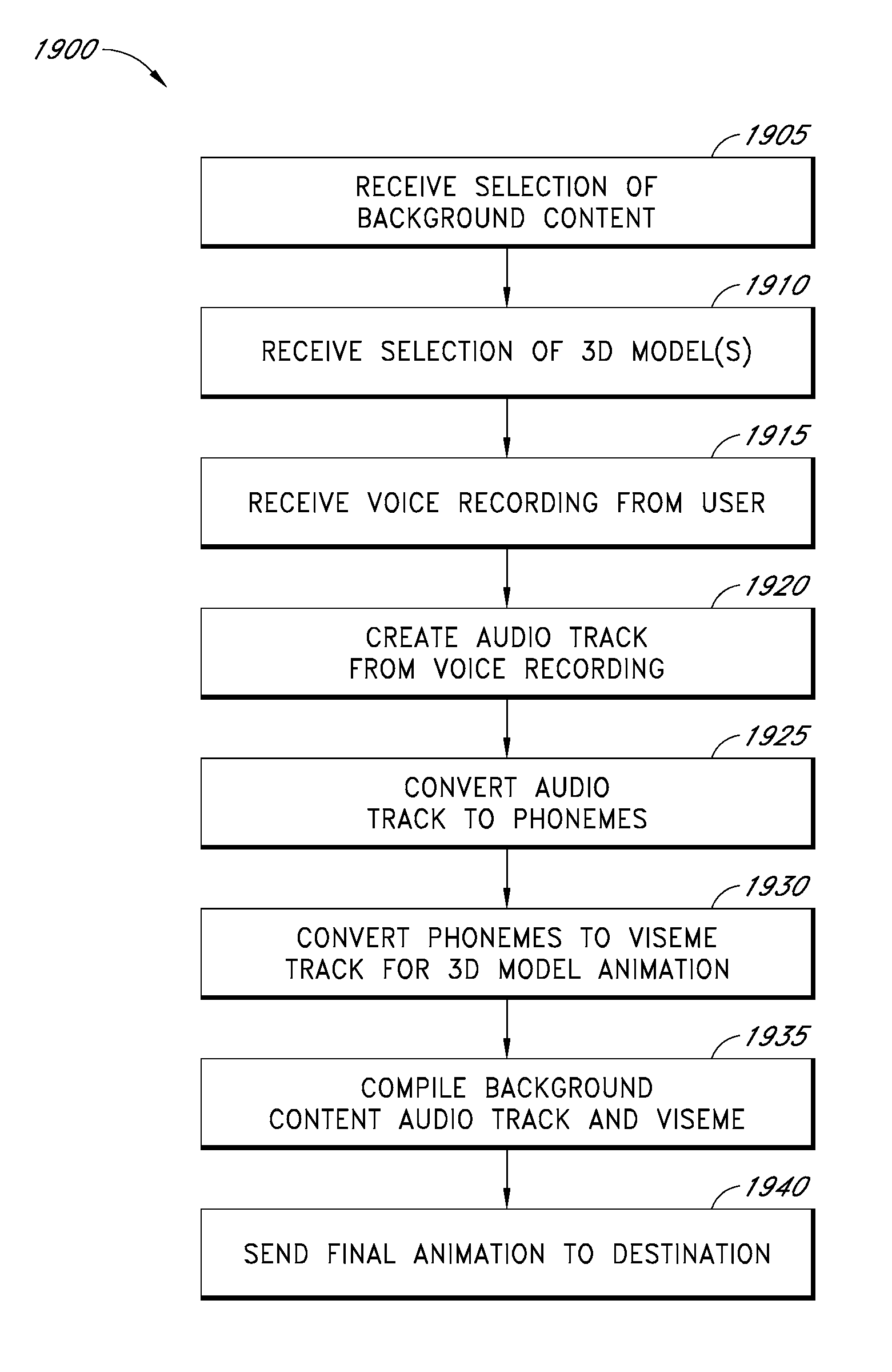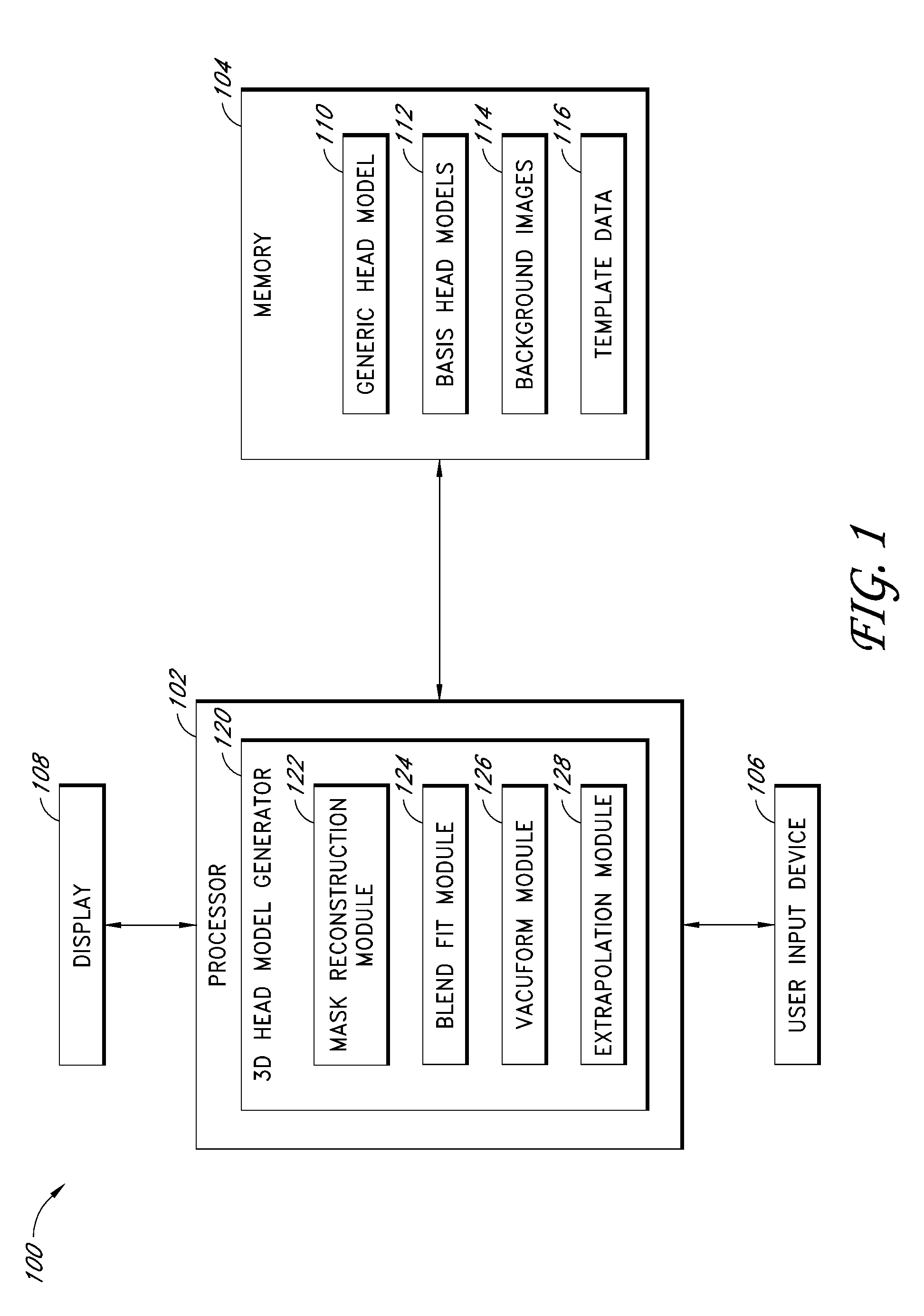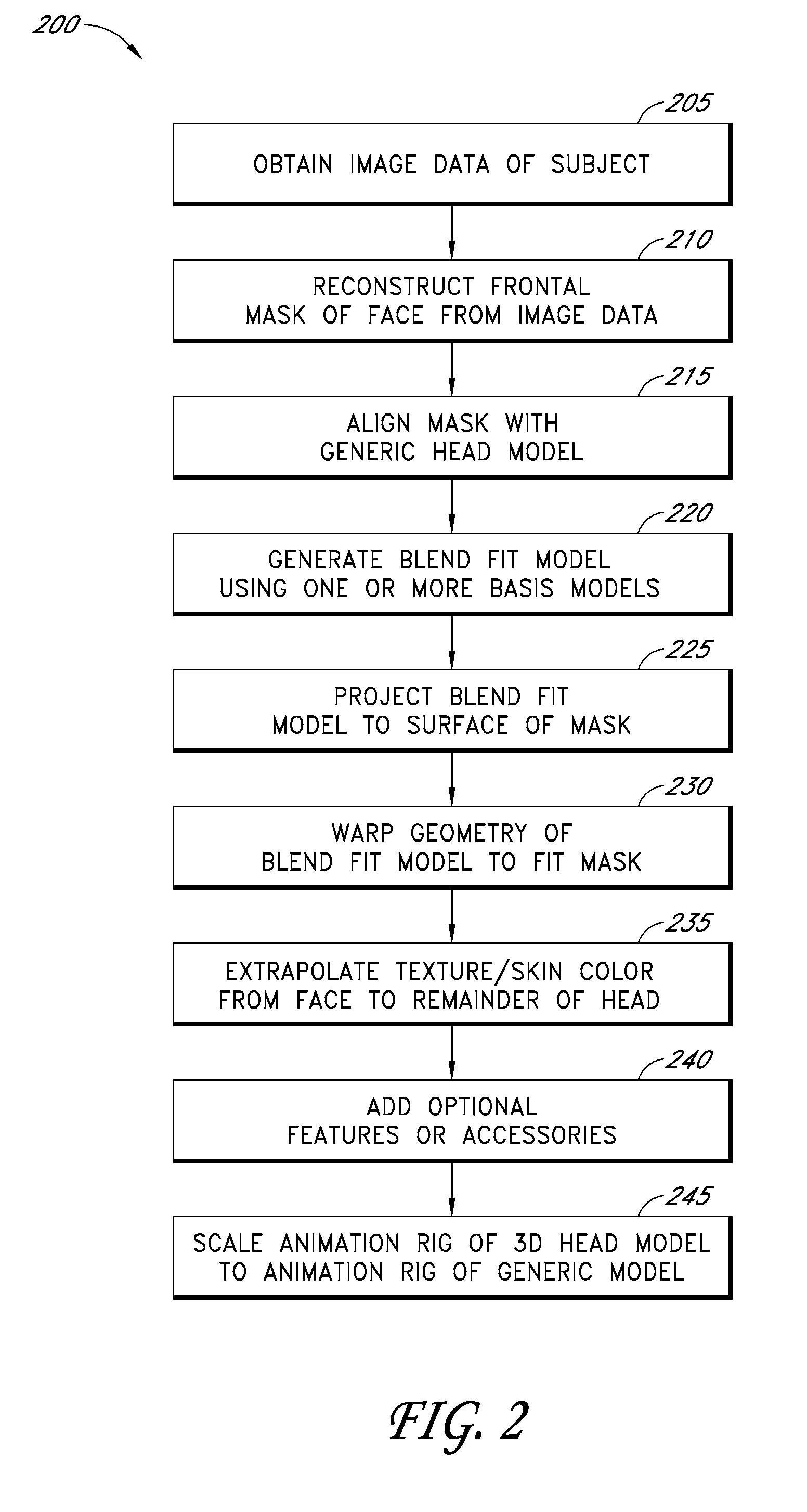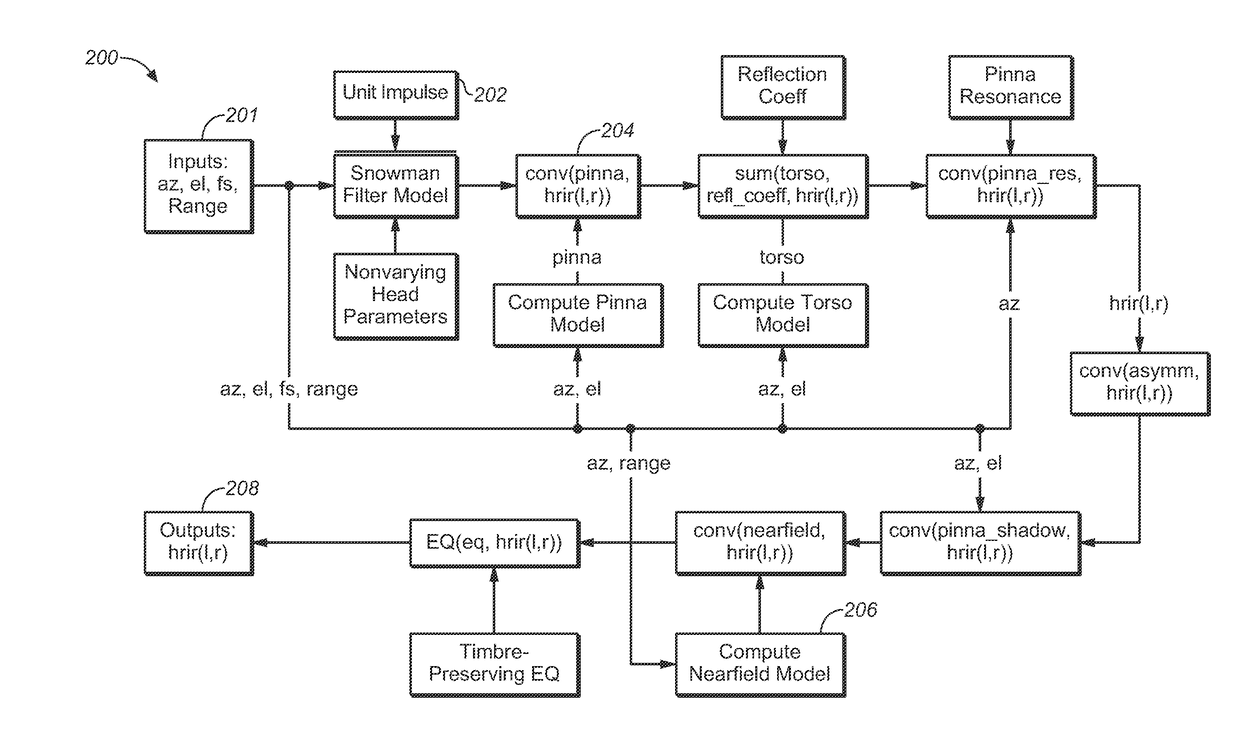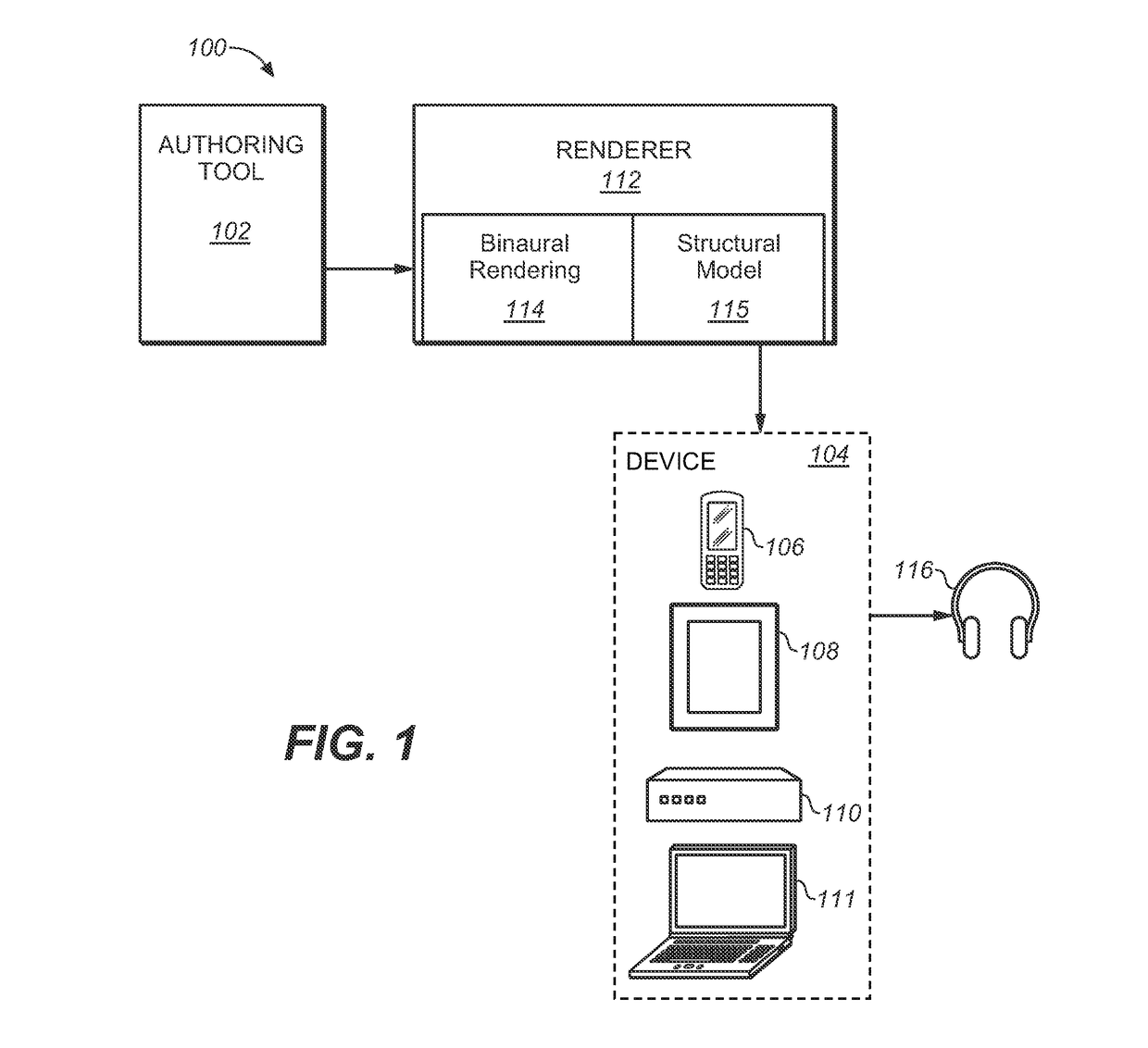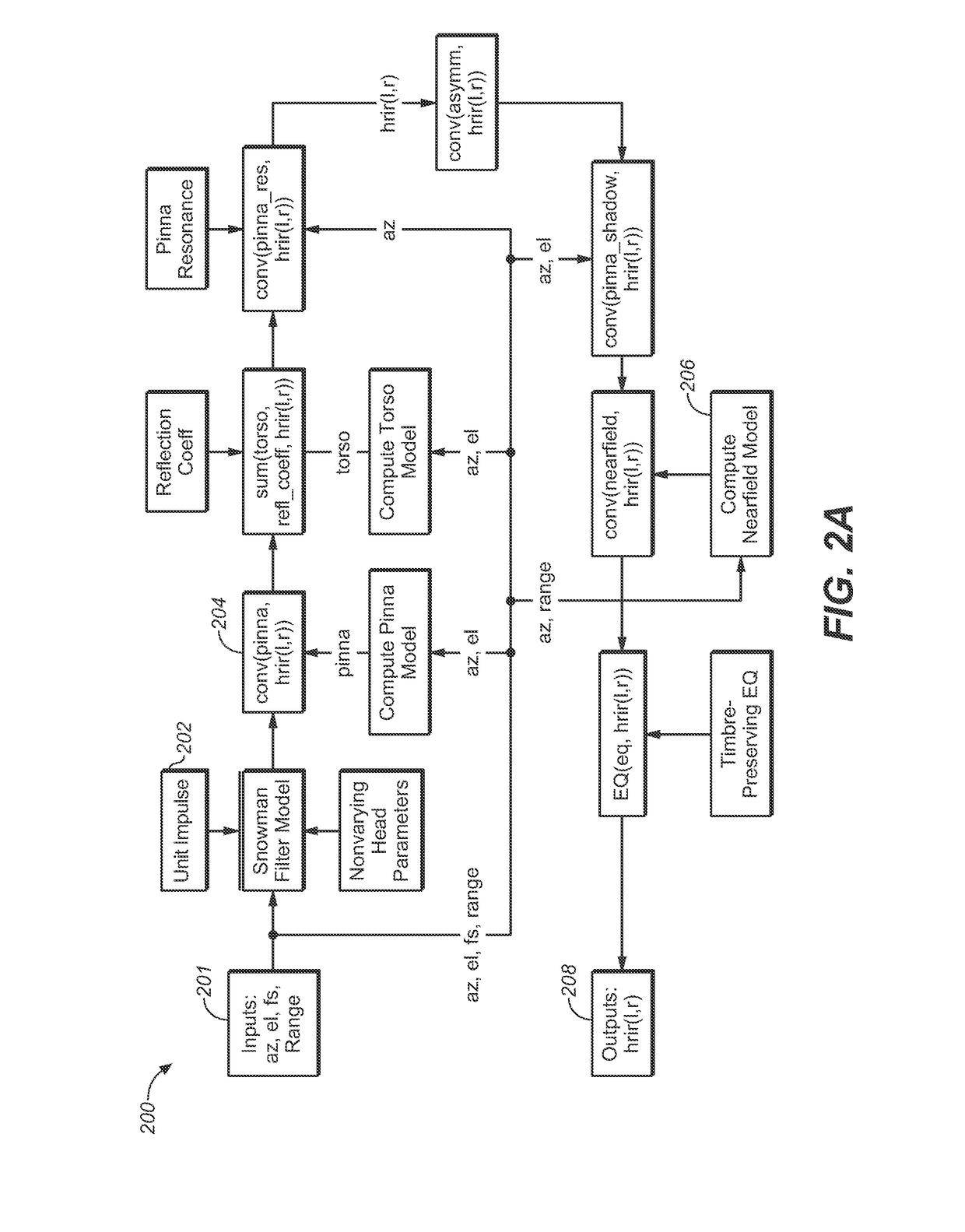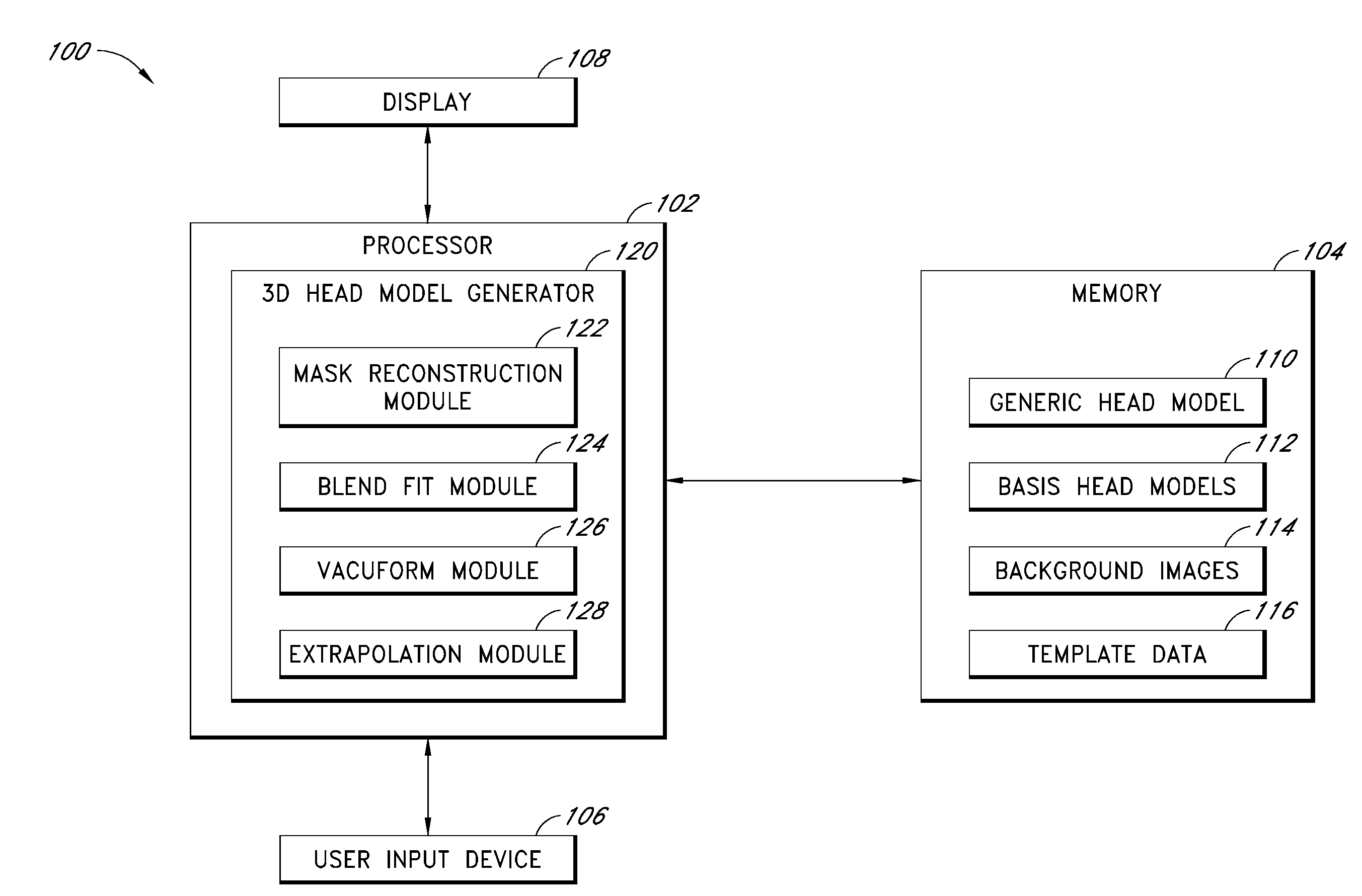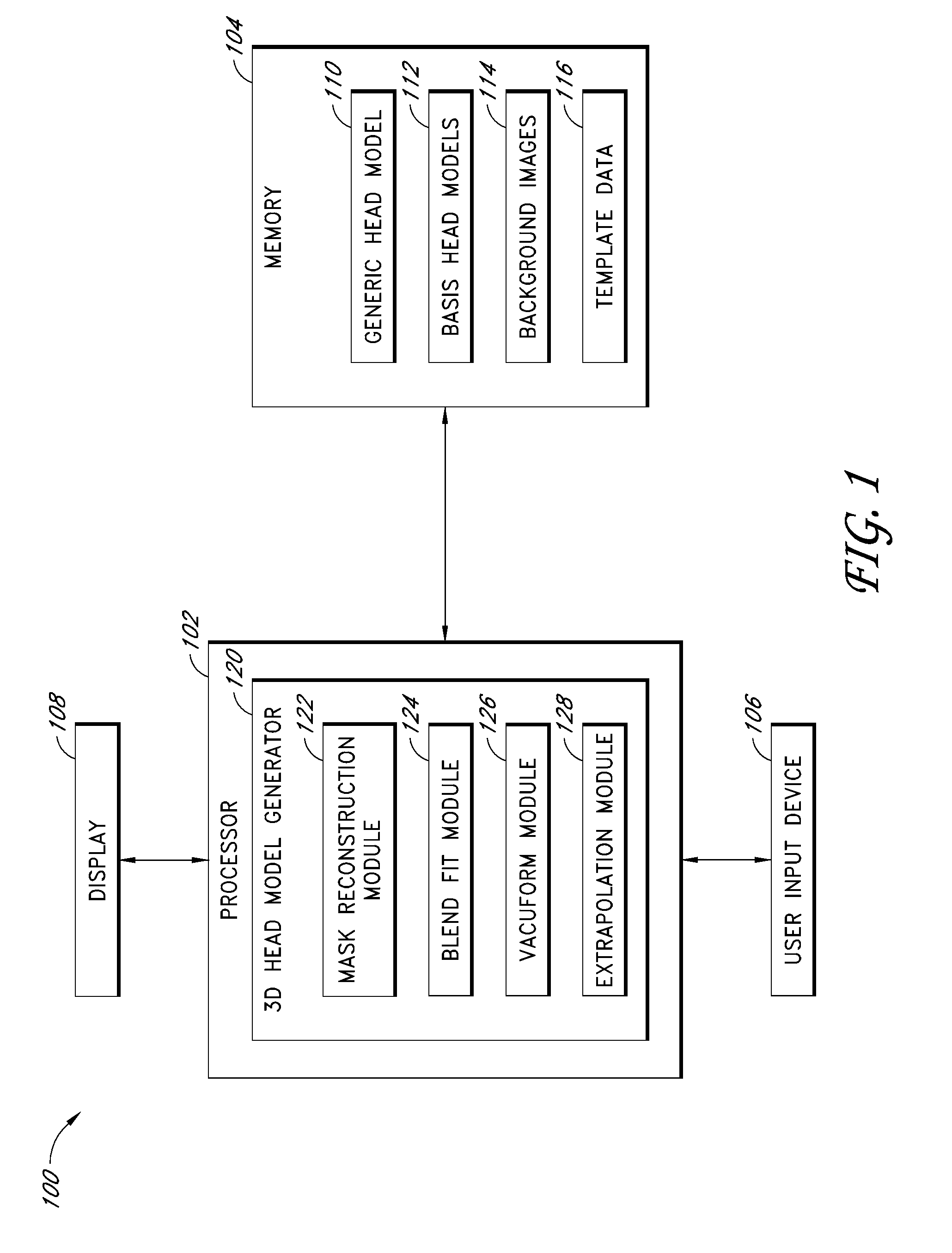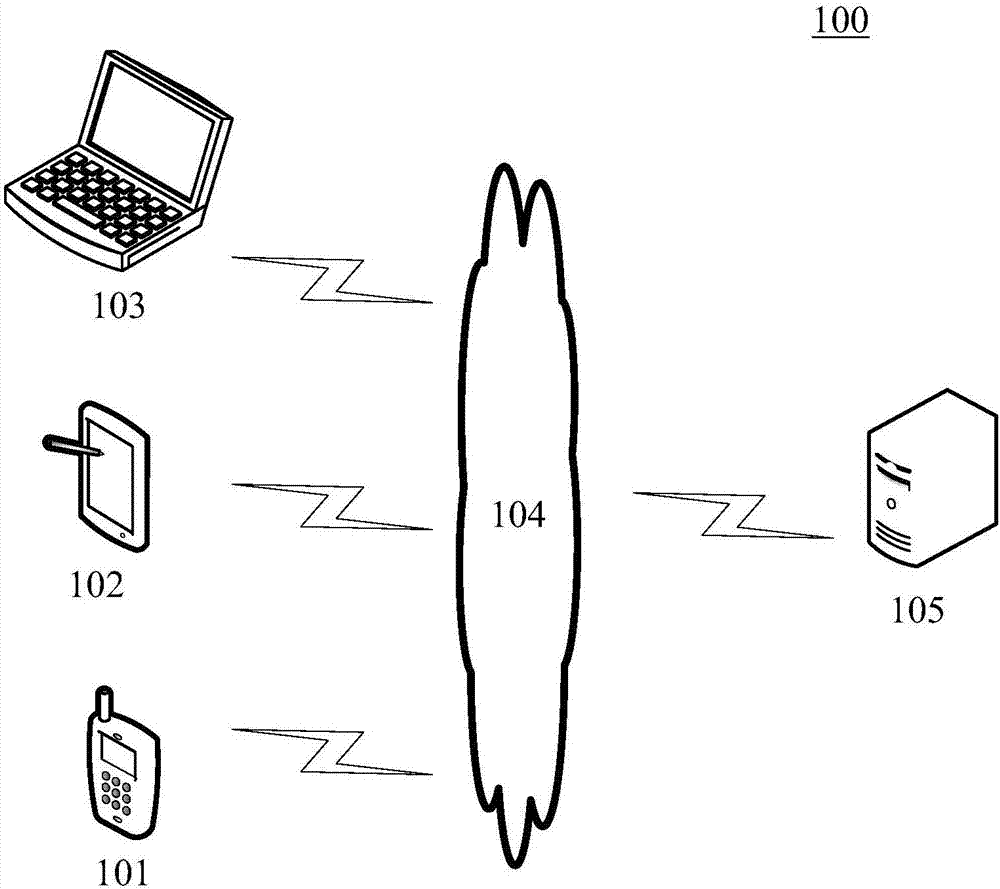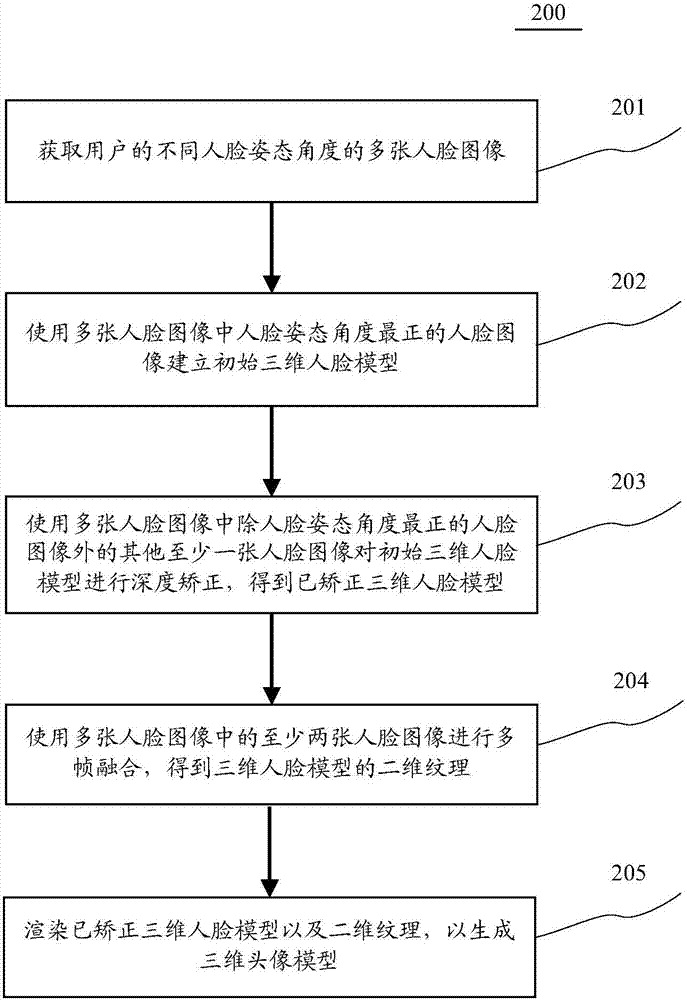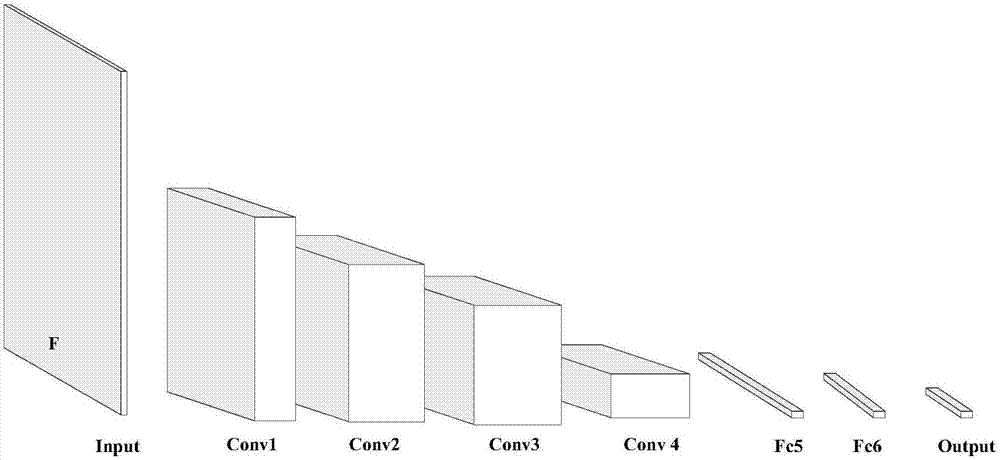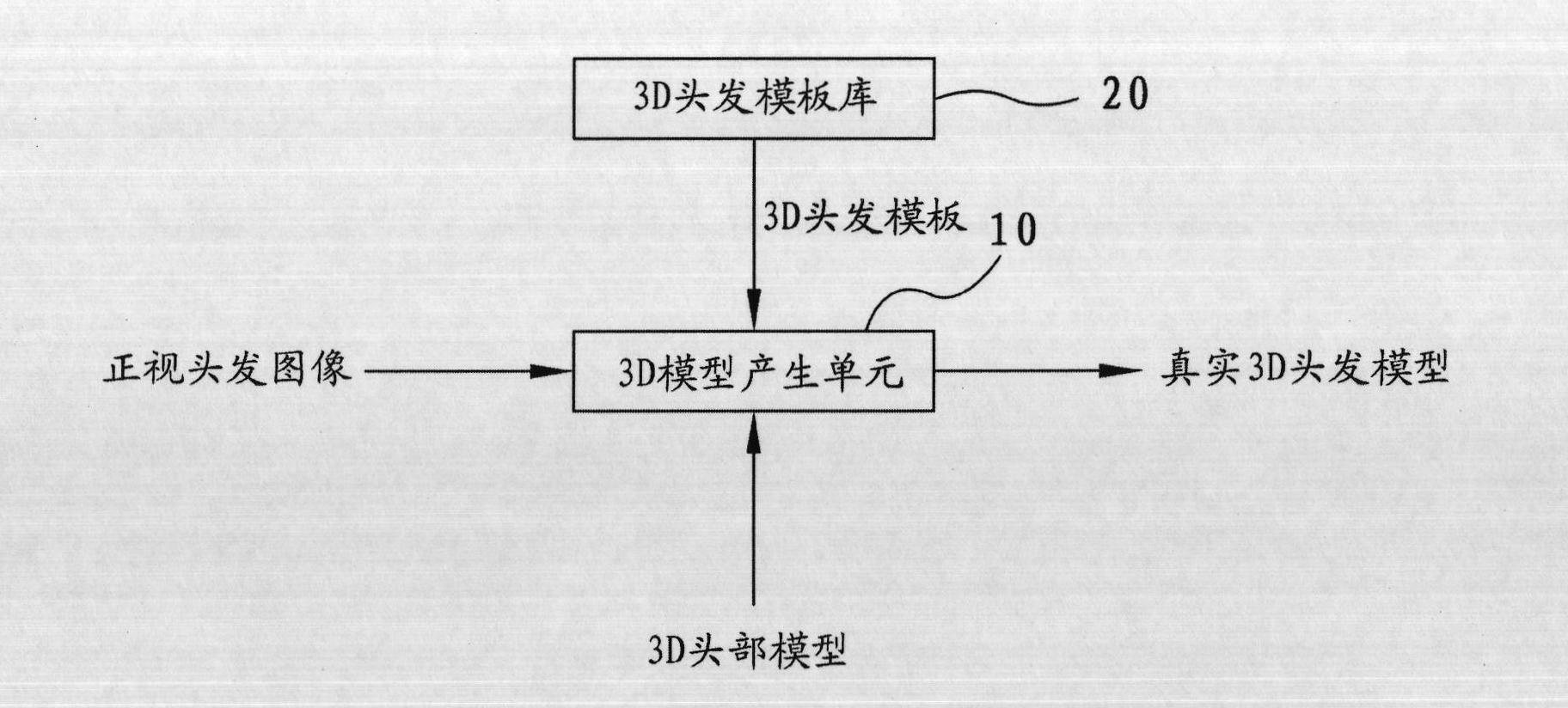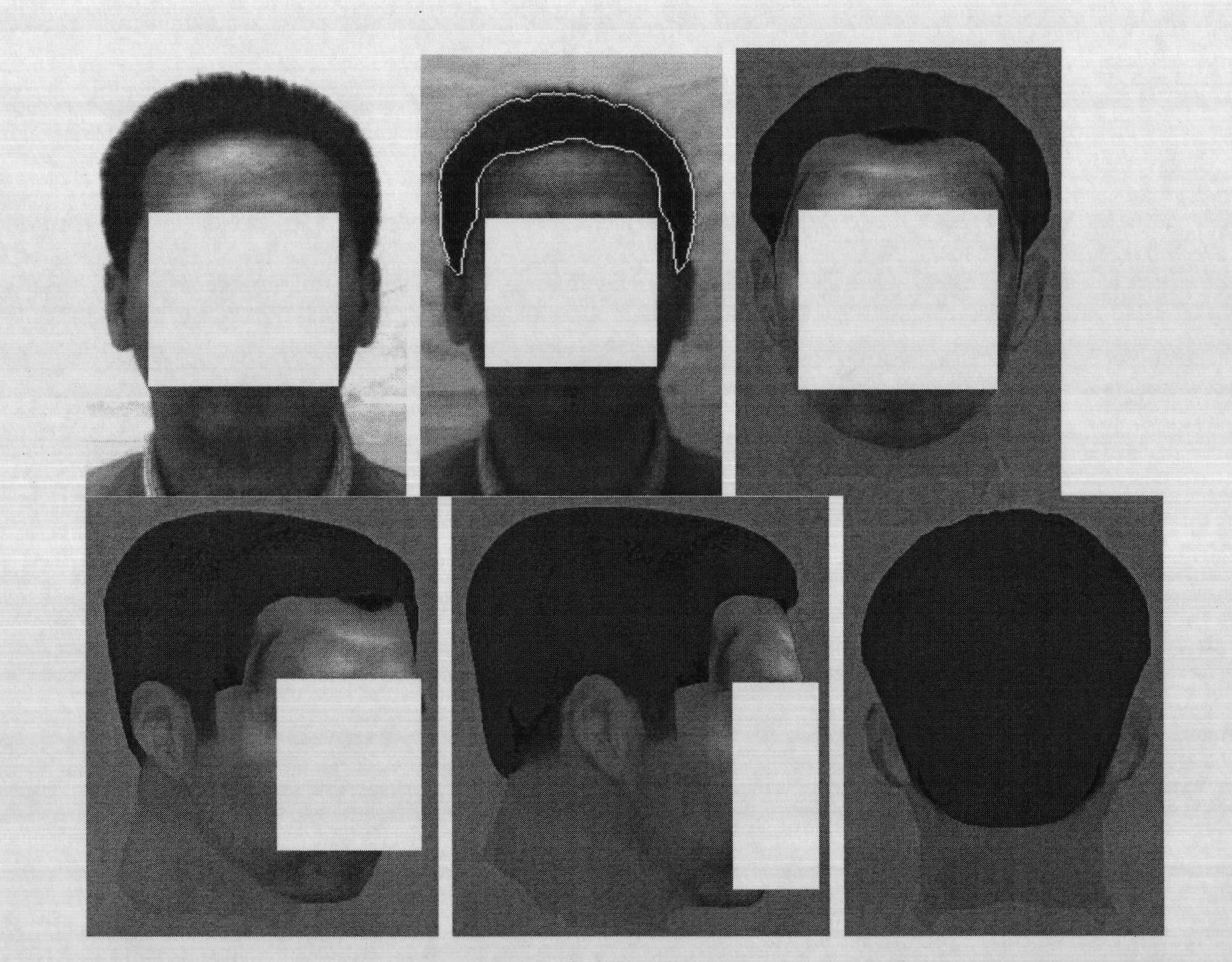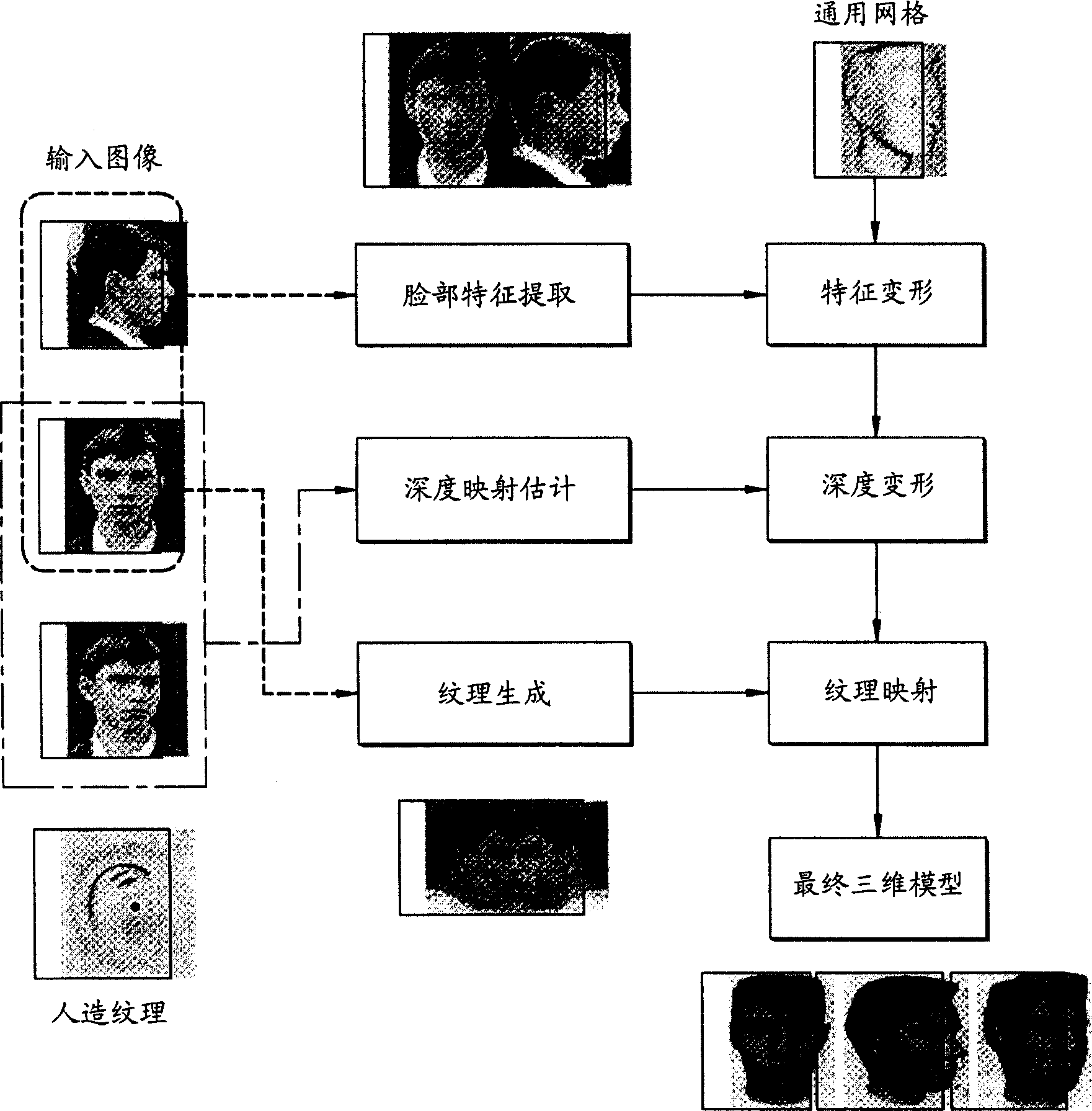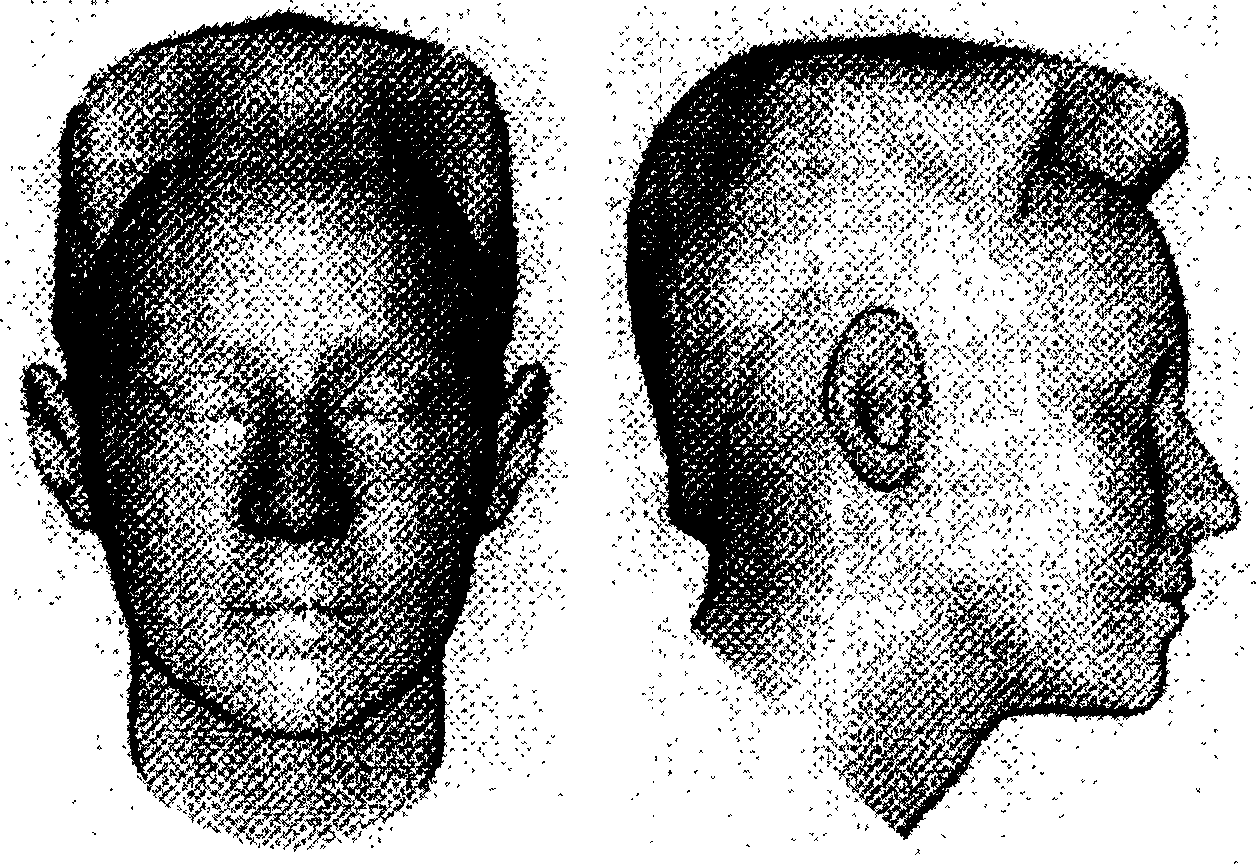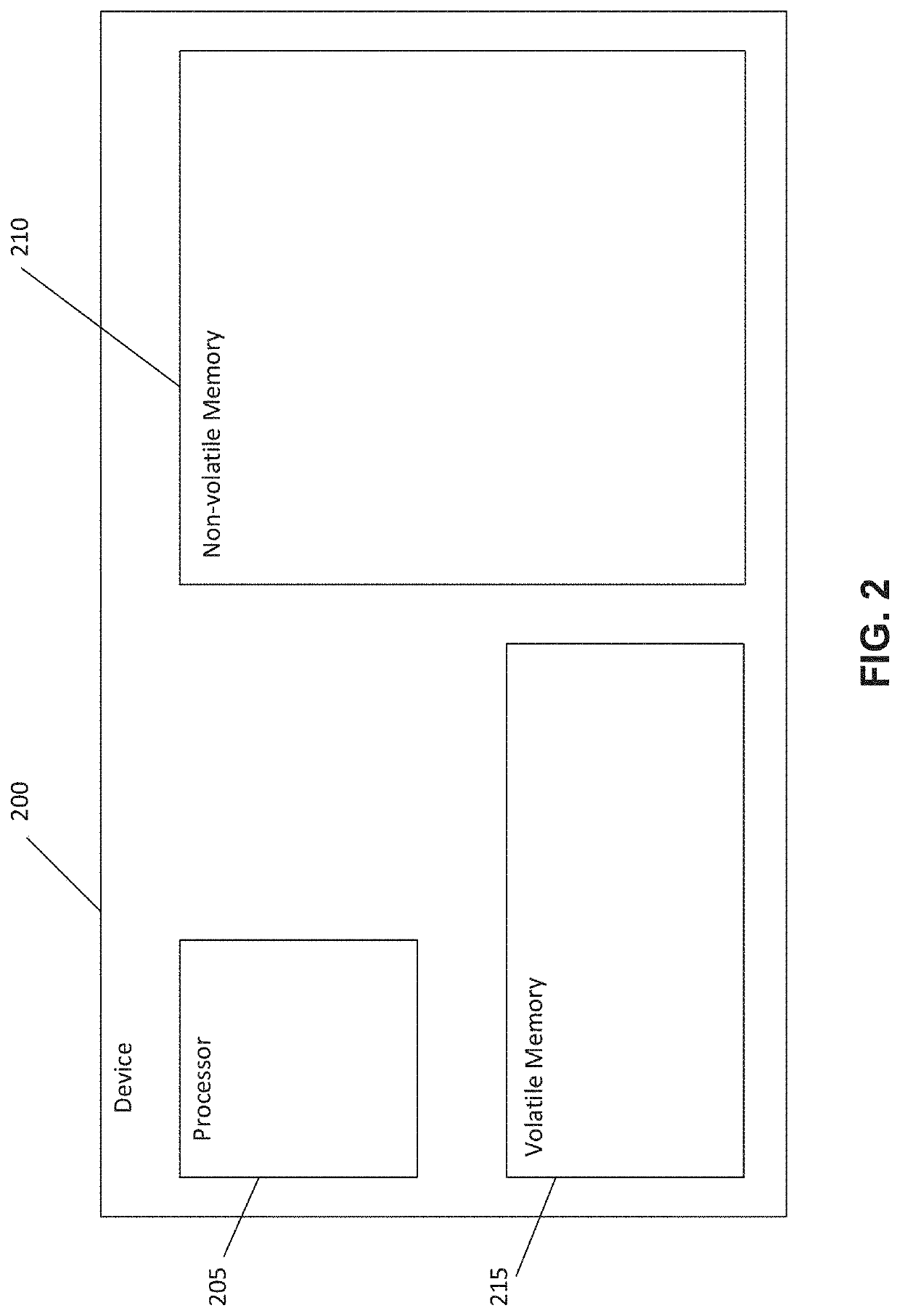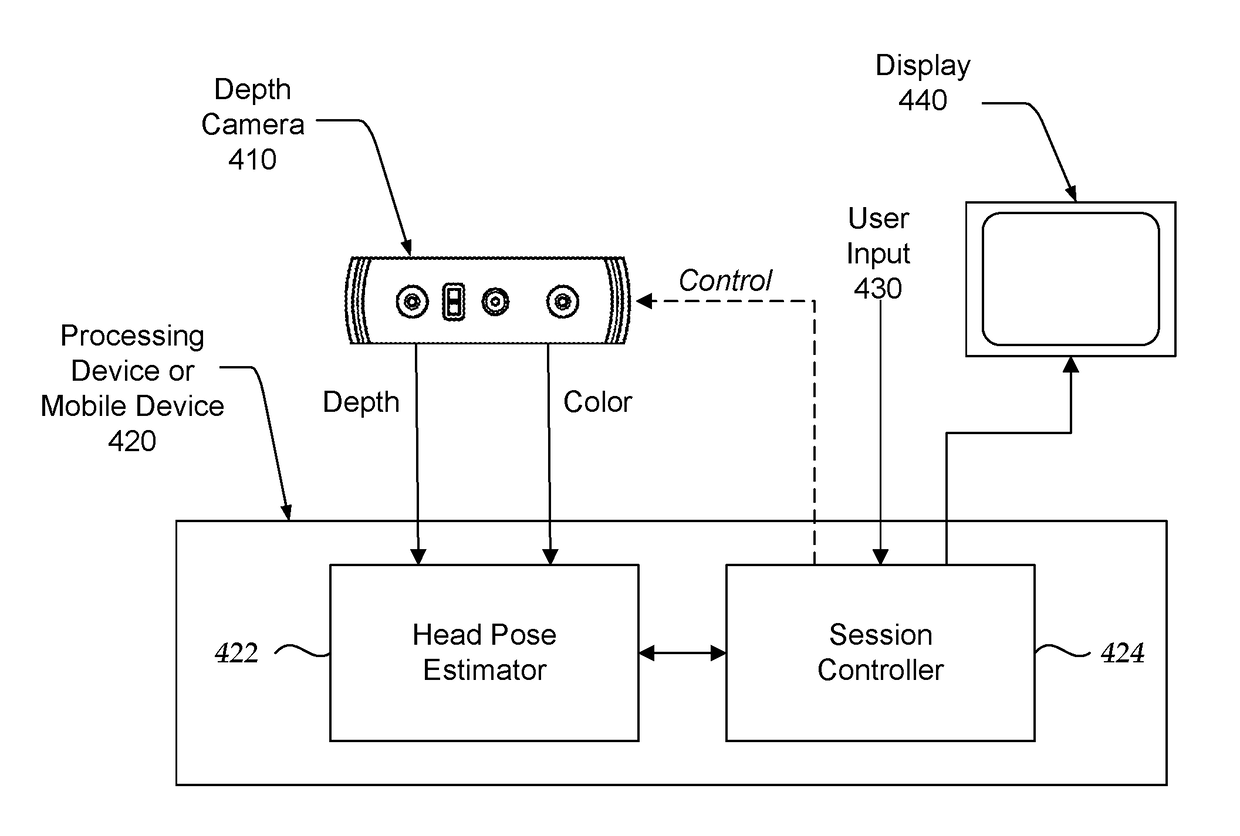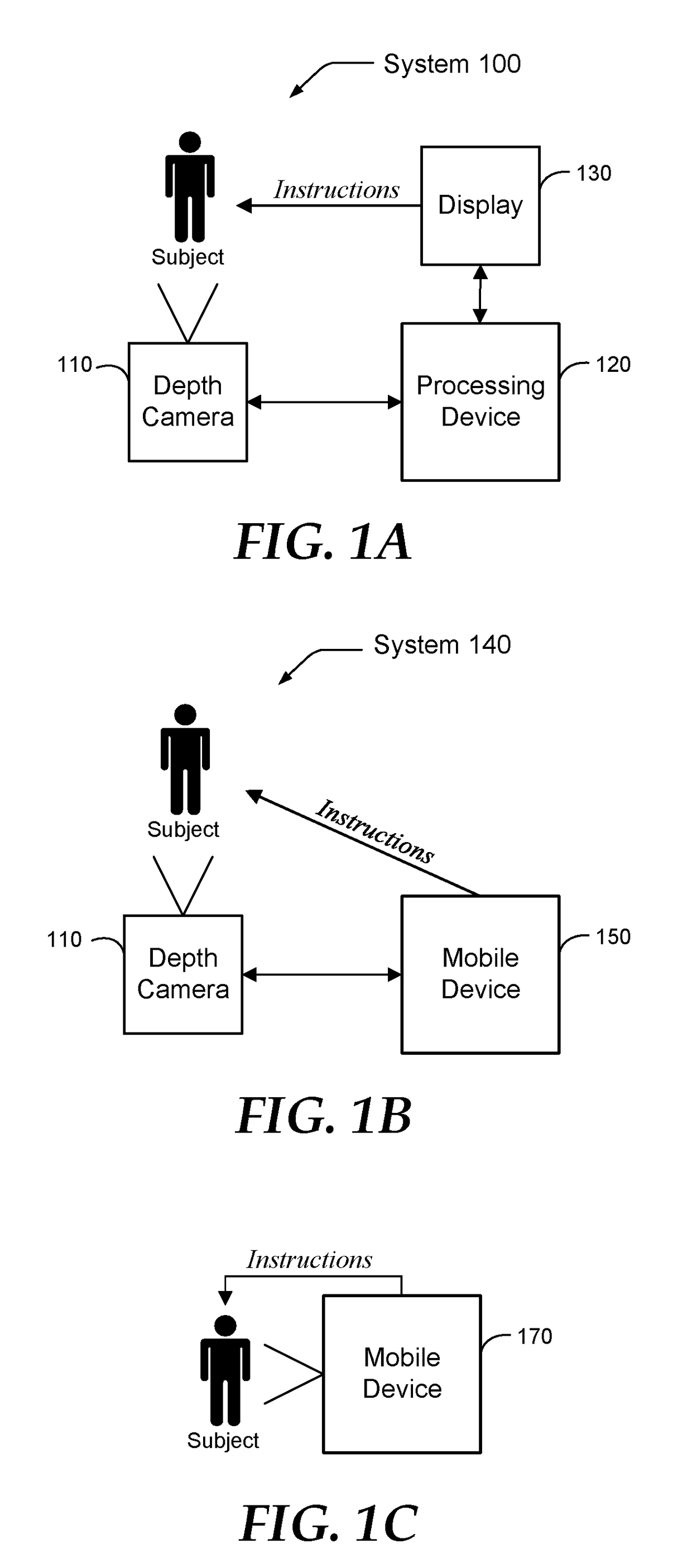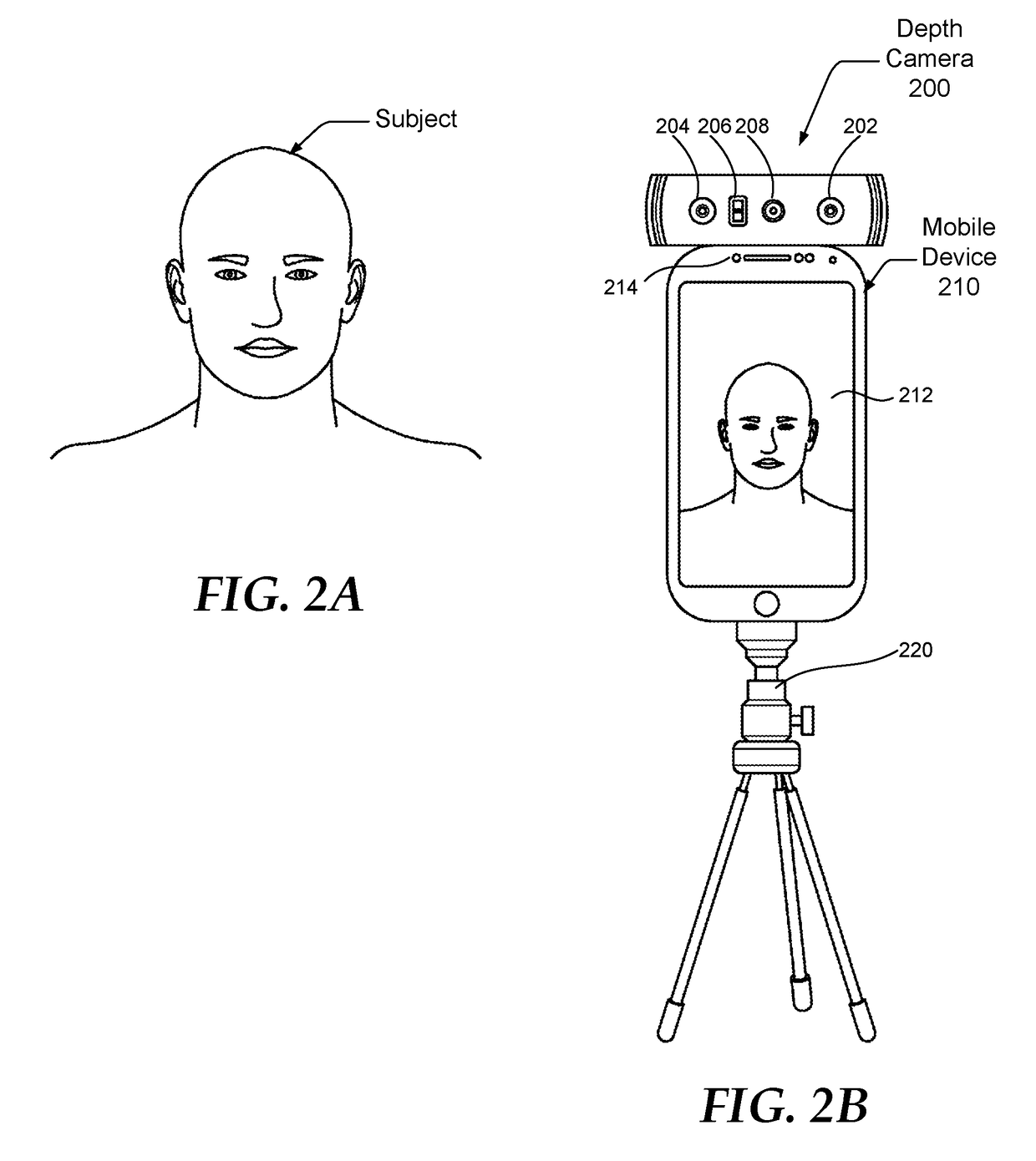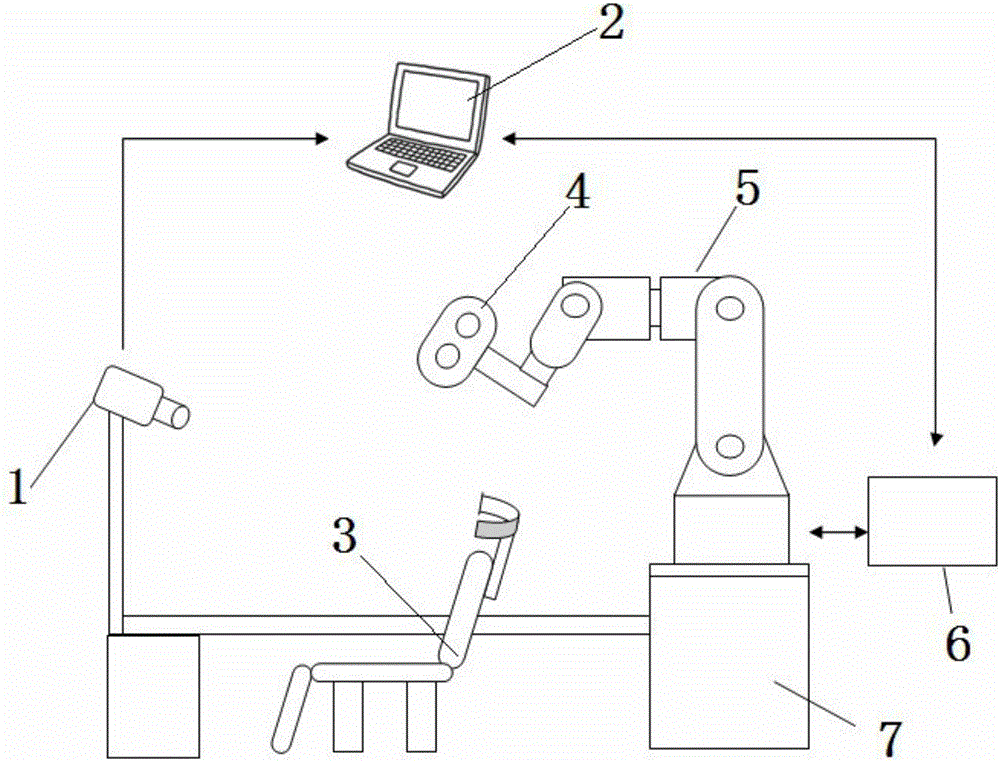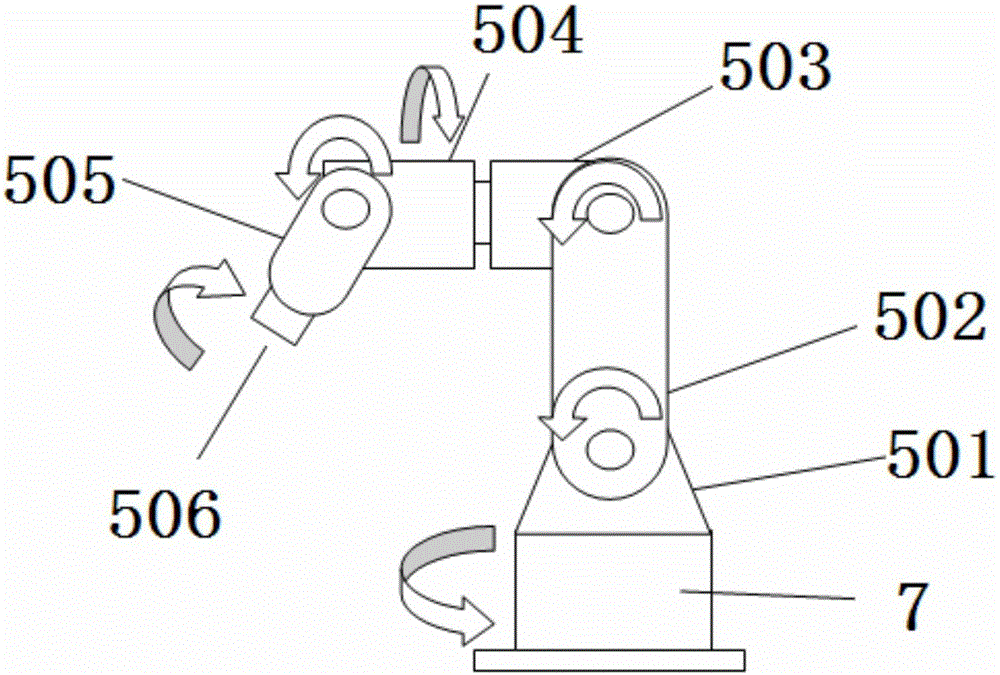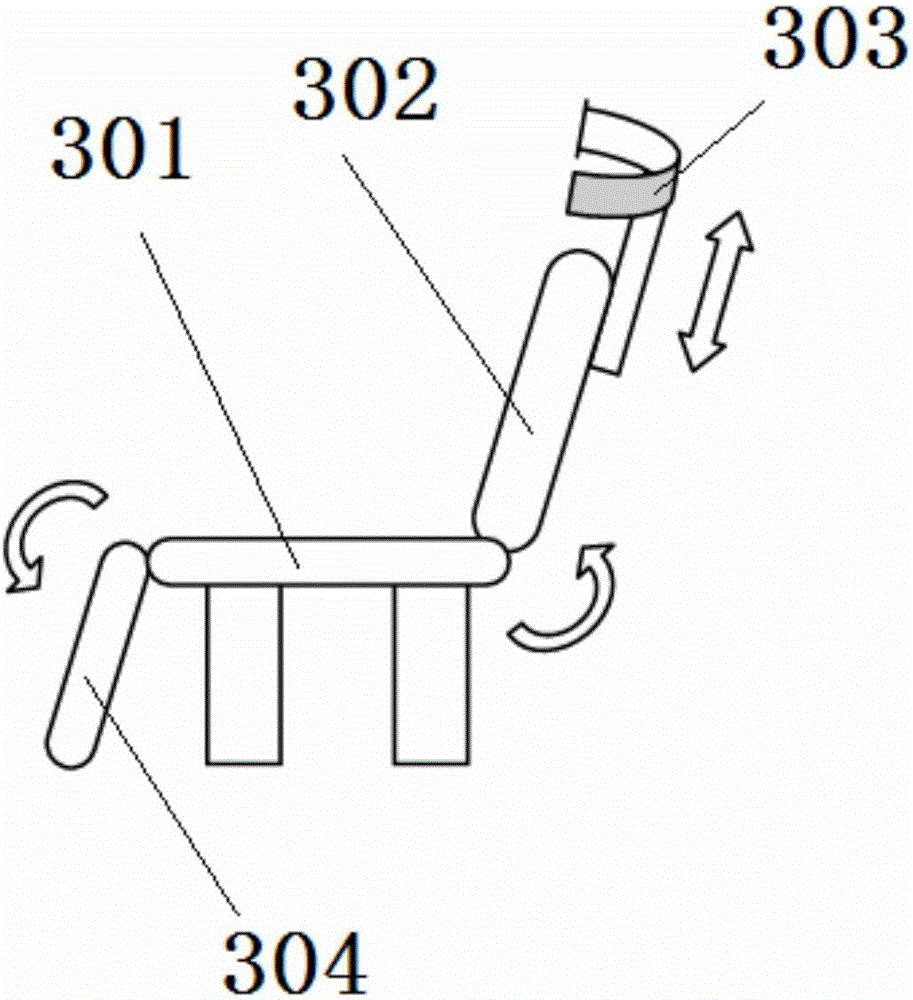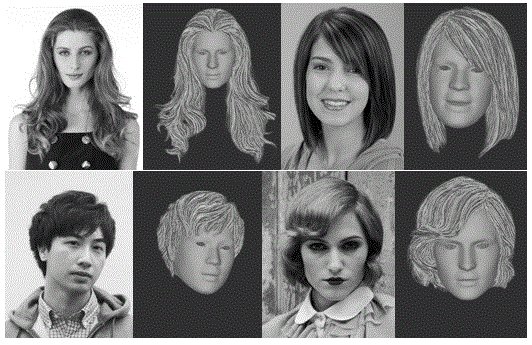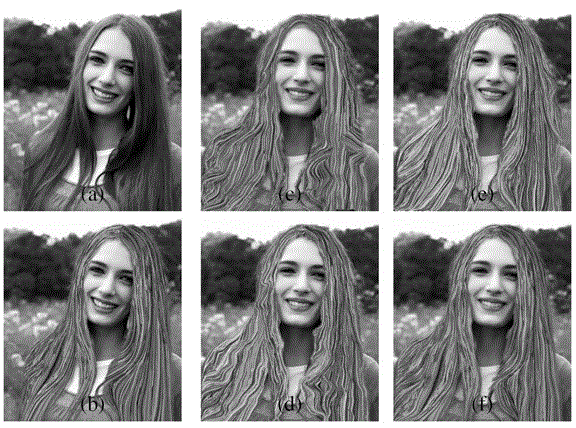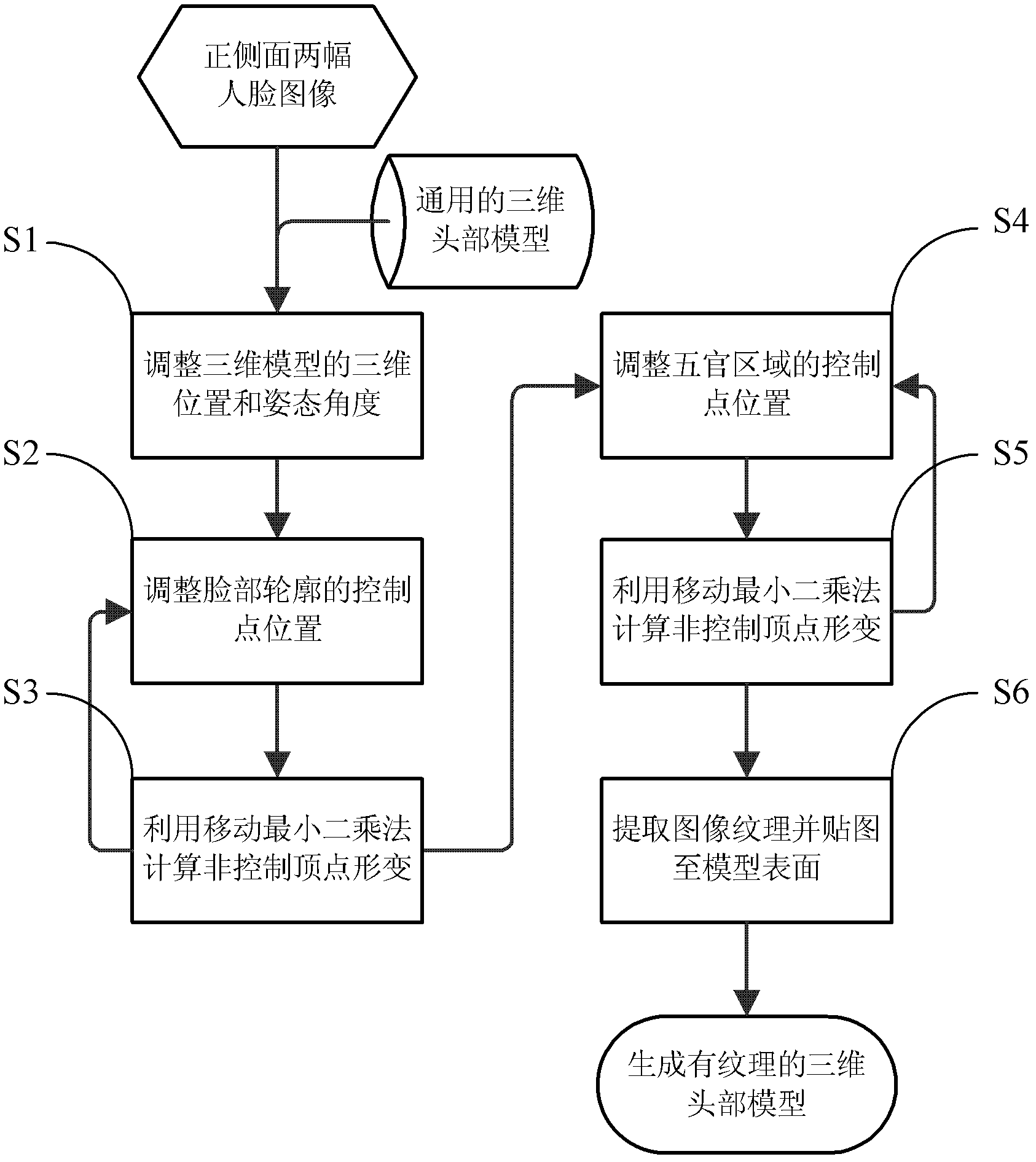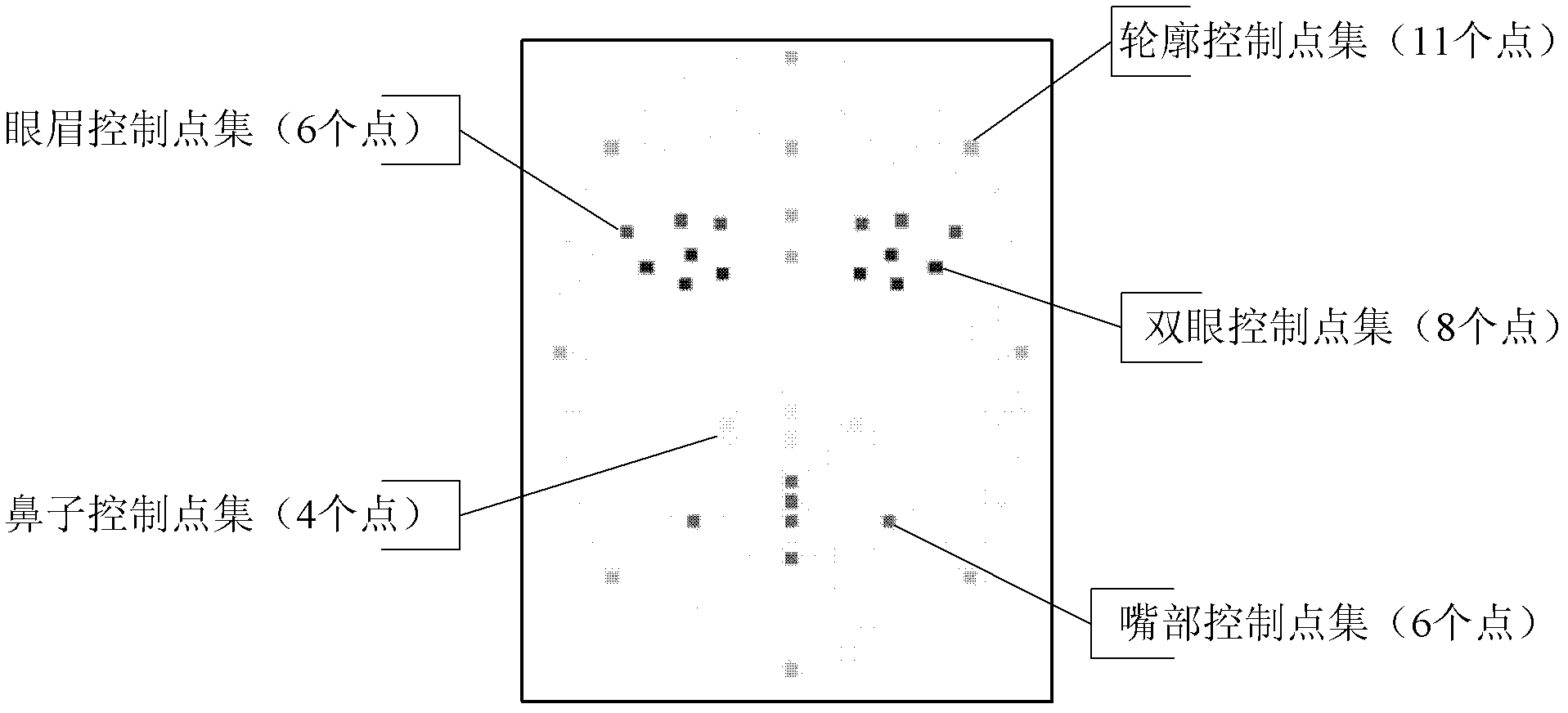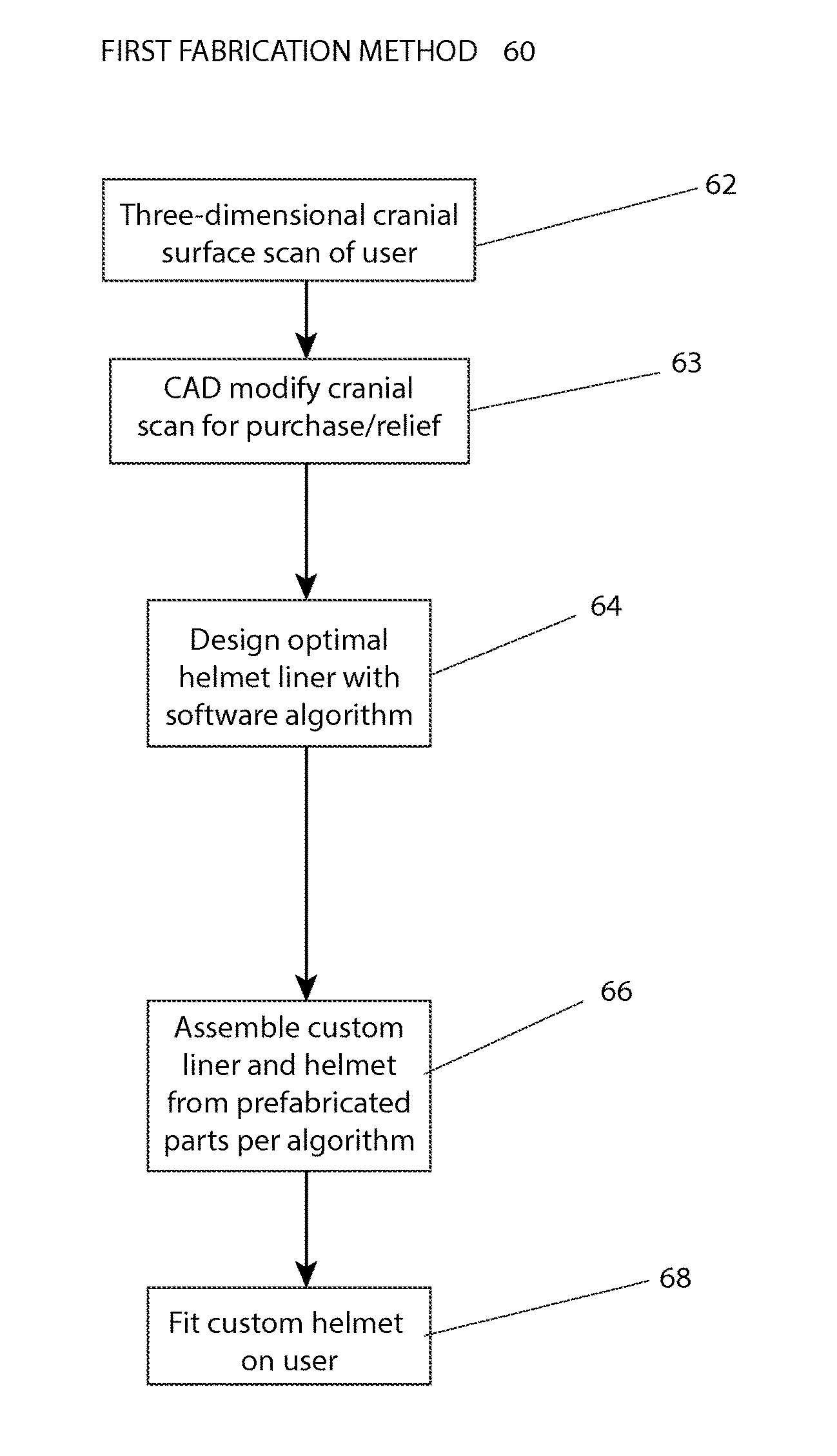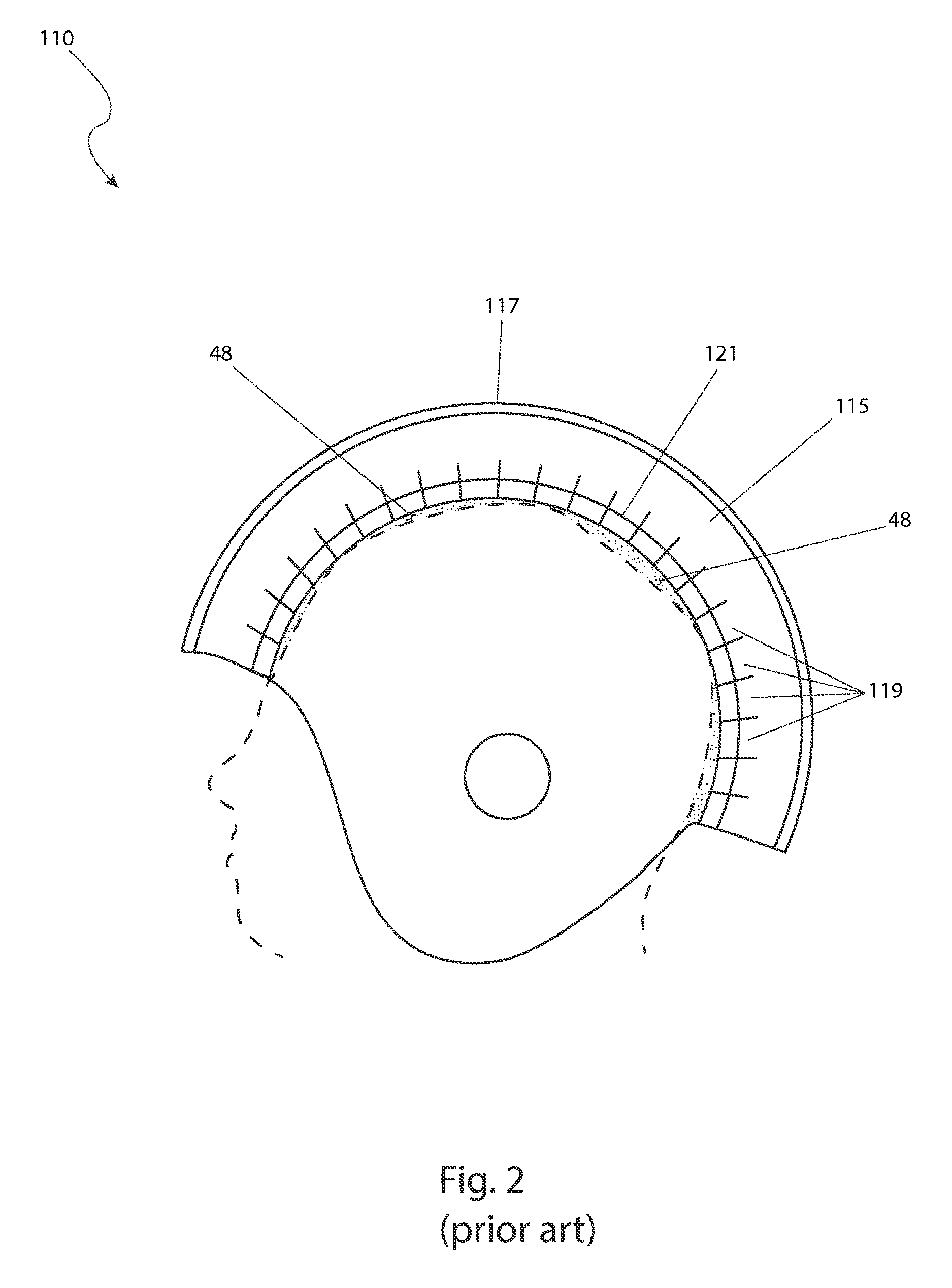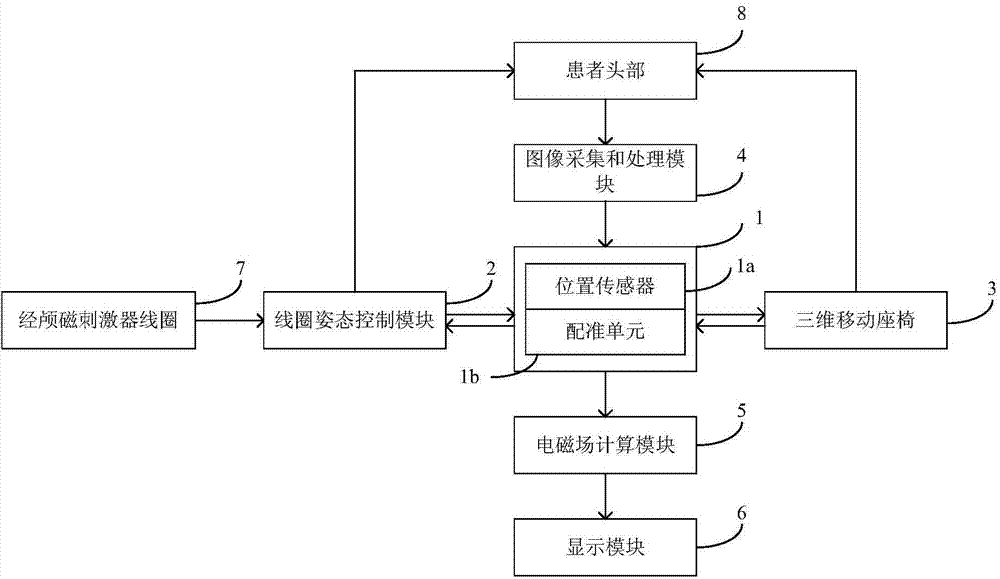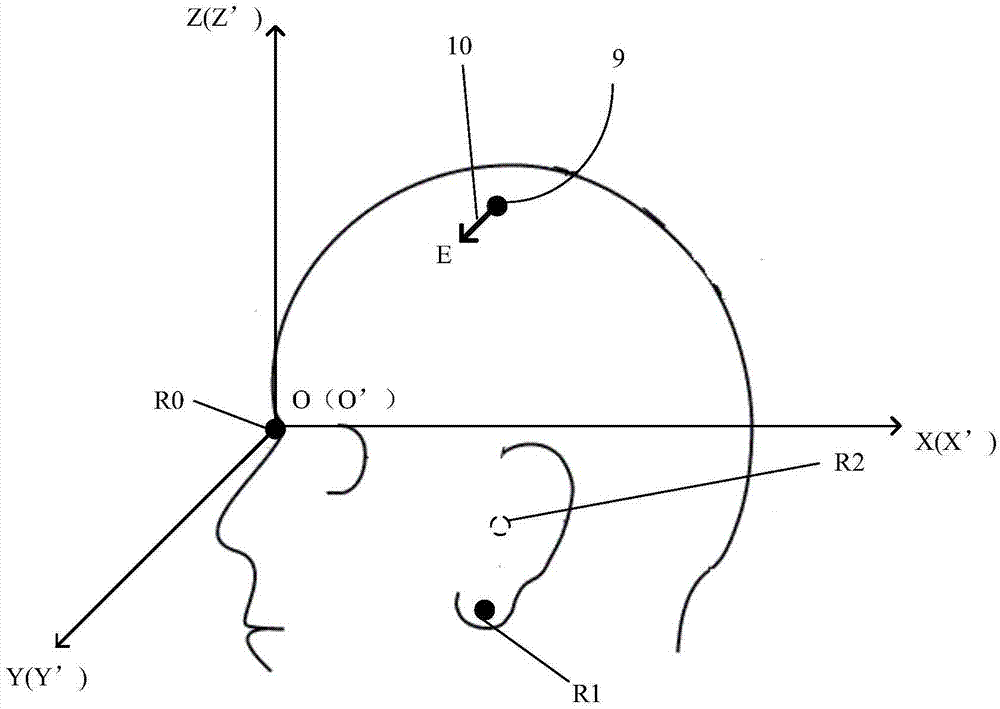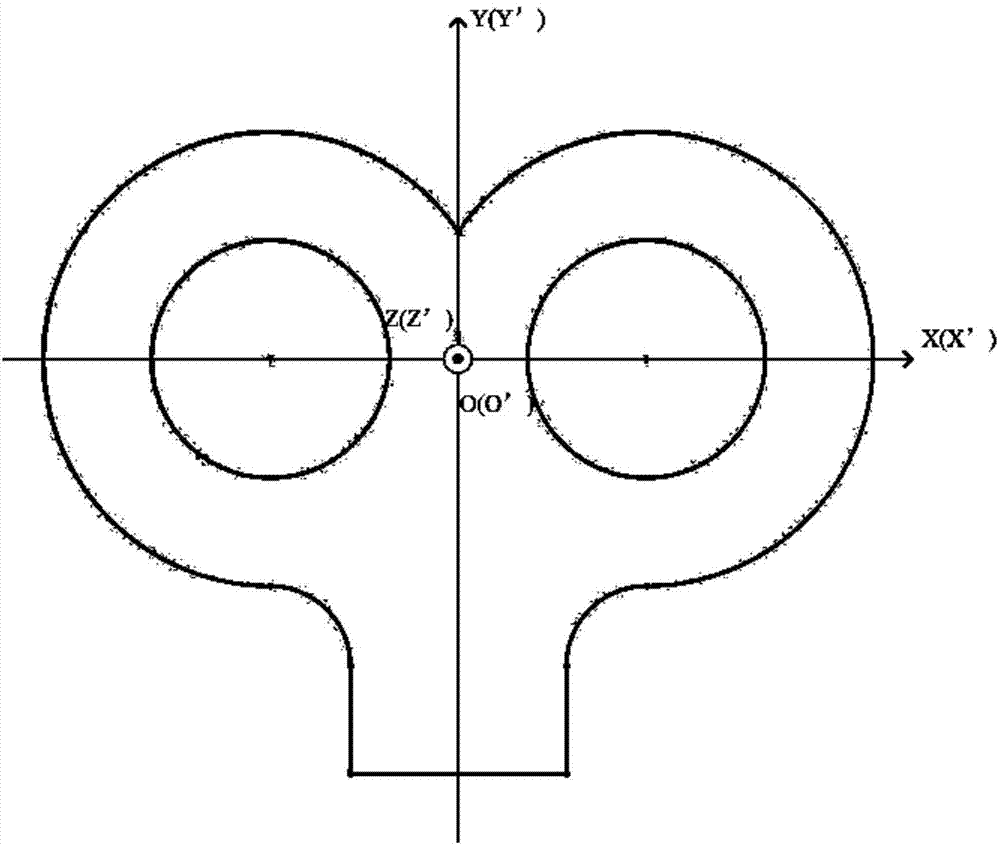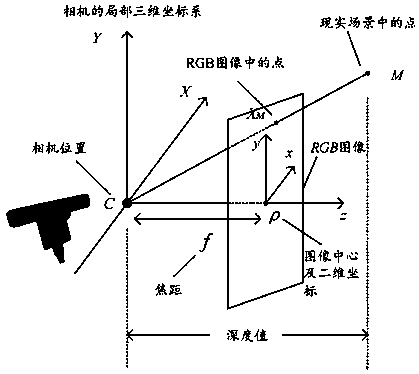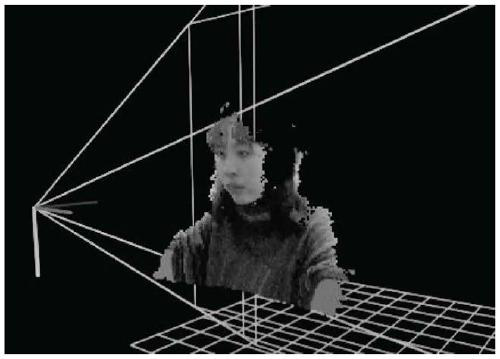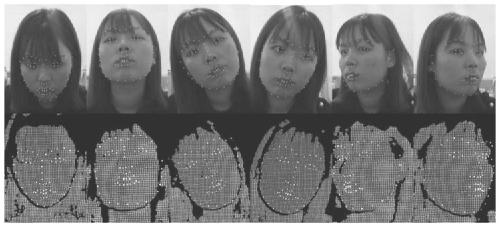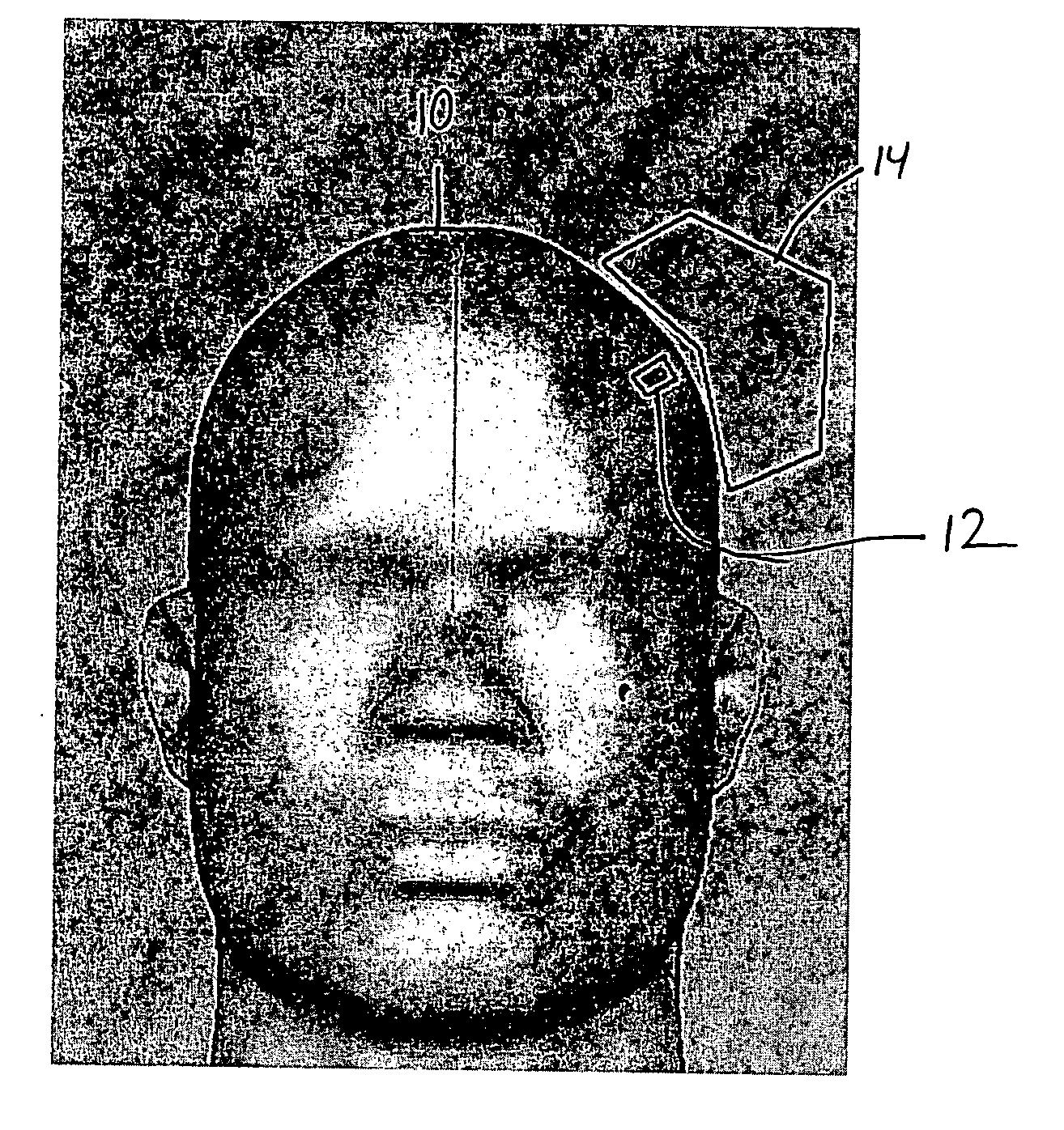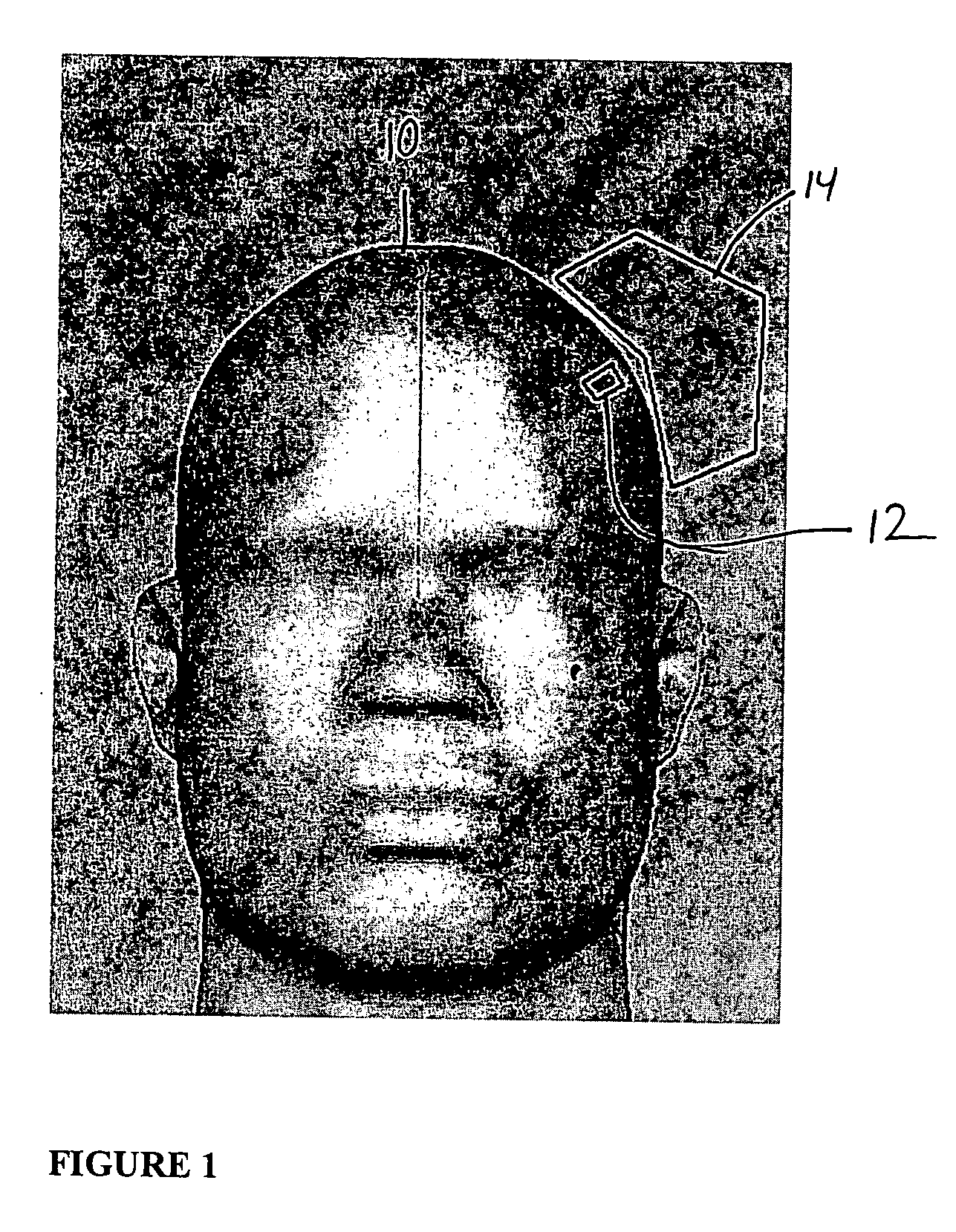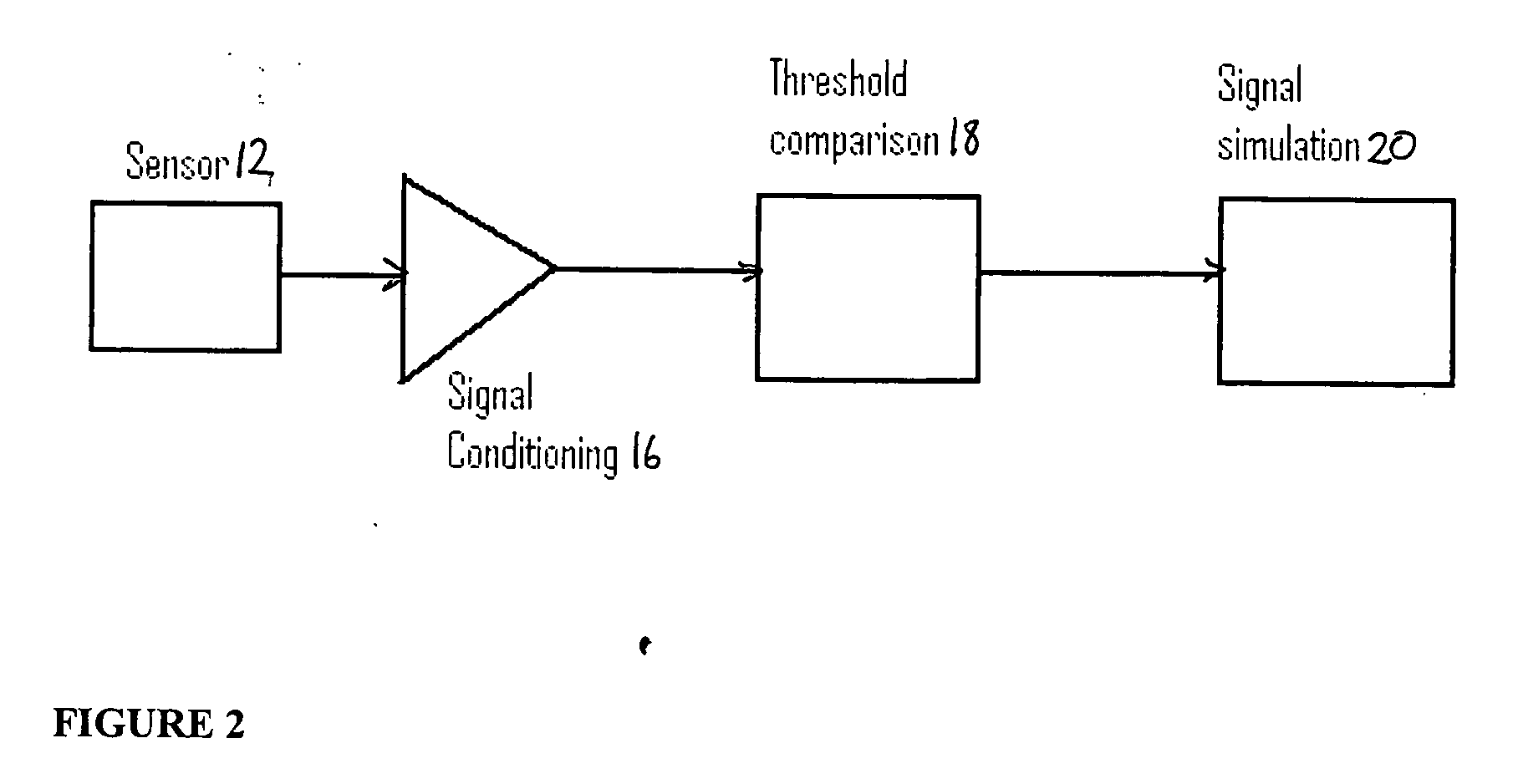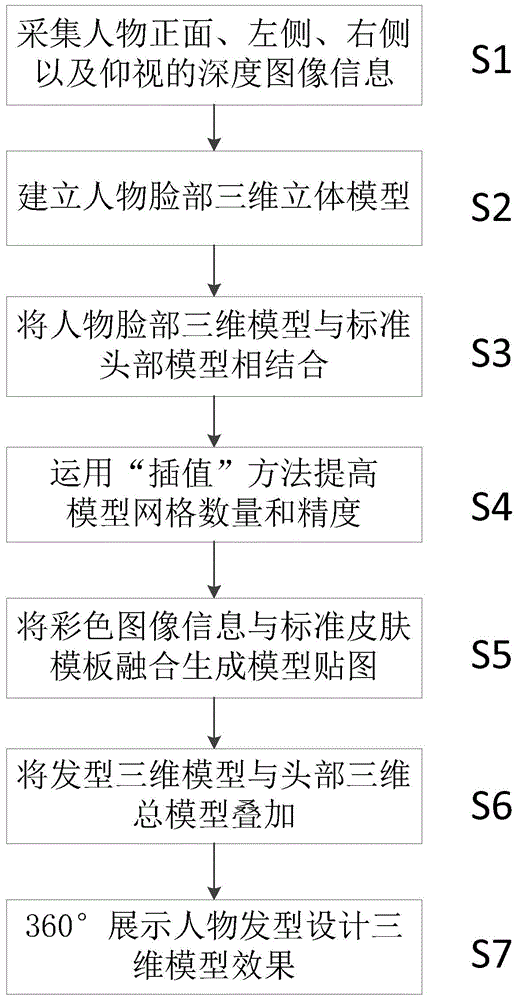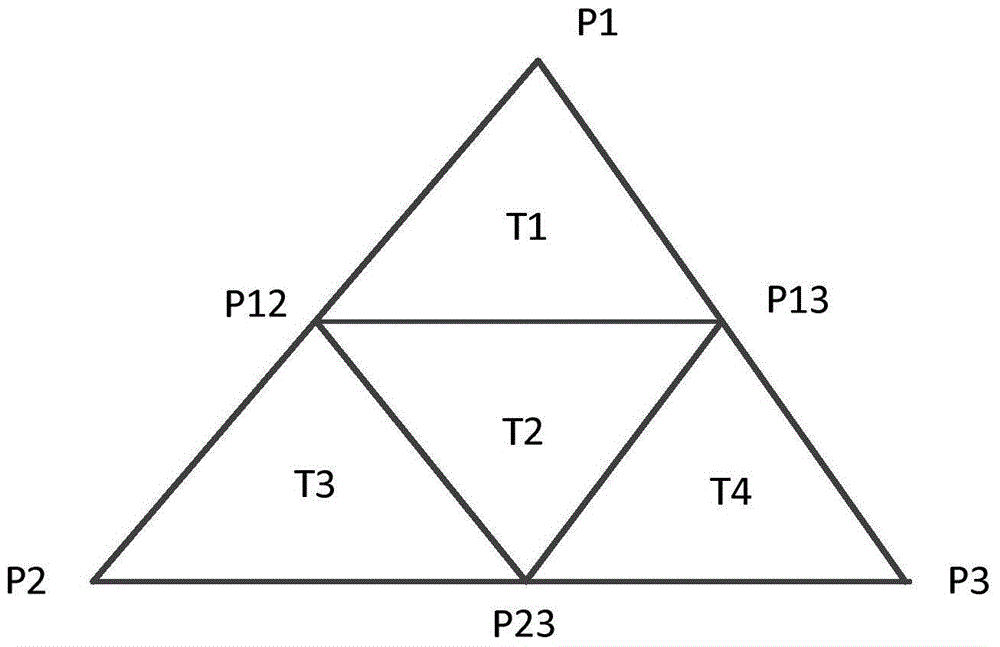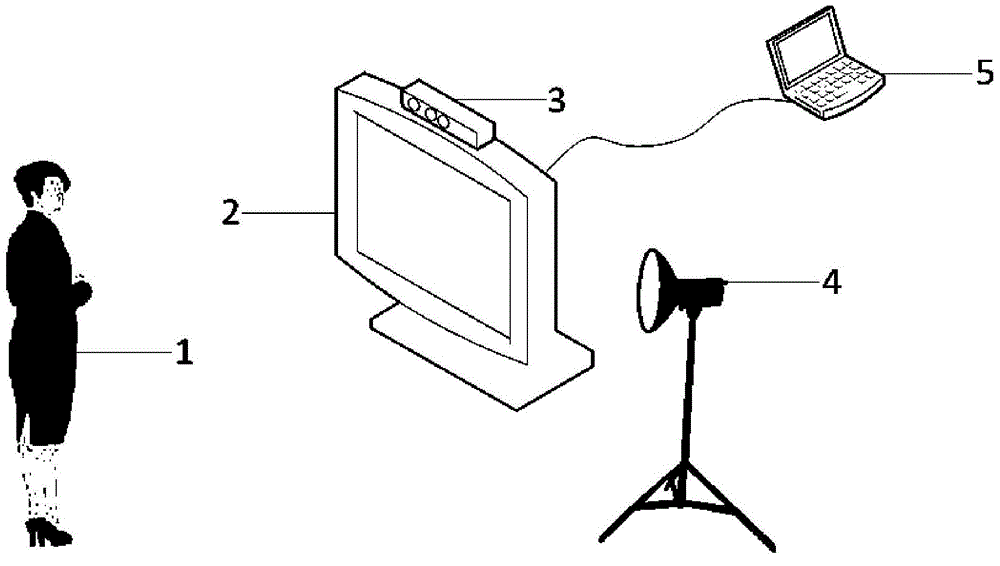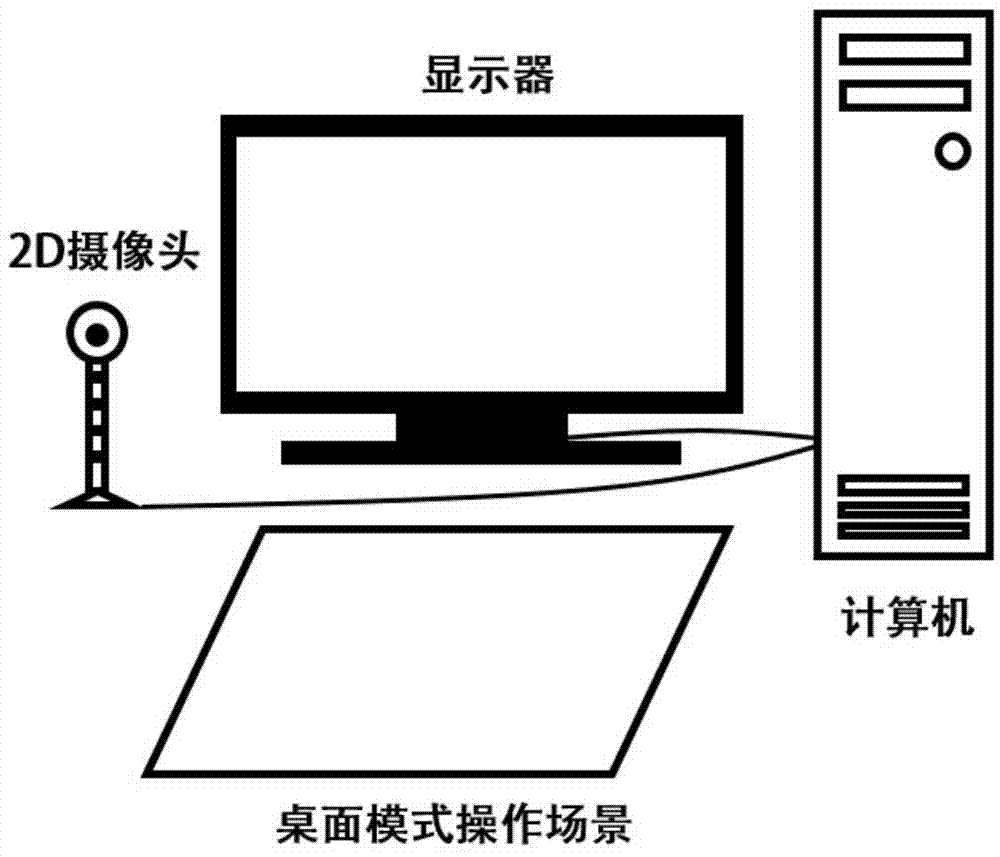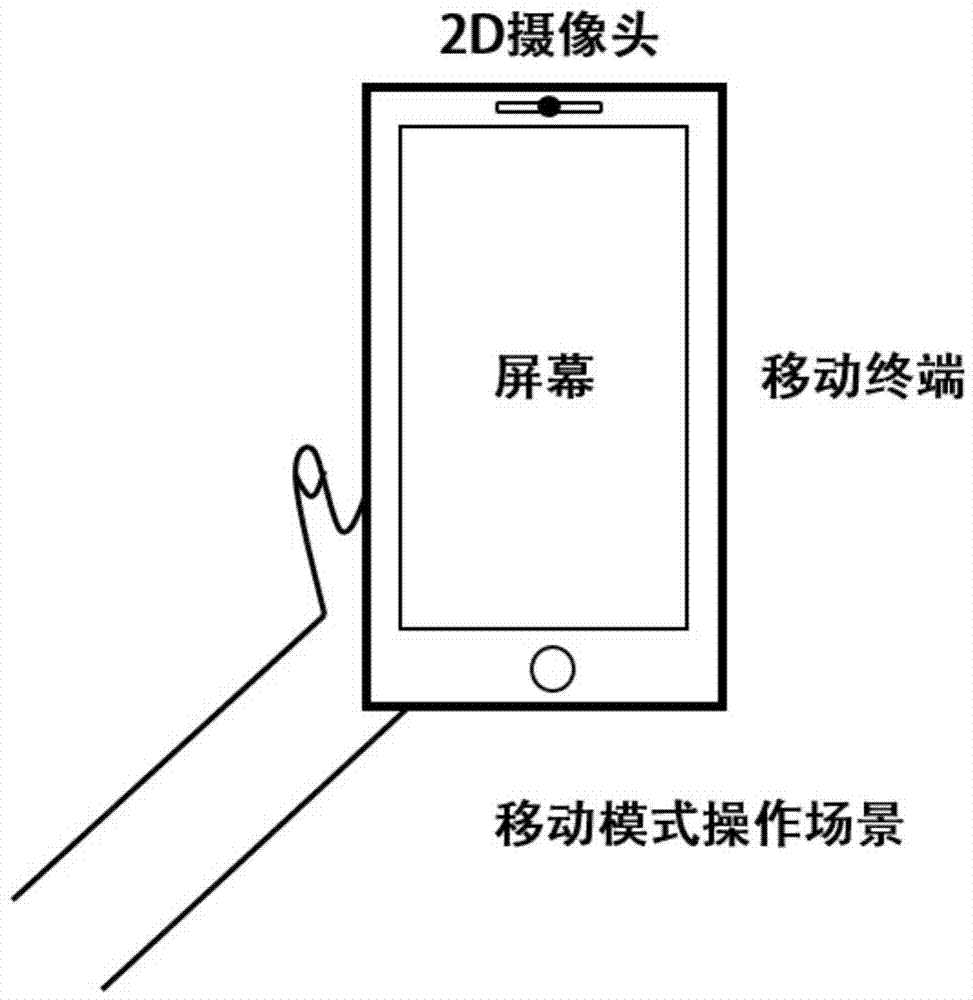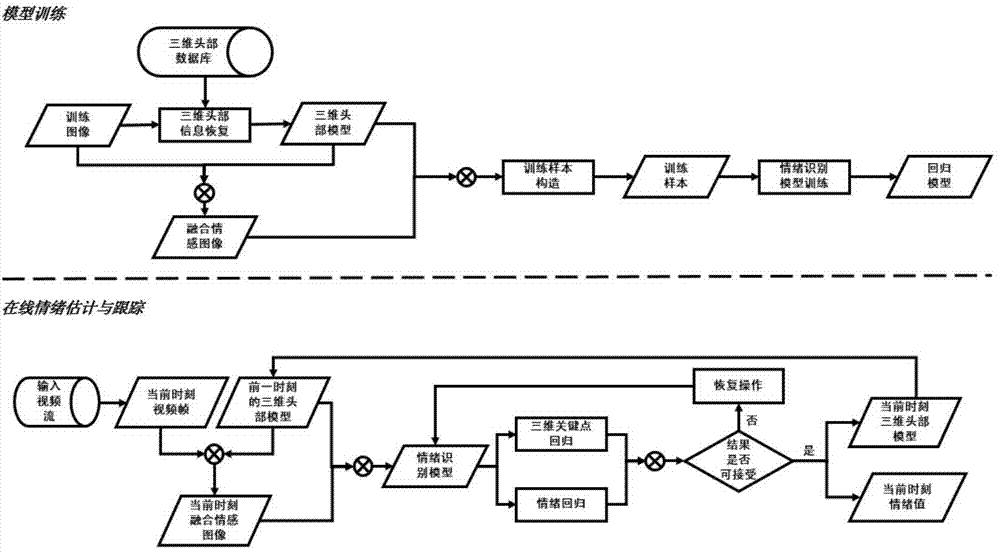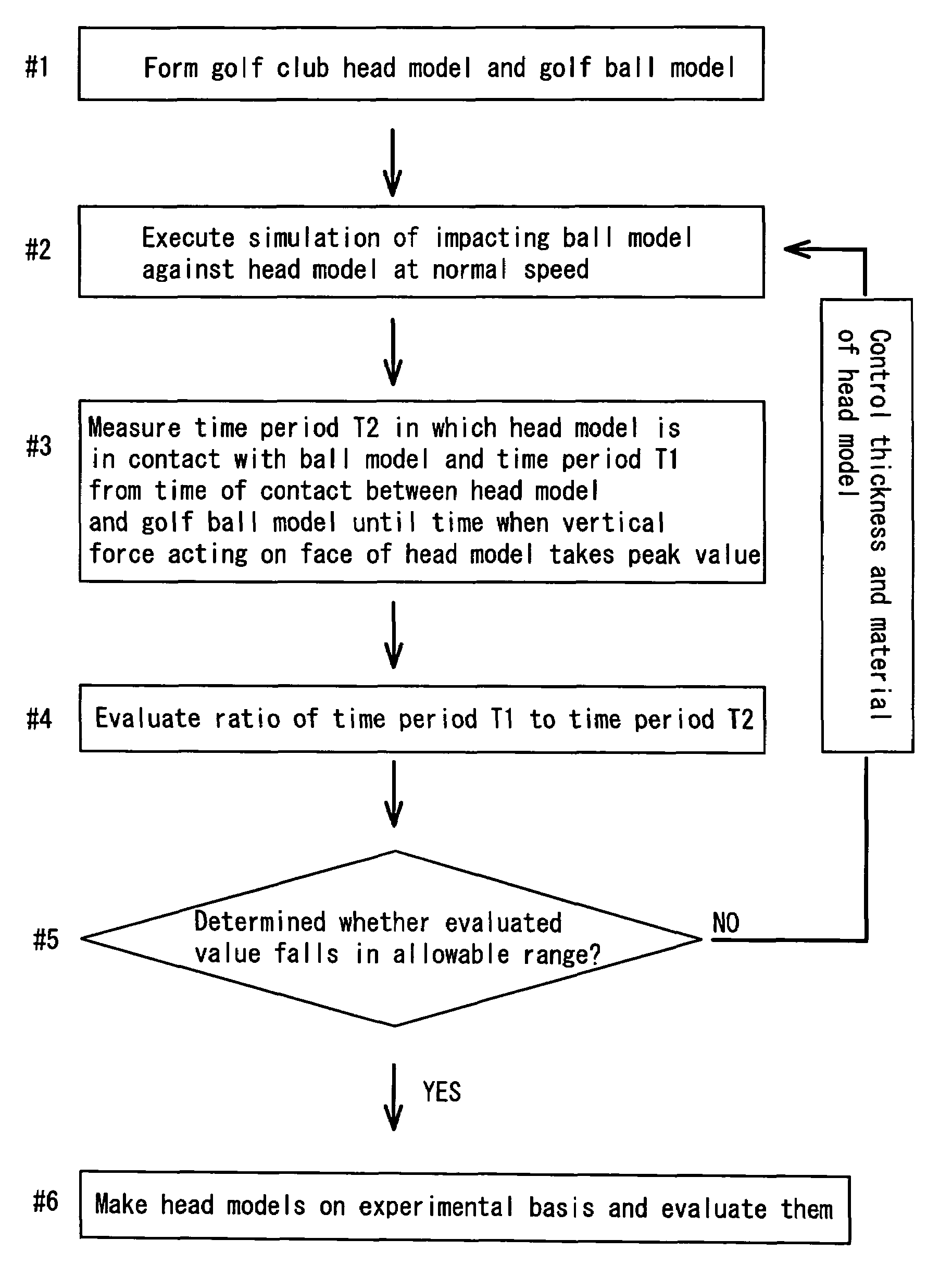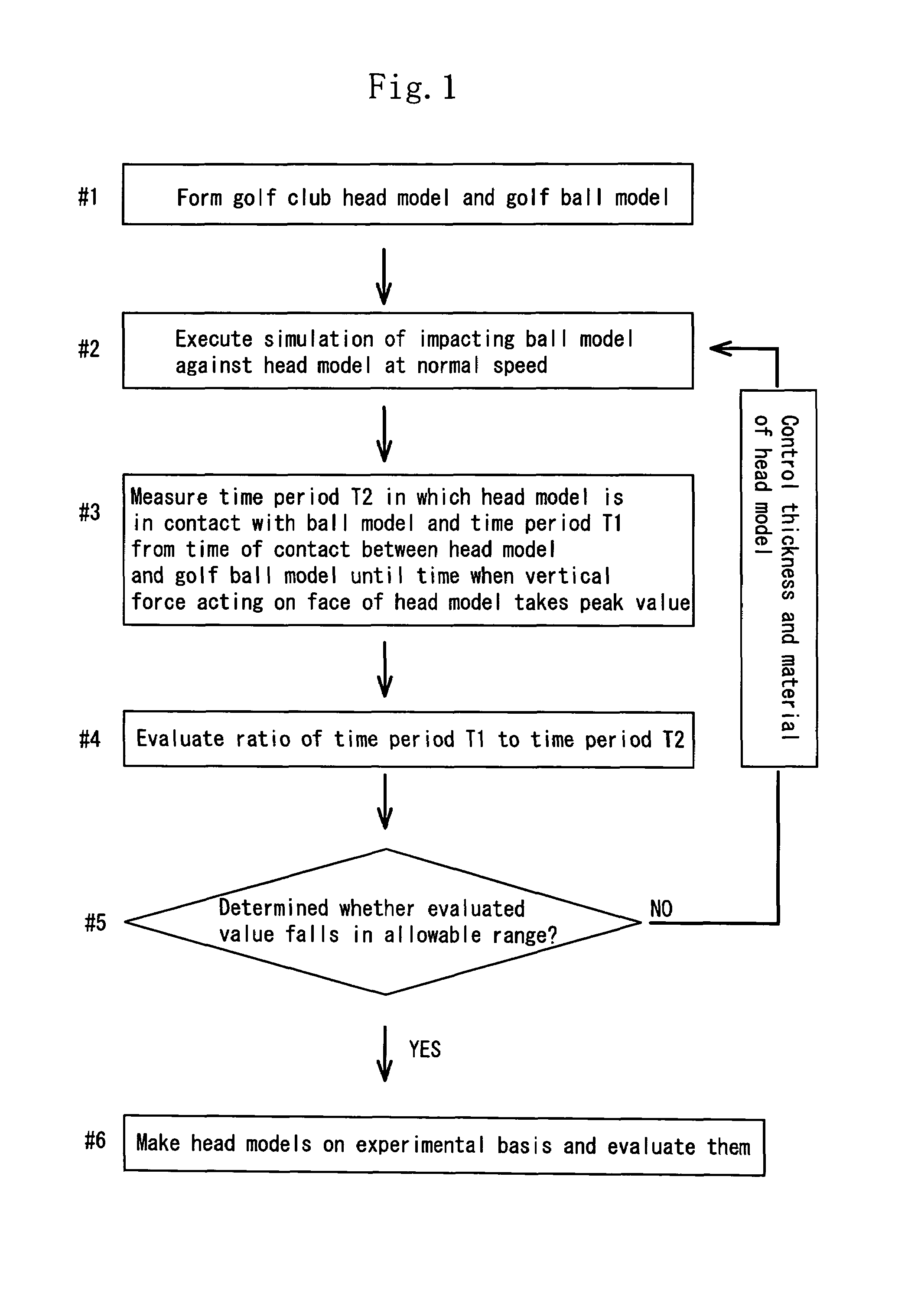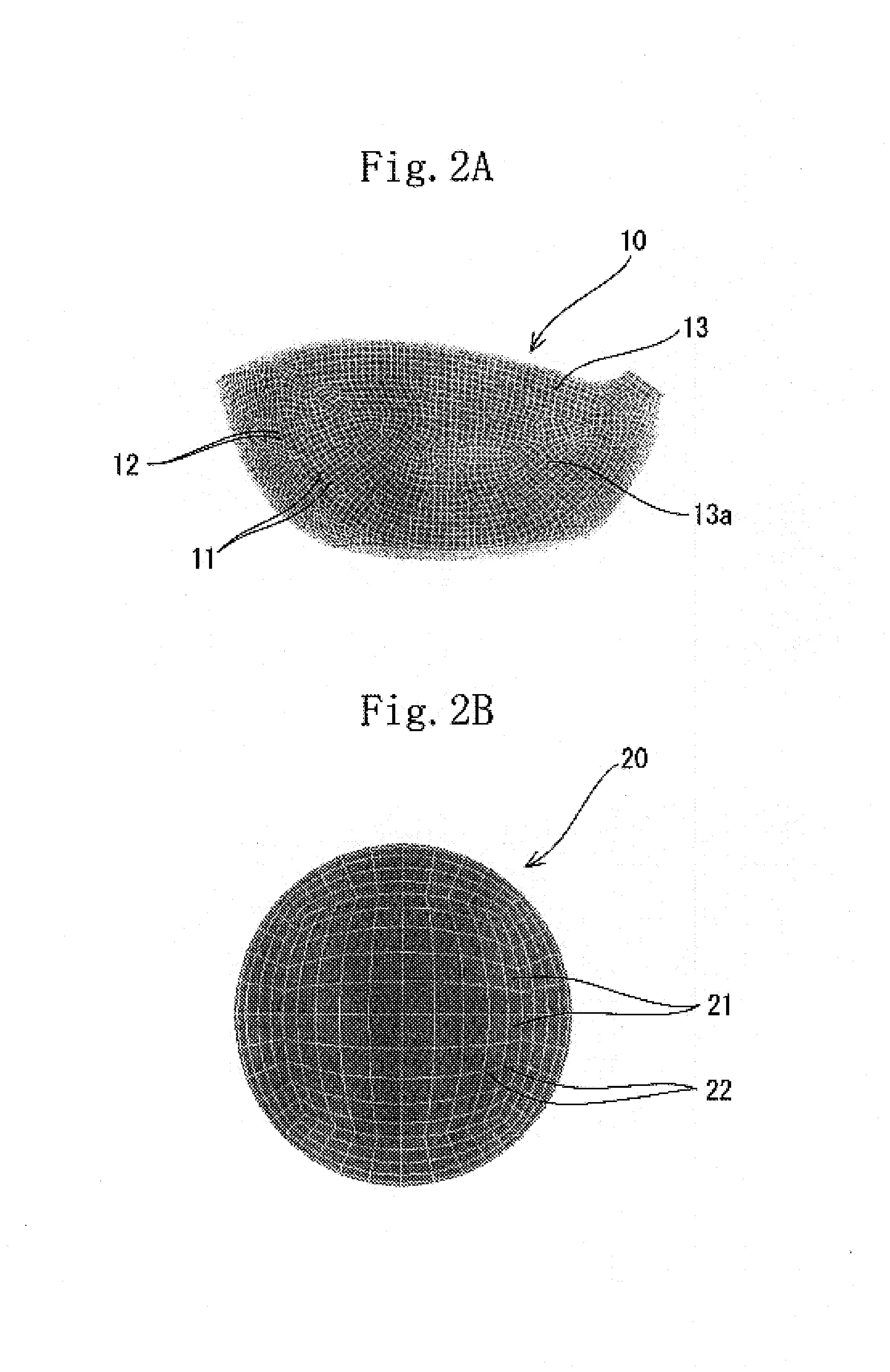Patents
Literature
Hiro is an intelligent assistant for R&D personnel, combined with Patent DNA, to facilitate innovative research.
427 results about "Head model" patented technology
Efficacy Topic
Property
Owner
Technical Advancement
Application Domain
Technology Topic
Technology Field Word
Patent Country/Region
Patent Type
Patent Status
Application Year
Inventor
Method and apparatus for image-based photorealistic 3D face modeling
An apparatus and method for image-based 3D photorealistic head modeling are provided. The method for creating a 3D photorealistic head model includes: detecting frontal and profile features in input frontal and profile images; generating a 3D head model by fitting a 3D genetic model using the detected facial features; generating a realistic texture from the input frontal and profile images; and mapping the texture onto the 3D head model. In the apparatus and method, data obtained using a relatively cheap device, such as a digital camera, can be processed in an automated manner, and satisfactory results can be obtained even from imperfect input data. In other words, facial features can be extracted in an automated manner, and a robust “human-quality” face analysis algorithm is used.
Owner:SAMSUNG ELECTRONICS CO LTD
Systems and methods for interactive advertising using personalized head models
InactiveUS20090132371A1Rapidly and easily generateFacilitates compositing a 2D or 3D representationAnimationMarketingPersonalizationHuman–computer interaction
Systems and methods are disclosed for creating dynamic interactive advertisements using individualized three-dimensional (3D) human models. The interactive advertisements may be automatically generated based on a user profile associated with the viewer or may be created from an advertisement template by the viewer. Once generated, the viewer can alter the content of the interactive advertisement, make comments, rate the advertisement, and / or share it with others. In certain examples, one or more individualized 3D human head models are automatically selected for inclusion in the interactive advertisement based on the profile or preferences of the user without requiring a user selection of the 3D head model.
Owner:IMAGE METRICS INC
Method and apparatus for image-based photorealistic 3D face modeling
An apparatus and method for image-based 3D photorealistic head modeling are provided. The method for creating a 3D photorealistic head model includes: detecting frontal and profile features in input frontal and profile images; generating a 3D head model by fitting a 3D genetic model using the detected facial features; generating a realistic texture from the input frontal and profile images; and mapping the texture onto the 3D head model. In the apparatus and method, data obtained using a relatively cheap device, such as a digital camera, can be processed in an automated manner, and satisfactory results can be obtained even from imperfect input data. In other words, facial features can be extracted in an automated manner, and a robust “human-quality” face analysis algorithm is used.
Owner:SAMSUNG ELECTRONICS CO LTD
Method of designing golf club and golf club head
InactiveUS20070015601A1Reduce expensesSimple designDesign optimisation/simulationSpecial data processing applicationsFinite element methodGolf Ball
A method for designing a golf club head by using a computer. A golf club head model in which the rear surface of a face part is provided with reinforcing ribs and a golf ball model to be analyzed by using a finite element method (FEM) are prepared. Conditions including the positions of the reinforcing ribs and the configurations thereof including the sectional areas and heights are adjusted to set the maximum value of the Mises stresses generated by the collision between the golf ball model and the golf club head model at any off-center positions of said front surface of said face part thereof to less than 1.3 times the maximum value of the Mises stress generated by the collision between the golf ball model and the golf club head model at the center of said front surface of said face part thereof.
Owner:DUNLOP SPORTS CO LTD
Systems and Methods for Generating Computer Ready Animation Models of a Human Head from Captured Data Images
System and methods for computer animations of 3D models of heads generated from images of faces is disclosed. A 2D captured image that includes an image of a face can be received and used to generate a static 3D model of a head. A rig can be fit to the static 3D model to generate an animation-ready 3D generative model. Sets of rigs can be parameters that each map to particular sounds or particular facial movement observed in a video. These mappings can be used to generate a playlists of sets of rig parameters based upon received audio or video content. The playlist may be played in synchronization with an audio rendition of the audio content. Methods can receive a captured image, identify taxonomy attributes from the captured image, select a template model for the captured image, and perform a shape solve for the selected template model based on the identified taxonomy attributes.
Owner:LOOMAI INC
Three-dimensional head model reconstruction method
ActiveCN102663820ARebuild the realStrong sense of reality3D modellingComputation complexityReconstruction method
The invention discloses a three-dimensional head model reconstruction method. The method comprises the following steps of: S1: inputting a front image and a side image of a human face; S2: extracting feature points of face and hair regions in the image; S3: generating a three-dimensional head model according to the deformation of the facial feature points; S4: generating seamless overall head textures according to the image; S5: mapping all textures to the deformed three-dimensional head model; S6: fitting the hair region by using a coons surface according to the feature points of the hair region; and S7: performing coons surface deformation and texture mapping. The method is simple and practical, has low computation complexity and can actually reconstruct the three-dimensional head model on the premise of high precision.
Owner:TSINGHUA UNIV
Method for objectively and quantifiably evaluating noise fret degree in vehicle based on auditory model
InactiveCN101672690AImprove performanceOvercoming complexityVibration measurement in fluidPsychotechnic devicesHuman bodyProcess mechanism
The invention relates to a method for objectively and quantifiably evaluating noise fret degree in a vehicle based on an auditory model, in particular to an evaluation method of psychoacoustics and vehicle sound quality. The method comprises the following steps: designing a dummy head model; imitating a processing mechanism of the middle ear and the inner ear of a human body to the sound by usingan auditory peripheral calculation model; collecting vehicle noise signals under the working conditions of uniform, accelerated and idle speed; pre-treating the noise sample and processing the loudness in specification; obtaining a psychoacoustics parameter by using a sound quality calculation model; obtaining subjective evaluation result test data by using a grouped and paired comparison method;calculating and painting a correlated scatter plot chart between each parameter and the ranking value of the subjective evaluation result; and analyzing and calculating to obtain the objectively quantifiable model of the subjective fret degree under each working condition. The invention can realize the psychoacoustic parameter calculation of objectively evaluating the sound quality with differentvehicle types, gears and speeds, wherein the calculated value has good pertinence and consistency with the evaluated result of the subjective evaluation method. The invention has stable evaluated result and high reliability, and can improve the sound quality and competitiveness of vehicles combined with the design of new CAE cars.
Owner:JILIN UNIV
Identity verification method and identity verification device
The invention discloses an identity verification method and an identity verification device. The identity verification method comprises steps: action prompt information is provided for a to-be-verified object; video stream data of the to-be-verified object are acquired, wherein the video stream data are acquired continuous frames of human face images when the to-be-verified object makes a corresponding action according to the action prompt information; a target human face image is determined according to the video stream data; according to the target human face image, the reliability of the to-be-verified object to be a live body is determined; and according to the reliability and the target human face image, identity verification is carried out on the to-be-verified object. The above identity verification method can effectively block attacks from multiple types such as a picture, a video and a head model during a human face recognition process, the method is simple, and the safety is high.
Owner:TENCENT TECH SHANGHAI
Method and system for identifying faces shaded by eyeglasses
ActiveCN102034079AImprove rebuild efficiencyNo lossCharacter and pattern recognitionEyewearVirtual sample
The invention discloses a method for recognizing faces shaded by eyeglasses, which comprises the following steps of: inputting an image of an eyeglass-free face and a general face model to acquire corresponding points on a face image and the face model, and performing coordinate transformation on all peaks to adjust the peaks under the same coordinate system; processing the model to acquire a facade head model of which the posture is corrected; adding an eyeglass model on the head model and pasting textures; performing fuzzy processing and light reflecting processing on the lenses of the eyeglasses; and generating virtual samples in which the eyeglasses are worn under different conditions by using a projection model. The invention also provides a corresponding face recognition system. The method and the system have the advantages of wide simulation range, high generality, greatly improved recognition effect, real-time property, high practicability, high recognition rate and the like, can comprise more changes of the eyeglasses, are quick and are easy to operate.
Owner:HANVON CORP
Method and Apparatus for Providing Natural Facial Animation
Natural inter-viseme animation of 3D head model driven by speech recognition is calculated by applying limitations to the velocity and / or acceleration of a normalized parameter vector, each element of which may be mapped to animation node outputs of a 3D model based on mesh blending and weighted by a mix of key frames.
Owner:SONY COMPUTER ENTERTAINMENT INC
Face replacement method, device and electronic device
ActiveCN107316020AGuaranteed full replacementAvoid rendering the resultCharacter and pattern recognitionAnimationImaging processingComputer graphics (images)
The present invention belongs to the image processing technical field and provides a face replacement method, a face replacement device and an electronic device. According to the face replacement method, the face replacement device and the electronic device of the invention, the head region of a first person in a target frame image is determined, the three-dimensional head model of a second person is rendered to a background image where the head region of the first person has been removed, so that a first image containing the head region of the second person and the trunk region of the first person can be obtained, and therefore, the complete replacement of the head of a person can be ensured, a problem of the untruthfulness of a result which is caused by only replacing a face in the prior art can be solved; facial expression tracking is performed on the first person in the target frame image, so that a first model containing a face mixed model and a lip model can be obtained; the first model is rendered to the head region of the second person in the first image, so that a second image can be obtained; and therefore, a rendering result with a ghosting mouth in the prior art can be avoided.
Owner:赣州朗顺数字科技有限公司
Systems and methods for voice personalization of video content
InactiveUS20090135177A1Rapidly and easily generateFacilitates compositing a 2D or 3D representationCharacter and pattern recognitionAnimationPersonalizationVoice transformation
Systems and methods are disclosed for performing voice personalization of video content. The personalized media content may include a composition of a background scene having a character, head model data representing an individualized three-dimensional (3D) head model of a user, audio data simulating the user's voice, and a viseme track containing instructions for causing the individualized 3D head model to lip sync the words contained in the audio data. The audio data simulating the user's voice can be generated using a voice transformation process. In certain examples, the audio data is based on a text input or selected by the user (e.g., via a telephone or computer) or a textual dialogue of a background character.
Owner:IMAGE METRICS INC
Structural Modeling of the Head Related Impulse Response
ActiveUS20170094440A1Promote reproductionAvoid approachingTwo-channel systemsHead related impulse responseAlgorithm
A method for creating a head-related impulse response (HRIR) for use in rendering audio for playback through headphones comprises receiving location parameters for a sound including azimuth, elevation, and range relative to a head of a listener, applying a spherical head model to the azimuth, elevation, and range input parameters to generate binaural HRIR values, computing a pinna model using the azimuth and elevation parameters to apply to the binaural HRIR values to pinna modeled HRIR values, computing a torso model using the azimuth and elevation parameters to apply to the pinna modeled HRIR values to generate pinna and torso modeled HRIR values, and computing a near-field model using the azimuth and range parameters to apply to the pinna and torso modeled HRIR values to generate pinna, torso and near-field modeled HRIR values.
Owner:DOLBY LAB LICENSING CORP
Systems and methods for creating personalized media content having multiple content layers
ActiveUS20090135176A1Rapidly and easily generateFacilitates compositing a 2D or 3D representationAnimationMarketingPersonalizationEnd user
Owner:IMAGE METRICS INC
2d image-based 3D glasses virtual try-on system
ActiveUS20160035133A1Reduce the amount of timeReduce the amount of workImage renderingImage generationUses eyeglassesEyewear
Method to create try-on experience wearing virtual 3D eyeglasses is provided using 2D image data of eyeglasses. Virtual 3D eyeglasses are constructed using set of 2D images for eyeglasses. Virtual 3D eyeglasses is configured onto 3D face or head model and being simulated as being fittingly worn by the wearer. Each set of 2D images for eyeglasses includes a pair of 2D lens images, a frontal frame image, and at least one side frame image. Upon detection of a movement of the face and head of wearer in real-time, the 3D face or head model and the configuration and alignment of virtual 3D eyeglasses are modified or adjusted accordingly. Features such as trimming off of portion of the glasses frame, shadow creating and environment mapping are provided to the virtual 3D eyeglasses in response to translation, scaling, and posture changes made to the head and face of the wearer in real-time.
Owner:ULSEE
Method and apparatus for generating three-dimensional head model
ActiveCN106910247ALow costImage enhancementImage analysisPattern recognitionComputer graphics (images)
The present invention discloses a method and apparatus for generating a three-dimensional head model. According to one specific embodiment of the invention, the method includes the following steps that: a plurality of face images of different face pose angles of a user are obtained; a face image with the most straight face pose angle in the plurality of face images is adopted to establish an initial three-dimensional face model; at least one of all the other face images is adopted to perform depth correction on the initial three-dimensional face model, so that a corrected three-dimensional face model can be obtained; and at least two face images in the plurality of face images are adopted to perform multi-frame integration, so that the two-dimensional texture of the three-dimensional face model can be obtained; and the corrected three-dimensional face model and the two-dimensional texture are rendered, so that the three-dimensional head model can be generated. With the method and apparatus provided by the embodiments of the invention adopted, the three-dimensional head model can be generated at a low cost.
Owner:厦门黑镜科技有限公司
Device and method for modeling 3D (three-dimensional) hair based on 3D hair template
The invention provides a device and method for modeling 3D (three-dimensional) hair based on a 3D hair template. The device comprises a 3D hair template library and a 3D hair model generation unit, wherein the 3D hair template library is used for storing one or more 3D hair templates in advance; the 3D hair model generation unit is used for receiving a front elevation hair image and a 3D head model; and a real 3D hair model is generated by processing one or more 3D hair templates provided by the 3D hair template library based on the characteristics of the front elevation hair image in combination with the 3D head model.
Owner:SAMSUNG ELECTRONICS CO LTD +1
Method and apparatus for image-based photorealistic 3D face modeling
An apparatus and method for image-based three-dimensional hyperrealistic head modeling are provided. The method used to create a three-dimensional hyperrealistic head model includes: detecting frontal and side features in the input frontal and side images; generating a three-dimensional head model by fitting a three-dimensional universal model using the detected facial features; according to the input generating realistic textures from front and side images; and mapping said textures onto a 3D head model. In the described apparatus and method, data obtained using relatively inexpensive equipment such as digital cameras can be processed in an automated manner, and satisfactory results can be obtained even from imperfect input data. In other words, facial features can be extracted in an automated manner and using stable "human quality" facial analysis algorithms.
Owner:SAMSUNG ELECTRONICS CO LTD
Systems and methods for generating computer ready animation models of a human head from captured data images
System and methods for computer animations of 3D models of heads generated from images of faces is disclosed. A 2D captured image that includes an image of a face can be received and used to generate a static 3D model of a head. A rig can be fit to the static 3D model to generate an animation-ready 3D generative model. Sets of rigs can be parameters that each map to particular sounds or particular facial movement observed in a video. These mappings can be used to generate a playlists of sets of rig parameters based upon received audio or video content. The playlist may be played in synchronization with an audio rendition of the audio content. Methods can receive a captured image, identify taxonomy attributes from the captured image, select a template model for the captured image, and perform a shape solve for the selected template model based on the identified taxonomy attributes.
Owner:LOOMAI INC
Robust Head Pose Estimation with a Depth Camera
Systems and methods are provided for estimating head pose data from a sequence of depth images of a human subject, and processing the data to generate a continuous estimate of the head pose in a 3-dimensional (3D) space, and to generate a 3D head model for display and further use. The subject is provided instructions to rotate their head in a first direction until a threshold angle of rotation is reached and then are provided instructions to rotate their head in a second direction. The depth camera provides a sequence of captured images which are processed to extract head meshes. After capture is complete the head meshes are merged to generate a 3D model of the subject's head.
Owner:META PLATFORMS INC
Navigation positioning device and method for transcranial magnetic stimulator
InactiveCN106110507ASolve autopilotSolve positioningElectrotherapyMagnetotherapy using coils/electromagnetsMachine visionComputer module
The invention discloses a navigation positioning device for a transcranial magnetic stimulator, and the device comprises a visual positioning module, a computer, a seat, a transcranial magnetic stimulator coil, a mechanical arm, a mechanical arm controller, and a base. The visual positioning module is connected with the computer, and the positioning between the seat and the base and visual positioning module is carried out through a slideway. The transcranial magnetic stimulator coil is disposed at the front end of the mechanical arm, and the mechanical arm is disposed on the base. The mechanical arm is connected with the mechanical arm controller. The mechanical arm controller is connected with the computer. The invention also discloses a positioning method for the device, and the method comprises the steps: building a head model; collecting and processing an image; calculating the coordinates of a target spot; carrying out the coil positioning; carrying out the repeated positioning; carrying out the stimulation treatment; and enabling the coil to return to a standby position after stimulation. The device is characterized in that the device directly detect a human face through employing machine vision, carries out positioning, is high in instantaneity, and enables a patient not to need to wear an auxiliary tool on the head; the device is quick in positioning, is high in repetition precision, and reduces the positioning time and workload; and the device can automatically track the target spot, and guarantees the effectiveness of treatment.
Owner:沈阳爱锐宝科技有限公司
Virtual hair style modeling method of images and videos
ActiveCN103606186AQuality improvementFulfil requirementsDetails involving processing stepsImage enhancementSingle imageData acquisition
The invention discloses a virtual hair style modeling method of images and videos. The method firstly uses digital equipment to perform data collection on a target figure, and obtains an area of a hair style part by division; then the direction ambiguity problem of an image hair style direction field is solved, a static hair style model which is uniformly distributed and satisfies the hair style area of an original image is obtained, the movement of the hair style in a video is calculated by tracking head model movement and estimating non-rigid deformation, and a dynamic hair style model of each moment in the movement process is generated to naturally fit to real movement of the hair style in the video; the method is used for performing virtual three-dimensional model reestablishment on the hair style of a figure in a single image and video sequence, and can be widely applied to creation of virtual roles in related field such as the digital media and hair style editing applications of a plurality of images and videos, such as portrait three-dimension, hair style movement simulation, interactive hair style editing and so on.
Owner:ZHEJIANG UNIV
Three-dimensional head modeling method based on two images
ActiveCN102426712AComplete rebuildSupport real-time deformation operation3D modellingModel methodImage resolution
The invention discloses a modeling method of restoring a user three-dimensional face surface model from two images. The method comprises the following steps of: interactively adjusting the positions of pre-defined control points and matching with facial features to get an initial corresponding point set; stratifying control points according to semantics, and carrying out interpolation calculation on the deformation of all non-control vertexes from the given initial point set by utilizing a moving least square algorithm based on three-dimensional rigid changes of vertexes to get a continuous and smooth surface of a realistic three-dimensional model; calculating coordinates of enveloping cylindrical textures of the deformed model, extracting color values from an input human face image, synthesizing a texture image and sticking the texture image to the surface of the model; and generating a three-dimensional head model with the real textures. According to the modeling method disclosed by the invention, the difficulty of needing to input multiple images or needing to perform excessive complex manual interaction operation of the traditional three-dimensional modeling technology is solved, and modeling of the three-dimensional head real model based on the front and the side images with ordinary resolution can be realized.
Owner:INST OF AUTOMATION CHINESE ACAD OF SCI
Method for customizing and manufacturing a composite helmet liner
InactiveUS9545127B1Reduction and elimination of air gapEnhanced surface pressure distributionHelmetsHelmet coversComputer Aided DesignThree-dimensional space
A method for producing a customized helmet including a computer designed composite helmet liner to be incorporated into existing and new helmet designs is provided by scanning a user's cranial region, creating a computer rendering surface model of the scan, modifying the surface model using computer aided design software, overlaying and aligning an outer helmet shell model onto the modified cranial model to define the custom liner three-dimensional space to configure the composite liner with a software algorithm including shock absorbing segments having optimal sizes, shapes, and materials, fabricating the liner in a heat sealing process to include an optional encapsulating or serial air bladder, and assembling the liner and outer helmet shell together.
Owner:SANDIFER ALAN T
Electromagnetic positioning and navigation device for transcranial magnetic stimulator
ActiveCN104740780AGuaranteed uninterrupted operationReduce complexityElectrotherapyMagnetotherapyAttitude controlInduction field
An electromagnetic positioning and navigation device for a transcranial magnetic stimulator is composed of an electromagnetic positioning and navigation module (1), a coil gesture control module (2), a three-dimensional seat (3), an image collection and processing module (4), an electromagnetic calculation module (5), a display module (6) and a transcranial magnetic stimulator coil (7). The electromagnetic positioning and navigation module (1) is connected with the coil gesture control module (2) and the three-dimensional seat (3), and the coil gesture control module (2) is installed on the transcranial magnetic stimulator coil (7). The image collection and processing module (4) can rebuild a three-dimensional head model of a patient in the image space to mark therapeutic targets. The electromagnetic positioning and navigation module (1) records space position and coil gesture of the head (8) of the patient and conducting alignment on head positions in the image space and the sensor space and the position of the transcranial magnetic stimulator coil (7). Induction field distribution of the head of the patient is displayed in the display module (6) by means of calculation of the electromagnetic calculation module (5).
Owner:INST OF ELECTRICAL ENG CHINESE ACAD OF SCI
Head posture detection method and system based on RGB-D image
ActiveCN111414798AAccurate detectionPrecise registrationImage enhancementImage analysisPoint cloudRgb image
The invention discloses a head posture detection method based on an RGB-D image, and the method comprises the following steps: (1) collecting a head posture depth image and an RGB image, and aligningthe head posture depth image and the RGB image to obtain a head posture image; (2) carrying out point cloud calculation on the head posture images aligned in the step (1) to obtain to-be-detected headpoint cloud data; and (3) substituting the point cloud data in the step (2) into the three-dimensional standard head model to be registered with the point cloud of the three-dimensional standard headmodel to complete head posture detection. According to the algorithm, the human head posture can be accurately detected in a diagnosis and treatment room environment with a uniform and sufficient light source, and the posture estimation robustness when the head posture angle is large is improved.
Owner:SHENYANG POLYTECHNIC UNIV
Head phantom for simulating the patient response to magnetic stimulation
A simulated body part (e.g., head phantom) containing one or more sensors detects the time changing electric and magnetic fields created by a magnetic stimulation device and applied to the simulated body part. The sensors are connected to electronics that determine if the sensor output evidences that the strength of the applied magnetic field is sufficient to stimulate the patient. The measured signal levels may be varied to simulate patients with different thresholds and sensory feedback may be provided to the operator to indicate the accuracy of the positioning and orientation of the stimulation coil. The electronics may further include an analysis device that determines if the magnitude and duration of the stimulation is sufficient to stimulate the target nerves. The phantom or coil positioning apparatus also measures the location and orientation of the coil so that the trainee's positioning can be measured against a known result. A head phantom embodiment may also provide additional features such as the ability to adjust the Motor Threshold (MT) or sensor locations.
Owner:NEURONETICS
Three-dimensional hairstyle design method based on somatosensory sensor
InactiveCN104915981ASimple and fast operationFlexible operation3D modellingColor imageSomatosensory system
The invention discloses a three-dimensional hairstyle design method based on a somatosensory sensor, comprising the following steps: collecting front, left-side, right-side and upward-looking depth image information of a person; establishing a three-dimensional model of the face of the person; combining the three-dimensional model of the face of the person with a standard head model; improving the number and precision of grids of the model by using a method of 'interpolation'; fusing color image information and a standard skin template to generate a model map; superposing a hairstyle three-dimensional model and a head three-dimensional model; and displaying the effect of the three-dimensional model of hairstyle design of the person. The method is simpler and more flexible in operation, and burr, dislocation and other phenomena in the process of model reconstruction are avoided. Meanwhile, the number and precision of grids of the model are improved greatly, the quality of three-dimensional models is improved to the image level, and a new effect is achieved in appearance and experience.
Owner:寇懿
Emotion recognizing and tracking method based on video information
ActiveCN104732203AThe recognition effect is accurateAccurate trackingCharacter and pattern recognition3D modellingPattern recognitionDiscrete emotions
The invention relates to an emotion recognizing and tracking method based on video information. The emotion recognizing and tracking method based on video information comprises the steps that 1, an image is obtained, and three-dimensional head modeling is conducted on the obtained image; 2, image fusion is conducted by means of a generated three-dimensional head model, and continuous emotion expressions and emotion expressions having nothing to do with people are formed; 3, a training sample is constructed by means of a generated fused image, the three-dimensional head model and the emotion values of the three-dimensional head model; 4, an emotion recognition model is trained by means of the constructed training sample; 5, a series of pretreatment operations are conducted before testing is executed if necessary, three-dimensional head key point tracking and emotion recognizing are conducted by means of the trained emotion recognition model till all emotion recognition tasks are completed. The emotion recognizing and tracking method based on video information is suitable for recognition of discrete emotions as well as for emotion recognition under the continuous emotion space expression condition, can be used for tabletop scenes and movable interactive scenes, is not limited by visual information acquisition equipment and can improve the natural man-machine interaction quality.
Owner:INST OF SOFTWARE - CHINESE ACAD OF SCI
Method of designing golf club head and golf club head
InactiveUS7223179B2Reduce the amount requiredEfficient designSpecial data processing applicationsGolf clubsPeak valueEngineering
A method of designing a golf club head, including the steps of using a golf club head model and a golf ball model both of which are composed of a plurality of finite elements; impacting the head model against the ball model; and measuring a time period T2 in which the face of the head model is in contact with the ball model and a time period T1 from the time of contact between the head model and the ball model until the time when a vertical force acting on the face of the golf club head model takes a peak value; setting the ratio of the time period T2 to the time period T1 high and increase a frictional force acting in a direction in which the backspin of a golf ball decreases and a period of time in which the frictional force acts.
Owner:DUNLOP SPORTS CO LTD
Features
- R&D
- Intellectual Property
- Life Sciences
- Materials
- Tech Scout
Why Patsnap Eureka
- Unparalleled Data Quality
- Higher Quality Content
- 60% Fewer Hallucinations
Social media
Patsnap Eureka Blog
Learn More Browse by: Latest US Patents, China's latest patents, Technical Efficacy Thesaurus, Application Domain, Technology Topic, Popular Technical Reports.
© 2025 PatSnap. All rights reserved.Legal|Privacy policy|Modern Slavery Act Transparency Statement|Sitemap|About US| Contact US: help@patsnap.com
